Airbnb
description: online platform for short-term lodging listings and rentals
607 results
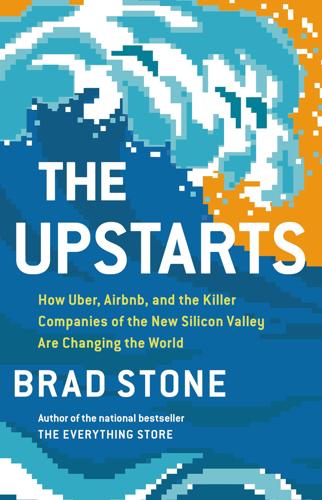
The Upstarts: How Uber, Airbnb, and the Killer Companies of the New Silicon Valley Are Changing the World
by Brad Stone · 30 Jan 2017 · 373pp · 112,822 words
-20161221-JV-PC Contents Cover Title Page Copyright Dedication Upstart Introduction PART I: SIDE PROJECTS CHAPTER 1: THE TROUGH OF SORROW The Early Years of Airbnb CHAPTER 2: JAM SESSIONS The Early Years of Uber CHAPTER 3: THE NONSTARTERS SeamlessWeb, Taxi Magic, Cabulous, Couchsurfing, Zimride CHAPTER 4: THE GROWTH HACKER
…
City PART III: THE TRIAL OF THE UPSTARTS CHAPTER 10: GOD VIEW Uber’s Rough Ride CHAPTER 11: ESCAPE VELOCITY Fights and Fables with Airbnb CHAPTER 12: GLOBAL MEGA-UNICORN DEATH MATCH! Uber versus the World Epilogue Photos Acknowledgments About the Author Also by Brad Stone Notes Newsletters For Tiffany
…
have criticized the company for worsening the housing shortage in desirable urban areas, driving up housing costs, and skirting hotel taxes. In late 2016, Airbnb actually sued New York City and its hometown, San Francisco, over legislation that threatened the company and its hosts with thousand-dollar fines every time
…
. Zoning laws and hotel and guesthouse ordinances kept commercial activity out of residential neighborhoods and ensured that hotel rooms were up to safety code. Airbnb and Uber substituted the self-policing tools pioneered by internet marketplaces like eBay—riders graded their drivers and guests evaluated their hosts, and vice versa
…
. Uber and Airbnb have also come to represent, at least to some, the overweening hubris of the techno-elite. Critics blame them for everything from destroying the
…
peaceful neighborhoods to bringing unrestrained capitalism into liberal cities. Some of that is overheated, but there were consequences to their approaches that even Uber and Airbnb did not anticipate. At the center of this maelstrom are the young, wealthy, charismatic chief executives: Travis Kalanick and Brian Chesky. They represent a
…
become regulators and housing activists. Some of them are looking to score political points by vilifying a high-profile target; others are legitimately worried about Airbnb’s impact on housing affordability. Unlike his friend Travis Kalanick, Chesky presents himself as a sympathetic ally of those in the latter category. “We
…
started the company.” As for the book project, he was game. Over the ensuing year, I spoke to Chesky, his co-founders, and top Airbnb executives. The company’s PR representatives were helpful though understandably nervous about the outcome, soliciting questions for interviews ahead of time, sitting in on conversations
…
starting,” he said. “Uber was my idea; that was his idea.” McCloskey remembers that Kalanick had reached the same conclusions as the founders of Airbnb. The internet could allow travelers to find luxurious yet cheap accommodations while also offering a far more interesting traveling experience. “He was frustrated by VRBO
…
of the car-service startups that preceded Uber. An online home-sharing service called Couchsurfing won devotees and attention five years before the rise of Airbnb. It wasn’t bad timing, stubbornness, or chronic niceness that doomed it, but something just as deadly in the cutthroat world of business: idealism
…
Brian Chesky and Joe Gebbia, right down to Couchsurfing’s weighty mission statement (“to connect people and facilitate inspiring experiences”). Even the brand names Airbnb and Couchsurfing were similar, each implying an uncomfortable night’s sleep that could leave one sore in the morning. Unlike Chesky, Fenton grew up
…
blistering controversy. Such opportunists would flock to the site anyway, and cities were forced to consider how to deal with them and whether to regulate Airbnb like conventional hotels. The founders seemed to move slowly on everything. McAdoo remembers them as being a little too “wonderfully frugal,” reluctant to spend
…
to improve the popularity of their products and services. Blecharczyk, it turned out, was an exceedingly good one. That makes the mysterious rise of Airbnb in the year after its graduation from Y Combinator easier to understand. Two other apartment-listing services were far larger: Couchsurfing, which was still laboring
…
far more provocative and cocksure Kalanick showed up for their joint interview wearing pink socks. Moderator Erick Schonfeld from TechCrunch asked Chesky about reports that Airbnb was raising a massive round of funding that could value it at a billion dollars—unicorn territory. “Can’t comment on that, unfortunately,” Chesky
…
a sister site called Airizu for the Chinese market, and an aggressive plan to hire four hundred employees and managers in countries around the world. Airbnb, whose founders still interviewed and discussed each potential employee to painstakingly measure for “culture fit,” had only some twenty workers in San Francisco and
…
with current and former employees from the time, the payment was either never authorized or never sent.) The primary person she had talked to from Airbnb was the brainy Blecharczyk, who was filling in for a recently departed head of customer service while Chesky interviewed numerous potential replacements. Blecharczyk, EJ
…
managers modeled themselves after Chesky. In Moscow, Jung hired Eugen Miropolski, a former Groupon exec, who promptly rented out his home and started living in Airbnbs around town, just as Chesky had done in San Francisco. In Paris, Olivier Grémillon, a former McKinsey and Company consultant, planned community meet-ups
…
increasingly beleaguered web portal, and by 2011, wanted to believe in another corporate cause. That’s when she started reading in the tech press about Airbnb. Impressed by the startup’s gathering momentum, Johnson stealthily orchestrated her own hiring. Instead of sending an unsolicited e-mail to Brian Chesky, she
…
procedures, mishandled cross-examinations of witnesses (including the building inspector who had confronted the Russian guest), and was constantly asked to rephrase questions—all while Airbnb’s high-priced attorneys sat quietly in the audience. “I was in so far over my head, it was just ridiculous,” Warren says. Five
…
Schneiderman, the top law enforcement officer in the state, were inclined to agree. They felt that despite its proclaimed intentions to aid the city, Airbnb was actually resisting requests to combat illegal hoteliers and hadn’t earnestly pursued efforts to collect the required 14.75 percent hospitality taxes.17 Though
…
Observing closely now were lawmakers from cities around the world, including Los Angeles, San Francisco, Barcelona, Amsterdam, Berlin, Paris, and countless others, who were watching Airbnb spread in their cities too. They all had the same worries about home-sharing websites and technologies that appeared to radically disrupt their local economies
…
, with undetermined consequences. The subpoena and accompanying blizzard of media coverage sent shudders through the ranks of Airbnb users in New York City. Journalist Seth Porges had been renting out a spare bedroom in his two-story duplex in Williamsburg, Brooklyn, since
…
and many other cities had to make, the choice between guaranteeing affordable housing for residents and offering new hotel rooms for out-of-town guests. Airbnb, its critics believed, was removing residential properties from the market as well as deliberately blurring the lines between shared rooms and absentee hosts. Schneiderman
…
company was the more ethical operator. Uber started rampaging over local transportation laws when it appeared competitors might capture strategic ground. Chesky knew that Airbnb violated the strict housing regulations of New York City and elsewhere but pushed ahead anyway, and the site neglected to stop its own users from
…
share of stock to the public. As the companies swelled in size, value, and ambition, the world grew increasingly concerned about their impact. For Airbnb, the company’s influence on housing prices, its effect on residential neighborhoods, and its occasionally awkward attempts at compromise with major cities drew new protests
…
and other ridesharing services, led the anti-Uber crusade with angry, sometimes violent protests in countless cities around the world. The upstarts Uber and Airbnb, frequently named in tandem by sharing-economy proponents and critics, were the defendants in a global trial during this time of uninhibited growth. The
…
twelve-hundred-square-foot vertical “green wall,” made up of hundreds of plants spanning three floors, and outfitted a dozen conference rooms to look like Airbnb listings in Milan, Paris, Denmark, and elsewhere. Another conference room was modeled after the founder’s original apartment on Rausch Street, while a larger
…
in their homes, though there was no way to determine whether the hosts had actually installed them. The Yuh tragedy epitomized the dueling realities facing Airbnb at the start of 2014. It wanted to be seen as an innovative hospitality brand bringing strangers together and providing authentic, intimate travel experiences.
…
on where their sympathies lay. Regulators, left-wing politicians, hotel CEOs, union leaders, affordable housing advocates, and angry neighbors tired of carousing guests saw Airbnb as nothing but a rule breaker from the far-away land of arrogant, entitled billionaires. Investors, hosts, property owners struggling to make their monthly mortgage
…
had been put into place to protect residential neighborhoods from too much commercial activity. So Unger was among those inclined to look askance when unlicensed Airbnbs started popping up across Portland, particularly since his business remained curiously slow even after the city emerged from the recession in 2012. By the
…
hotels and their powerful employee unions. Both were well organized and deep pocketed, and both had strong relationships with local governments. A lawyer working for Airbnb on the attempted settlement in New York City said that within twenty-four hours, the hotel unions and their representatives scuttled any prospective deal, insisting
…
feared. They required hosts to register with their cities, but, despite the fanfare that accompanied the deals, few did. In the face of this, Airbnb refused to put in place restrictions to force compliance—for example, requiring hosts enter valid registration numbers or preventing a host from listing multiple properties
…
and keep his house—the spare room was great to have available for visits by his sister and nephew. So he decided to give Airbnb a try. Airbnb exceeded Kwan’s expectations on all counts. Over the years he met travelers from dozens of states and countries and stayed in contact
…
selling their homes to permanent residents. The issues facing San Francisco pitted new residents against old, techies against nontechies, and centrist Democrats against progressives. Airbnb was a tempting wedge issue in this fight, a way to muster opposition to the tide of gentrification under the banner of a universally appealing
…
A few days before the vote, seventy-five protesters banging drums, blaring horns, and chanting “No more displacement in this city!” occupied the atrium in Airbnb’s swank headquarters. They spent ninety minutes there, delivering angry speeches and releasing clusters of black helium balloons that carried posters with words like evictions
…
walking around the Grande Halle and attending speeches and seminars with whimsical names like “Hospitality Moments of Truth,” were disarming and inspiring. They were Airbnb’s most persuasive evangelists. Here was a group that loved the company and what it stood for, demonstrating a kind of loyalty and passion that
…
their guests’ profiles and post photos and facts about their home so that visitors weren’t surprised when they arrived. Since they started listing on Airbnb, the couple had hosted several dozen groups of Americans, including some university students and their professor. The biggest challenge, they found, was that American
…
asked citizens to anonymously report violators. Offenses were punishable by fines of up to one hundred thousand euros.36 That same year, Tokyo battled over Airbnb and considered draconian restrictions for the new phenomenon of house rentals, called minpaku in Japanese. In a moment of surprising candor, one lawmaker revealed
…
seen them demonstrate anything other than trying to maximize their revenue,” said Murray Cox, a “data activist” and creator of the website Inside Airbnb, which scraped the Airbnb website to collect independent data on hosts. In May 2016, Gregory Slenden, an African American from Richmond, Virginia, filed a civil rights lawsuit
…
.39 There was academic backing for his claims; Ben Edelman, an associate professor at the Harvard Business School, had published two studies showing that Airbnb users were statistically less likely to host or stay with minorities.40 Slenden’s charges sparked an uproar. Using the hash tag #Airbnbwhileblack, African
…
lowest since the great recession. Some industry observers blamed the new competition.46 There were new investors, bigger valuations, more employees. By mid-2016, Airbnb had twenty-six hundred workers. More than half had joined in the previous twelve months. Departments doubled or tripled in size, disrupting any hope employees
…
the world’s richest, most valuable, most scrutinized upstart freed himself and his colleagues to finally confront the future. Epilogue By the end of 2016, Airbnb and Uber no longer resembled gangly, adolescent startups. They had thousands of employees, offices around the world, and ranks of experienced executives. In many
…
.sfgate.com/business/article/DeSoto-S-F-s-oldest-taxi-firm-rebrands-6087480.php. 3. “Why Couchsurfing Founder Casey Fenton Is Unfazed by Competitors like Airbnb,” Mixergy, March 30, 2015, https://mixergy.com/interviews/casey-fenton-couchsurfing/. 4. Ryan Lawler, “Lyft-Off: Zimride’s Long Road to Overnight Success,” TechCrunch,
…
10. Andrew Chen, “Growth Hacker Is the New VP Marketing,” http://andrewchen.co/how-to-be-a-growth-hacker-an-airbnbcraigslist-case-study/. 11. “Airbnb Announces New Product Advancements and $7.2M in Series A Funding to Accelerate Global Growth,” Marketwired, November 11, 2010, http://www.marketwired.com/press-release
…
,” Billboard, June 17, 2011, http://www.billboard.com/biz/articles/news/1177428/spotify-raises-100-million-but-remains-stuck-at-1-billion-valuation; Geoffrey Fowler, “Airbnb Is Latest Start-Up to Secure $1 Billion Valuation,” Wall Street Journal, July 26, 2011, http://www.wsj.com/articles/SB10001424053111904772304576468183971793712. 4. Eric Mack,
…
to Become First Sharing Economy Billionaires As Company Nears $10 Billion Valuation,” Forbes, March 20, 2014, http://www.forbes.com/sites/alexkonrad/2014/03/20/airbnb-cofounders-are-billionaires/#2a6b41b641ab. 5. James Lo Chi-hao, “Backpacker Dies from Carbon Monoxide Poisoning,” China Post, December 31, 2013, http://www.chinapost.com
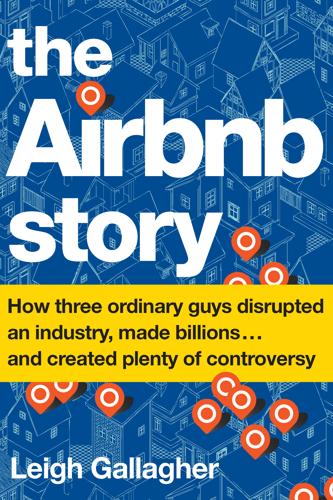
The Airbnb Story: How Three Ordinary Guys Disrupted an Industry, Made Billions...and Created Plenty of Controversy
by Leigh Gallagher · 14 Feb 2017 · 290pp · 87,549 words
also opened up access to different kinds of neighborhoods than traditional tourist zones, so you could have an experience that felt more local, an advantage Airbnb heavily pushes. These elements were particularly powerful for millennials, who have exhibited a growing dissatisfaction with big brands and a greater sense of adventure, and
…
The easiest is those 140 million “guest arrivals” since its inception. Its 3 million active listings—80 percent of which are outside North America—makes Airbnb the largest provider of accommodations in the world, bigger than any hotel chain. (With its acquisition of Starwood, Marriott International has the largest inventory of
…
and industrialization came along, that personal feeling was replaced by “mass-produced and impersonal travel experiences,” and along the way, “people stopped trusting each other.” Airbnb, he wrote, would stand for something much bigger than travel; it would stand for community and relationships and using technology for the purpose of bringing
…
company invited people to draw their own versions of the logo—which, it was announced, would stand for four things: people, places, love, and Airbnb. To say Airbnb can be idealistic at times is an understatement, and while its customers seemed to embrace the concept, the media were more skeptical. TechCrunch called
…
University School of Hotel Administration, that he started thinking more seriously about the actual experience the company was offering. He decided they needed to transform Airbnb more deeply from a tech company into a hospitality company. Shortly after that, Chesky read the book Peak: How Great Companies Get Their Mojo from
…
venture funding. Guesty, a professional management service for hosts, started by Israeli twin brothers, is one of the largest: hosts give Guesty access to their Airbnb accounts, and it handles booking management, all guest communication, calendar updating, and scheduling and coordinating with cleaners and other local service providers, for a fee
…
always good. 4 The Bad and the Ugly * * * * * * Our product is real life. —BRIAN CHESKY OF COURSE, HUMANITY IS NOT always well behaved, and despite Airbnb’s idealism-filled promise, there is an obvious question here: How can you smush all these strangers together and not have things go wrong? After
…
privacy policy prohibited the disclosure of any information regarding Plush’s account, but if Loughlin’s local law enforcement wanted to investigate, they could contact Airbnb’s law-enforcement liaison, who would cooperate with any investigation. She added that she was committed to doing everything she could to advocate for Loughlin
…
the admirable goals of trust building and accountability, he suspected they may have an unintended consequence as well: facilitating discrimination. Conducting a field experiment of Airbnb—because it was the largest such platform and because it required users to post large photos—Luca and his team found that nonblack hosts were
…
a full home, were held constant. “Overall, we find widespread discrimination against guests with distinctively African-American names,” the researchers wrote. The researchers focused on Airbnb because it was the “canonical” example of the sharing economy, but they cited previous research that found similar issues on other online lending sites, such
…
members’ online photos and profiles. As the Harvard researchers pointed out, “While the photos are precisely what help create a feeling of humanity on the Airbnb platform, they can just as easily bring out the worst of humanity.” Discrimination, the researchers wrote, suggested “an important unintended consequence of a seemingly-routine
…
in particular—New York City, San Francisco, Berlin, and Barcelona, among others—regulators and lawmakers have dug in their heels with particular tenaciousness. And as Airbnb has grown bigger over the years, the intensity of the opposition has escalated. (Those same laws govern HomeAway, VRBO, and other short-term-rental platforms
…
as smooth as the ascending line on these companies’ unfettered growth charts. It highlights how deeply emotional issues around housing can get. The struggle over Airbnb in New York and elsewhere has also pitted Democrat against Democrat, has brought together strange bedfellows, and has made it hard sometimes to discern just
…
and by failing to comply with traditional hotel-safety regulations. Perhaps most critically, they said the proliferation of units dedicated solely to renting out on Airbnb—so-called illegal hotels—removes housing from a market that is already in a serious affordable-housing crisis, driving prices up further for everyone. A
…
campaign manager behind Bill de Blasio’s mayoral victory, who conceived and ran a multimillion-dollar grassroots campaign laser-focused on a single message: that Airbnb helped middle-class New Yorkers. The hallmark of the campaign was a television ad called “Meet Carol,” which featured an African American widowed mother who
…
against multiple listings. In some places—he uses Lake Tahoe as an example—a municipality may actually want property-management companies to manage listings on Airbnb (and in 2015 the company piloted property-manager partnerships in some vacation-rental markets). It’s another way to reach potential vacationers and bring them
…
and should take thousands of apartments off the market,” says Murray Cox, an affordable-housing activist and founder of data provider Inside Airbnb, another outside provider of Airbnb data. The bigger Airbnb got, the more the conflict in New York escalated. Aside from the law, short-term rentals are forbidden by most landlords
…
, and some began adding riders in their leases prohibiting tenants from using Airbnb, implementing stricter protocols for having guests, and adding cameras and hiring private investigators to catch tenants in the act. Related Companies, the largest owner of
…
head of the powerful Service Employees International Union. It spent more on advertising. It sponsored marathons. (Perhaps predictably, on the eve of the newly named Airbnb Brooklyn Half Marathon, protesters showed up wearing T-shirts that said “#RunFromAirbnb.”) But it had powerful, well-funded forces lining up against it (REBNY, the
…
of this ignorant bill!” the actor tweeted), the bill passed on the last day of the legislative session, dealing a sudden and unexpected blow to Airbnb. Airbnb maintained that the bill was introduced unfairly, the result of what it said was an eleventh-hour backroom deal brokered by special interests that ignored
…
granny flat or an in-law unit. Such units lend themselves particularly well to home sharing (and they are fittingly, somewhat thorny to regulate). At Airbnb, the ADU houses the entire mobilization team, policy communications and operations, and other departments, including social impact and strategic research—some two hundred staffers all
…
an opportunity the rest of us missed.”) It all makes for a fascinatingly dynamic situation in which hotel companies are simultaneously funding the fight against Airbnb, cautiously engaging with it, and experimenting how to tap into the short-term-rental trend themselves, whether through trying out their own concepts, buying
…
midsize businesses whose employees travel infrequently, but the company had also signed a few heavy hitters, like Morgan Stanley and Google. A few months later, Airbnb announced partnerships with American Express Global Business Travel, BCD Travel, and Carlson Wagonlit Travel—the heavyweights of the corporate-travel business, who handle the back
…
perhaps most significantly, instead of focusing on vacation destinations in resort areas, it focused on cities. Despite the attention paid to the treehouses and tepees, Airbnb’s actual invention was that it was an almost entirely urban phenomenon from the very beginning, taking root with millennial travelers who were city-focused
…
site who switched; they were an entirely different kind of customer. After dismissing it for so long, the hotel industry slowly started to confront its Airbnb Problem. Executives started talking openly about it at industry events. At the 2016 NYU International Hospitality Industry Investment Conference, a series of CEOs took the
…
needed to double down on its strengths. (Skift described the CEOs’ reactions as “surprisingly tepid and generic, especially compared to the rabid consumer excitement surrounding Airbnb.”) Some, though, said the industry needed to take note. Javier Rosenberg, COO and EVP of Carlson Rezidor Hotel Group, the parent of Radisson Hotels in
…
a smile, really takes care of you for five, six, seven days—how do we, from a leadership perspective, how do we bottle that?” Airbnb or no Airbnb, the hotel companies were already well under way in reshaping their businesses to win over millennials, their new massive customer base whose habits and
…
a legitimate model for more widespread adoption going forward. One area in which lodging-industry analysts are already pushing hotels to get closer with Airbnb is distribution. Airbnb has become a robust marketing platform that reaches millions of eyeballs; some hotels already see it as a way to attract guests. Globally, there
…
Mad Men days, a Halloween-costume contest, or an annual Oktoberfest party where Blecharczyk traditionally shows up in lederhosen. Much of this is replicated at Airbnb offices around the globe. And there’s that idealism again. Employees across disciplines, from financial planning to project management, bring up the company’s “belonging
…
” mission unprompted. Recently, community chief Douglas Atkin has been developing a version of the “belong anywhere transformation journey,” the metamorphosis Airbnb intends for its guests to experience, that applies to its internal culture, calling it the “belong here transformation journey.” The goal is the same: you
…
variety of existing players across the spectrum: traditional tour operators, Yelp, Foursquare, TripAdvisor, and even Lonely Planet and Condé Nast Traveler all at once. When Airbnb blazed its disruptive trail in shared accommodations, it did so by accident, tapping into something unexpectedly wondrous and huge and viral. With this launch, it
…
top legal and policy minds, he designed against possible backlash. “Social-good” experiences, conceived in concert with local nonprofits, represent 10 percent of the experiences Airbnb will offer. The company has an ambitious partnership with the Make-A-Wish Foundation to host “wish trips” and help build experiences. And Chesky and
…
opportunities and consequences. And for that reason, as colorful and complex and successful and fraught as this company’s history has been so far, the Airbnb story is likely still just beginning. Acknowledgments * * * * * * This book came together quickly and with a village of help, but there are two people without whom
…
Estate,” Urban Land Institute Fall Meeting, October 6, 2015, https://www.youtube.com/watch?v=03kSzmJr5c0. 20 losing their patient: Brian Chesky, “1000 days of AirBnB,” Startup School 2010, YouTube, uploaded February 12, 2013, https://www.youtube.com/watch?v=L03vBkOKTrc. 21 “have some please?”: “Obama O’s,” YouTube, uploaded
…
in Hotels and Motels,” National Fire Protection Association, September 2015. 100 relative to nonblack hosts: Benjamin Edelman and Michael Luca, “Digital Discrimination: The Case of Airbnb.com,” Harvard Business School Working Paper, no. 14-054, January 2014. 100 compared with white guests: Benjamin Edelman, Michael Luca, and Dan Svirsky, “Racial Discrimination
…
, https://www.airbnbaction.com/compactdetaileden/. 114 forty-one per year:Growing the Economy, Helping Families Pay the Bills: Analysis of Economic Impacts, 2014, findings report, Airbnb, May 2015, https://1zxiw0vqx0oryvpz3ikczauf-wpengine.netdna-ssl.com/wp-content/uploads/2016/02/New-York-City_Impact-Report_2015.pdf. 114 rental housing by 10
…
Institute Fall Meeting, October 6, 2015, https://www.youtube.com/watch?v=03kSzmJr5c0. 140 told the Globe and Mail: Shane Dingman, “A Billionaire on Paper, Airbnb Co-founder Feels ‘Great Responsibility’ to Do Good,” Globe and Mail, December 17, 2015, http://www.theglobeandmail.com/report-on-business/careers/careers-leadership/a
…
Sorenson,” Surface, August 5, 2016, http://www.surfacemag.com/articles/power-100-hospitality-arne-sorenson. 159 “a city could do”: Sarah Lacy, “Fireside Chat with Airbnb CEO Brian Chesky,” PandoDaily, YouTube video, posted January 14, 2013, https://www.youtube.com/watch?v=6yPfxcqEXhE. 160 got some attention: Sam Biddle, “Love Note
…
investors, 17–18 lite version, 12–14 media and press coverage, 19–20 original idea, 8–9 redefining of, 28 Y Combinator and, 23–29 Airbnb advantages, xiii company building, 35–38 competition (see competitors) consumer support for, 133–37, 146–47 contact phone number, 95–96 core values, 36,
…
–55 scale of, 126–27 super-users, 67–69 user experience, 41–47 valuation of, xii, 31, 47, 161 workspace, 183–84 Airbnb Friendly Building Program, 130 “Airbnb law,” 128 Airbnb Open, x–xi, 69, 74, 76–78, 133, 190–91 Airdna, 111, 116, 126, 131, 151 Airizu, 49–50 AllThingsD (website), 47
…
, xi, xvii, 41, 87, 106, 149–50 Wimdu (Samwer brothers), 48–50 See also hotels compression pricing, 144 Conair internship, 1–3 Concur, 145 conferences Airbnb and corporate travel, 145–46 Berkshire Hathaway Annual Meeting, 166–67 Fortune’s Brainstorm Tech, 103, 131, 187 International Council of Societies of Industrial Design
…
Greg, 30–31, 35–36, 164 McCann, Pol, 74, 116, 117 McChrystal, Stanley, 173, 186 McGovern, George, xvi, 167 McNamara, Robert, 166 media and press Airbnb in pop culture, xv–xvi, 60–61 at conventions (2009), 38 Democratic National Convention coverage, 19–20 “Meet Carol” television ad, 112 negative exposure, 50
…
80–82, 86, 91 presidential inauguration, 28 “Meet Carol” television ad, 112 Meyer, Danny, 191 Michael (original guest), 8, 10 Mildenhall, Jonathan, 64 millennials as Airbnb early adopters, xii, xiii, 59, 66, 150–51, 157–58 apartments and, 129–30 hotel industry and, 141, 152 as mobilizing force, 134 New York
…
Priceline, 148, 154, 198 pricing, as issue, 27, 99–100 privacy policy, 87, 115 product evolution, 59–60 product/market fit, 34–37 professional operators, Airbnb, 111 profit and earnings, 73, 110, 112–13, 127 property management, 129 Proposition F, 128–29 prototype operations, 177–78 R Rabois, Keith, 31 racial
…
150 Shatford, Scott, 116, 131 Shaw, George Bernard, 135, 136, 159 Shepherd, Carl, 133, 150 Short, Rochelle, 202 short-term rentals advertising ban on, 121 Airbnb listings, 150–51 Berlin, 126 fines and violations, 129 history of, xvii, 149 hotels and, 141, 153–54 intimacy of, 79 legality of, 106, 125
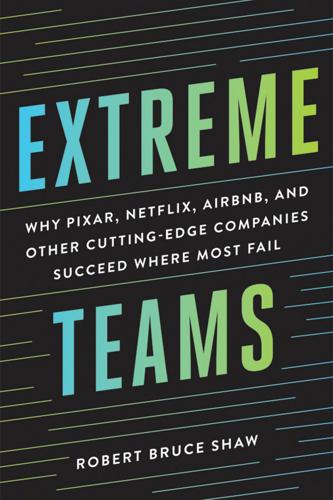
Extreme Teams: Why Pixar, Netflix, AirBnB, and Other Cutting-Edge Companies Succeed Where Most Fail
by Robert Bruce Shaw, James Foster and Brilliance Audio · 14 Oct 2017 · 280pp · 82,355 words
, the book publishing division of American Management Association. To sign up, visit our website: www.amacombooks.org EXTREME TEAMS EXTREME TEAMS WHY PIXAR, NETFLIX, AIRBNB, AND OTHER CUTTING-EDGE COMPANIES SUCCEED WHERE MOST FAIL ROBERT BRUCE SHAW To J. Richard Hackman and his passionate quest to build better teams CONTENTS
…
embrace bold new approaches that go beyond what is found in conventional firms. The seven companies profiled in this book are Whole Foods, Pixar, Zappos, Airbnb, Patagonia, Netflix, and Alibaba. I selected these firms based on several criteria. I sought firms with a track record of significant growth and financial
…
what people thought was impossible by selling shoes on the Internet and, in the process, fighting off larger and more well-funded competitors.29 Airbnb created a whole new category of hospitality and now offers more rooms each night than any of America’s largest hotel chains. Netflix drove Blockbuster
…
“Make people happy,” “Win more of our members ‘moments of truth.’”33 • Year founded: 1997 • Revenue: $6.77 billion (2015) • Number of employees: 2,450 Airbnb: Online peer-to-peer marketplace for people to rent rooms, apartments and homes around the world. Founded by Brian Chesky, Joe Gebbia and Nathan Blecharczyk
…
made significant mistakes over time. Alibaba failed to act as quickly as needed to deal with counterfeiters using its sites to sell their goods. Airbnb failed to respond effectively to safety issues when they arose in the early years of the company. Netflix failed to meet its customer expectations when
…
to touch people through its movies. Zappos sees its highest calling as creating happiness, not only for customers but for the world at large. Airbnb wants to create a sense of belonging and community, providing lodging where people feel at home wherever they travel. Those with a cynical bent view
…
not only their members but the world at large—unlike cults, often secretive, which ultimately take advantage of their members and are destructive to society. Airbnb, for example, is described by some as a cult-like company. Its founders shared an unwavering conviction that they could change the way people
…
tested and refined, now produces millions of annual guest rentals in 91 countries.19 It provides a benefit valued by millions of people. If Airbnb was a cult in the beginning, it evolved into something else—perhaps a contradiction of sorts in being a secular religion. The challenge for cutting
…
now has over 600 people) and offering what eventually became a $1 million host guarantee program (which pays for damage resulting from a rental). Airbnb also developed, over several years, practices to give both its hosts and guests more background information about each other, in order to increase the level
…
firm’s safety processes continue to evolve and now include verifying the identification of those renting rooms and user ratings of both hosts and guests. Airbnb, demonstrating its grittiness, used the initial crisis it faced to improve how it minimizes risk of future adverse events and, in so doing, increased
…
in the development of products for the firm’s individual users due to the limits of the engineering resources within the company. Recognizing its mistake, Airbnb clarified the priorities and redeployed its resources. The lesson learned, however, was that more is not better when it comes to priorities. The following
…
priorities. Focus also requires that those selected priorities be executed at a high level. Otherwise, failure to do so will be evident to all. Airbnb, for instance, has recently focused on developing its mobile toolkit—viewing it as essential to drive its growth and meet its customers’ needs. Success
…
7 It believes the people want an experience of community and connection, in contrast to staying in a more impersonal hotel. Toward this end, Airbnb broke down the experience of travelers into 15 discrete steps, starting with a guest finding a room on its website, followed by successive steps in
…
success. The company then goes one step further—it gives its people the freedom to select which projects they want to work on.9 Airbnb engineers are encouraged to change teams if there is another project within the company that better matches their interests or skills.10 This practice is
…
have the greatest impact when they are involved in projects that are of personal interest to them. This approach makes sense when one realizes that Airbnb values, above all, experience—and, more specifically, enriching the experience of its customers as well as employees.11 Top-down control, from this viewpoint,
…
but it does clarify who is the go-to person or subgroup in moving a particular priority forward. Many leaders, as is the case in Airbnb, feel that having a single point of accountability results in greater progress (versus everybody owning everything). Netflix calls these individuals decision owners. The other
…
apartment. She said that it would be magical. The next morning, one of the founders came back with his camera and took the photos. Airbnb slowly expanded this option for hosts and now has thousands of freelance photographers around the world taking professional-quality shots of their hosts’ rental units
…
They can then suggest titles that fit each customer’s personal preferences and viewing habits. These successes, however, hide the fact that most experiments fail. Airbnb’s first three website launches failed to attract customers, and it was only the fourth launch that proved successful. But cutting-edge firms keep pushing
…
culture—notably, the value of playing with new ideas that will generate new business opportunities.35 Another approach to fostering productive defocusing is found at Airbnb. Each week, the firm has what it calls “demo days.” People in the company demonstrate for others, usually those from other teams, what they
…
employee experience (who assumes the responsibilities of a traditional human resources leader and more) leads a team that is dedicated to creating memorable experiences for Airbnb employees. Every point of connection that an employee has with the company is examined and improved with this goal in mind (including functions such
…
’s emphasis on enhancing experience is how it manages its hiring process. The team responsible for this process delineated each “touch point” in the Airbnb interactions with potential hires and sought to make them as positive as possible. This included a personal acknowledgement of each application, regular updates on the
…
in the firm to speak to those who are rejected to provide feedback and encouragement.8 The emphasis on experience also impacts life at the Airbnb headquarters building, where people can work in any location they prefer (for example, the conference room, library, or cafeteria) or work remotely. The
…
design, the company wants its employees to stay connected to its customers, and giving them money to stay in its rentals promotes that goal. Airbnb’s focus on experience recently resulted in it displacing Google as the highest rated “great place to work” on an annual survey conducted by the
…
the startup mentality evident when the firm was founded—with an emphasis on a shared passion for the work and an intense drive to succeed. Airbnb Belonging: Foster a feeling of community and connection among employees. Enhance the experience of those who work in the company. Netflix Freedom and Responsibility:
…
statements of intent, require a high level of commitment and creativity on the part of a firm and, in particular, its leadership. All In Airbnb goes to great lengths to make work meaningful for its employees. First, it is an ideologically driven company with a larger purpose of creating trust
…
their supervisors will initiate changes that ensure the highest level of employee engagement with the work itself. A third element of making work meaningful at Airbnb is the attention paid to the work environment. The company wants people to feel fully supported in their work and connected to their coworkers—
…
of saying this is that people in cutting-edge firms create the conditions that help people be comfortable with the discomfort that comes with conflict. Airbnb provides an example of a company that strives to create a positive work environment but one that values honest dialogue. When an internal survey
…
built on innovative ideas that overturned the existing order of things within their industries. Netflix is disrupting the media industry through its streaming service. Airbnb is disrupting the hospitality industry through its peer-to-peer model. Alibaba is disrupting the way business is done in China through its e-commerce
…
relationships to the breaking point while managing the very real downsides of doing so. For leaders like Reed Hastings of Netflix or Brian Chesky of Airbnb, pushing their organizations to the breaking point, pushing beyond what others believe is possible or even desirable, is not the problem. The risk they
…
The other lesson from extreme teams is that culture is most productively viewed through the lens of what people experience while working in a group. Airbnb, for example, looks at a wide range of factors that influence employee experiences, with a focus on creating a sense of community and belonging.
…
how employees experience the company, such as the design of the corporate office or the ability to work remotely when needed. These factors at Airbnb are managed primarily at a company level, but the concept of focusing on and enhancing member experience holds true for teams as well. Start-
…
‘co-worker’ relationships found at most other companies.” 42Most of these firms also have critics who find fault with their business model or practices. Airbnb, for example, is found wanting by some who believe it operates in a manner that crowds out low-cost housing in urban areas by turning
…
_EN.pdf. 26Graham describes the best founders as being cockroach like—in that they will survive anything, including a nuclear winter, while others perish. See Airbnb, “Conversation with Paul Graham,” YouTube. www.youtube.com/watch?v=nrWavoJsEks. 27“Innovation lessons from Pixar: An interview with Oscar-winning director Brad Bird,”
…
genius.com/Alfred-lin-lecture-10-company-culture-and-building-ateam-part-i-annotated. 15Glassdoor. Posted 7/15/2013. www.glassdoor.com/Reviews/Employee-Review-Airbnb-RVW2979155.htm 16Patty McCord, former human resources head of Netflix, quoted in “The Woman Behind the Netflix Culture Doc,” firstround.com/review/The-woman-behind
…
Market Co-CEO Walter Robb,” Great Place to Work, www.greatplacetowork.com/storage/documents/interviews/gptw-whole_foods_interview.pdf. 23Adam Bryant, “Brian Chesky of Airbnb, on Scratching the Itch to Create,” New York Times, October 11, 2014. 24Adam Byant. “Can You Pass a C.E.O. Test?” New
…
design of the workspace, communication and education efforts, the food in the company cafeteria, and a variety of recognition and reward programs. 12Thomas, “How Airbnb Manages Not to Manage Engineers.” 13These questions are similar to those proposed by Peter Drucker in his famous five questions in The Five Most Important
…
decisions. 26This past year, domestic DVDs accounted for just over 8 percent of the firm’s revenue. 27Greylock Partners, “Blitzscaling 18: Brian Chesky on Launching Airbnb and the Challenges of Scale,” November 30, 2015, www.youtube.com/watch?v=W608u6sBFpo. 28See Scott Berkun, “How Do You Build a Culture of
…
track Chapter 7: Teams at the Extremes 1Alfred North Whitehead wrote, “Without adventure, civilization is in full decay.” 2Ed Catmull at Pixar. Brian Chesky at Airbnb. Yvon Chouinard at Patagonia. Reed Hastings at Netflix. Tony Hsieh at Zappos. Jack Ma at Alibaba. John Mackey at Whole Foods. Note that these
…
are listed below accountability culture of for key priorities Adler, Paul, on common goals Agassi, Andre Aggarwal, Pankaj Ahrendts, Angela, on culture at Apple Airbnb “all in” culture at conflict at culture at experimentation with priorities at hiring at innovation at lack of processes at management at missteps of obsession
…
on obsession on purpose of Pixar on removing personnel on stagnation of business on teams CCMP Capital Chase, Charleen Chen, Julie Chesky, Brian on Airbnb’s missteps on cultural fit on priorities as rated by employees Chouinard, Yvon on childcare centers on conflict on culture as founder of Patagonia on
…
of company culture in hiring process importance of and leadership style risks of focus on at Zappos culture of accountability addressing in failing team at Airbnb of “all in” at Amazon of autonomy in building teams changing your current as characteristic of extreme teams climate vs. cognitive and emotional of
…
vs. hard at Starbucks strong vs. weak themes for of transparency at Whole Foods “culture deck,” of Netflix dailies, at Pixar “demo days,” at Airbnb Disney, Walt Disney Animation creative process in culture change at as failing team distractions, from key priorities double-bind Dropcam Duckworth, Angela, on grit eBay
…
Netflix on priorities on relationships vs. results Heckscher, Charles, on common goals Heilman, Madeline E. Herrin, Jessica, on hiring highly aligned hiring process at Airbnb cultural fit in at Pixar at Zappos holacracy Holbrook, Richard, on conflict House of Cards (television show) Housman, Michael Hsieh, Tony on culture on customer
…
service as founder of Zappos influence of, at Zappos ideas conflict about generation of IDEO incremental innovation ingroups innovation at Airbnb at Google incremental at Netflix at Whole Foods Inside Out (film) internal competition Ives, Jony, on results vs. relationships Jobs, Steve communal culture created
…
process at obsession at performance evaluation at personnel management by teams at work reviewed at playful culture plussing postmortems, at Pixar power issues priorities at Airbnb in building teams as characteristic of extreme teams context setting for development of priorities, (cont.) experimentation with identification of simplifying processes benefits of drawbacks
…
differences on Netflix “culture deck” Scanlon, Dan, on communal culture Schein, Ed, on culture Schultz, Howard, on emotional connection self-awareness The Sheet, at Airbnb social capital social cohesion social loafing social perceptions social skills societal impact (of company) soft culture Sparta Systems Stanton, Andrew director of Finding Nemo on
…
a competent professional person should be sought. LIBRARY OF CONGRESS CATALOGING-IN-PUBLICATION DATA Names: Shaw, Robert Bruce, author. Title: Extreme teams : why Pixar, Netflix, AirBnB, and other cutting-edge companies succeed where most fail / by Robert Bruce Shaw. Description: New York City : American Management Association, [2017] | Includes bibliographical references
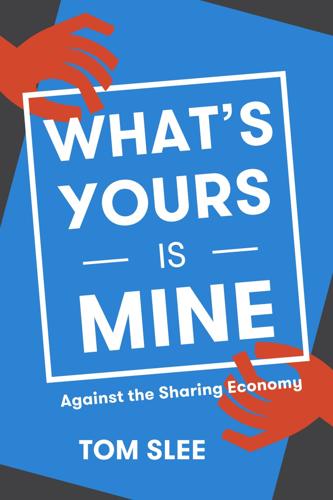
What's Yours Is Mine: Against the Sharing Economy
by Tom Slee · 18 Nov 2015 · 265pp · 69,310 words
. Traditional Yorkshire saying To my mother, Audrey Slee Contents 1 The Sharing Economy 2 The Sharing Economy Landscape 3 A Place to Stay with Airbnb 4 On the Move with Uber 5 Neighbors Helping Neighbors 6 Strangers Trusting Strangers 7 A Short History of Openness 8 Open Wide 9 What
…
efforts of millions of collaborators to make something that is new and global and different, and it inspired the building of web sites such as Airbnb’s. Starting with Napster, file-sharing sites challenged industries that are based on copyright and private ownership, such as music, movie-making, and professional
…
make meaningful connections, connections that are enabling us to rediscover a humanness that we’ve lost somewhere along the way, by engaging in marketplaces like Airbnb, like Kickstarter, like Etsy, that are built on personal relationships versus empty transaction.1 It’s also why stories in the mainstream press tended
…
combines real estate with technology, plays into the “sharing economy” trend that has captivated investors in recent years, thanks to hit companies like Uber and Airbnb. Both companies infused established industries (car services and vacation rentals) with a high tech touch, and as a result, both companies have garnered valuations
…
well as baffling boundaries drawn by participants. TaskRabbit, an “errands” site, is often included, but Mechanical Turk (Amazon’s online labor market) is not. Airbnb is practically synonymous with the sharing economy, but traditional bed and breakfasts are left out. Lyft, a ride service company, claims to be in, but
…
against unfair and unreasonable obstacles.11 But in addition to being Board Chairman at Peers, Douglas Atkin is Global Head of Community and Mobilization at Airbnb. Airbnb is not the only company involved in Peers: much of the organization’s funding came from “mission-aligned independent donors” and foundations, but those
…
independent donors included investors and executives of Sharing Economy startups. Peers leader Natalie Foster traced the idea for the organization back to seed money from Airbnb that started a “conversation among stakeholders” at Purpose, an organization that creates “21st century movements.” 12 Douglas Atkin was also a co-founder of
…
does not own, operate, manage or control accommodations, nor do we verify private contract terms or arbitrate complaints from third parties.” 12 The stories that Airbnb leaves out start to paint a different picture, which exists alongside the stories it promotes: a picture of neighbors, landlords, and tenants left frustrated
…
The people offering a place to stay on HomeAway tend to be professional property managers who look after a number of vacation rental properties. Unlike Airbnb, these sites have existed largely without conflict with regulators for years. Counting the value of these disparate types of accommodation is probably impossible, but
…
it’s clear that the “Airbnb versus Hotels” story is a long way from a true history. The narrative of incumbent corporate hotel megachain versus scrappy young, idealistic startup turns
…
severe than the web site data suggested: the report found that the 6% of hosts with more than two listings made up 36% of Airbnb’s revenue. Airbnb continues to drive its narrative of low-intensity tourism by emphasizing that its listings are scattered around New York’s neighborhoods, claiming that “82
…
neighbors are consistently having new and different people stay in their apartments or houses, it becomes a problem. Scale is central to the conflicts around Airbnb. The company emphasizes its commitment to cities and community, but it doesn’t seem to understand how real communities work, and the balances that
…
with the unregulated apartment down the street that has none of these expenses. Ironically, it is the “human scale” part of the tourism industry that Airbnb is damaging. City governments are concerned about tax revenue, zoning rules, and consumer protection (who pays when things go wrong?). Civic activists are concerned
…
affordable housing. Will it drive up rents? Will popular but affordable neighborhoods get gentrified? The debates are fiercest in tourist destinations, which are Airbnb’s biggest locations, and Airbnb must be seen against the backdrop of a continually and rapidly growing tourist industry. Worldwide, the number of international tourists has doubled in
…
the anti-consumerist talk of the advocates, these scaled-up Sharing Economy companies are just as consumerist as those they have disrupted. LYFT Zipcar and Airbnb are not alone. Lyft is another company that has traded on the goodwill generated by its founding ideals of community and sharing, before the
…
who request disability-accessible vehicles. Uber has opposed this legislation too, saying that it could “place excessive regulatory burdens on private vehicle-for-hire companies.” Airbnb also asserts that requirements for non-discrimination and disabled access do not apply to most properties advertised on its site, and disability advocates have argued
…
that the Airbnb web site fails to help disabled people find appropriate accommodations (there is no way to search for listings that provide disabled access, and few
…
listings say whether they are accessible).66 Airbnb, Uber, and Lyft each take steps to nudge or encourage their service providers to provide disabled access, using language that emphasizes their commitment to
…
have expanded, however, the driver population more closely matches taxi drivers and this opportunity to discriminate has faded. Discriminatory behavior does affect minority hosts on Airbnb. The listings include pictures of hosts and guests, so allowing any discriminatory tendencies among the user base to be expressed. Researchers Benjamin Edelman and Michael
…
to any place of public accommodation.71 Discriminatory tendencies will show themselves if there is the opportunity to do so. The taxi, Uber, and Airbnb systems each let those tendencies express themselves in different ways. A similar effect happens when comparing methods of traffic policing. Individual traffic police officers can
…
happens when competition forces an evolution of business models. TASKRABBIT The first company in the space was TaskRabbit, which started at the same time as Airbnb, Lyft, and others. The listing for TaskRabbit on the business information web site CrunchBase describes the moment when the company founder had her idea:
…
peer, informal, decentralized, and community-driven, and it is those qualities that Sharing Economy advocates claim can be scaled up by using internet reputation systems. Airbnb and BlaBlaCar both describe themselves as “a trusted community marketplace;” Lyft’s one million rides show “the power of community.” Instead of passing on comments
…
; part of the region’s belief in the value of entrepreneurship,11 so now Sharing Economy companies have coined a word for “people as companies.” Airbnb hosts, Lyft drivers, and TaskRabbit errand-runners are “micro-entrepreneurs”: the self as corporation, and one’s reputation as personal brand. If investment in
…
the ratings are at very high values. Rating system designers typically see curves like this as a problem: are there really so many more excellent Airbnb experiences than there are excellent restaurants? Commonly suggested causes are filtering (only customers with a good experience are rating the site), or bias (customers
…
find an extensive collection of generally less-dramatic (and less substantiated) cases at http://www.airbnbhell.com. Uber has had more high-profile scandals than Airbnb, with cases of assault (both driver on passenger and vice versa), threats, hacked user accounts, and accidents. The companies’ responses to these events is
…
on the number of critical reviews that guests provide.24 Other efforts are trying to squeeze more critical information from what is already there. Airbnb is using natural language processing to parse critical comments from review texts.25 Researchers have shown that taking missing reviews into account can give a
…
of exchange that goes beyond straightforward market transactions; it is central both to the broader appeal of the Sharing Economy and to the story that Airbnb tells about itself. Chesky’s words echo those of Mark Zuckerberg, who started a letter to potential Facebook investors this way: “Facebook was not
…
service provider, to build enormous market power over service providers.35 The dispute is often presented as one between scrappy startups and big corporate incumbents (Airbnb versus chain hotels in particular) and yet history suggests that these big players will find a way to coexist. Instead, those who are more
…
addresses of those hosts, making it almost impossible for democratically elected city governments to manage the impact of tourism on some their most valuable neighborhoods. Airbnb also demands homogenization: it operates in 34,000 cities and chafes at the inconsistency of regulations; but each city is different and the inconsistency,
…
a common. The reputation system itself, with all the evaluations and ratings that populate it, becomes a valuable common resource. Individual ratings of hosts on Airbnb contribute to the non-commercial collective tending of trustworthy information about the standards of accommodations. As with any other commons, market driven motivations are anathema
…
regulations that balance the interests of companies and the communities in which they live, or that balance the interests of companies and service providers. Airbnb’s relentless promotion of tourism over every other aspect of a city’s well-being shows that its commitment to cities and to communities stops
…
providing universal access provisions. In Chapter 4 we saw Uber and Lyft claim that access for the disabled is not their problem; suggestions that Airbnb’s platform inadvertently enables the propagation of racial profiling have met with the same response. Successful Sharing Economy companies avoid the expense of wages by
…
, is now falling to one side. Reputation systems are a front for companies being able to “deactivate” users and to impose their own discipline: Airbnb ejects hosts from its platform when it is politically expedient (as recently happened in Los Angeles9), and Uber fires drivers at executives’ whim. The Sharing
…
other marketplace lending companies argued that they do not provide loans, just as Uber does not provide rides, Handy does not provide cleaning services, and Airbnb does not provide accommodation. As a result, their business model fell into a regulatory gap.10 Since then, and particularly since a significant rate
…
, a coalition of tenants’ groups, neighborhood associations, affordable housing advocates, elected officials, and hotel workers who have banded together to challenge the impact of Airbnb on the city, and the issue has reached a high profile within the city council. A similar group, ShareBetter SF, has set up in San
…
://www.ticotimes.net/2015/08/22/uber-says-will-support-drivers-fined-police-costa-rica. Edelman, Benjamin, and Michael Luca. Digital Discrimination: The Case of Airbnb.com, 2014. E.J. Dickson. “Gross, Sexist French Uber Campaign Features ‘Sexy Girl’ Drivers.” The Daily Dot, October 22, 2014. http://www.dailydot.com
…
/the-truth-about-bbb-and-uber-10-facts-you-should-know/. Internet Association. “The Internet Association Files Amicus Brief to Quash the NYAG Subpoena against Airbnb.” Press Release, November 8, 2013. http://internetassociation.org/11082013airbnbamicusbrief/. Isaac, Mike, and Natasha Singer. “California Says Uber Driver Is Employee, Not a Contractor.” The
…
, 2013. http://www.bloomberg.com/news/articles/2013-08-27/ebay-style-loans-lure-summers-to-mack-in-wall-street-asset-craze. LeWeb. Douglas Atkin—Airbnb—LeWeb London 2013. Accessed August 28, 2015. https://www.youtube.com/watch?v=cp2Hlp2TP-M. Lewis, Peter. “Couchsurfing: The Meltdown Continues.” Our Mechanical Brain,
…
Quality, 211–19. CRC Press, 2009. http://www.crcnetbase.com/doi/abs/10.1201/b10305-24. Schofield, Hugh. “Short-Let Apartments Spark Paris Row as Airbnb Thrives.” BBC News, December 26, 2014. http://www.bbc.com/news/world-europe-30580295. Schor, Juliet. “Debating the Sharing Economy,” October2014. http://www .greattransition
…
December 52013. http://www.wired.com/2013/12/google-homejoy-funding/. Zervas, Georgios, Davide Proserpio, and John Byers. “A First Look at Online Reputation on Airbnb, Where Every Stay Is Above Average.” SSRN Scholarly Paper. Rochester, NY: Social Science Research Network, January 28, 2015. http://papers.ssrn.com/abstract=2554500. Zipcar
…
. “Green Benefits,” n.d. http://www.zipcar.com/universities/how/greenbenefits. Endnotes Chapter 1 1 Tanz, “How Airbnb and Lyft Finally Got Americans to Trust Each Other.” 2 In a completely different context, I am following the example of MacQueen, The 2001 Anthrax
…
.” 63 Wieczner, “Why the Disabled Are Suing Uber and Lyft.” 64 Trautman, “Will Uber Serve Customers With Disabilities?” 65 Strochlic, “Uber.” 66 Redmond, “Does Airbnb Have an ADA Problem?” 67 Peterson, “Uber Does Not Care about Racism, It Cares about Money.” 68 Wilonsky, “On the Same Day Dallas Task Force
…
Krueger, “An Analysis of the Labor Market for Uber’s Driver-Partners in the United States.” 70 Edelman and Luca, Digital Discrimination: The Case of Airbnb.com. 71 Todisco, “Share and Share Alike?” 72 Norris et al., “Black and Blue.” 73 Norris, “The Sociological Implications of Smart Surveillance Systems.” 74
…
Naughton, “Meet Tech’s New Concierge Economy, Where Serfs Deliver Stuff to Rich Folk.” 29 Haque, “The Servitude Bubble—Bad Words.” Chapter 6 1 Clampet, “Airbnb CEO Responds to Illegal Rentals Story.” 2 Friedman, “And Now for a Bit of Good News . . .” 3 Brooks, “The Evolution of Trust.” 4 Strahilevitz,
…
and Watts, “Experimental Study of Inequality and Unpredictability in an Artificial Cultural Market.” 14 Zervas, Proserpio, and Byers, “A First Look at Online Reputation on Airbnb, Where Every Stay Is Above Average.” 15 Kane, “The Big Hidden Problem With Uber?” 16 Bercovici, “Uber’s Ratings Terrorize Drivers And Trick Riders. Why
…
23 Chesters and Smith, “The Neglected Art of Hitch-Hiking: Risk, Trust and Sustainability.” 24 Fradkin, “Search Frictions and the Design of Online Marketplaces.” 25 Airbnb, “Building Trust with a New Review System.” 26 Nosko and Tadelis, “The Limits of Reputation in Platform Markets: An Empirical Analysis and Field Experiment.” Chapter
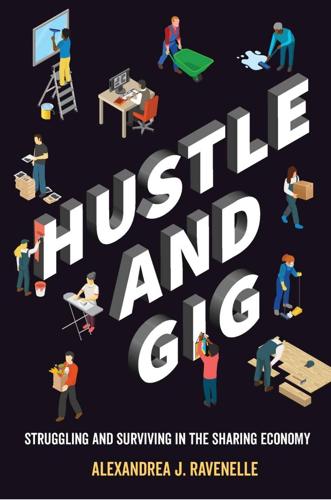
Hustle and Gig: Struggling and Surviving in the Sharing Economy
by Alexandrea J. Ravenelle · 12 Mar 2019 · 349pp · 98,309 words
of herself as an entrepreneur, but TaskRabbit tells her she is, and that the service is “incentivizing” her entrepreneurship through its commission structure. Yet successful Airbnb entrepreneurs (discussed further in chapter 7) are described by the platform as “bad actors” who are using the service to run de facto hotels, instead
…
to low-cost or free products. As the sharing economy grew, free services were replaced with fee-based services. Couchsurfing.com was largely usurped by Airbnb.com; clothing swaps were replaced with Tradesy.com, an online designer-clothing reseller marketplace. Instead of cutting expenses through sharing, the focus moved to growing
…
apartment, and she let her guests know. Unfortunately, the worker was there for several hours and repeatedly needed to be buzzed in, effectively transforming the Airbnb guests into de facto doormen for most of a workday. The guests were understandably frustrated and requested a rent reduction. “We were really nervous. . . . [
…
attention. PLAN FOR THE BOOK In chapter 2, I provide a background on the sharing economy and an overview of the four platforms I studied: Airbnb, Uber, TaskRabbit, and Kitchensurfing. I discuss participant recruitment and worker demographics in more detail and frame my research within the larger literature available to date
…
that connect people for the purposes of distributing, sharing, and reusing goods and services.”1 The concept encompasses everything from multibillion-dollar companies such as Airbnb (room rental) and Uber (on-call taxi service) to free durable-goods-sharing sites such as Neighborgoods. Definitions of the field vary and often
…
loss) and provide reputational information on sellers to reduce the risks of financial transactions with strangers. • Increased utilization of durable assets. These services, such as Airbnb and its earlier, free predecessor, Couchsurfing.com, allow some people to earn additional money to supplement traditional incomes, while providing others with low-cost access
…
videos purchased from different Amazon accounts. Although these are definitely sharing activities—and involve more sharing than is entailed in renting out an apartment on Airbnb—this is simply the technological equivalent of family members accessing the same communal DVD collection or family-room bookcase. If family members’ acts of sharing
…
between host and guest. This avoidance of contact is so prevalent that in an undergraduate observational study I conducted in the East Village, a popular Airbnb neighborhood, I found numerous lockboxes allowing hosts to exchange keys without any human interaction whatsoever. While the sharing economy may market itself as bringing people
…
worker and firm and the resulting workplace risks encountered by sharing economy workers. The majority of sharing economy workers—including Uber/Lyft drivers, TaskRabbit runners, Airbnb hosts, and Handy cleaners—are independent contractors. In recent years, the number of workers classified as independent contractors has grown steadily as employers seek to
…
and my family,” though only 71 percent of respondents agree that working for Uber actually makes them better off financially.46 In New York City, Airbnb launched a public relations campaign “highlighting its positive economic impact on the city’s predominantly-black neighborhoods, from Crown Heights and Bedford-Stuyvesant in Brooklyn
…
Ellis Law, which allows landlords to leave the rental business, is a legally acceptable reason for eviction, these newly vacant apartments are often turned into Airbnb rentals, making thousands of dollars more profit each month.57 A recent Economist report on the digital revolution acknowledged the growing divide between a few
…
why are any of its workers homeless? PARTICIPANT RECRUITMENT AND METHODOLOGY I drew my data from seventy-eight in-depth qualitative interviews with twenty-three Airbnb hosts, twenty-two TaskRabbit workers, nineteen Kitchensurfing chefs, and fourteen Uber drivers/messengers. These four services were chosen because they illustrate the diversity of businesses
…
within the sharing or gig economy: incredibly successful, well-funded companies worth billions (Uber and Airbnb), an established but somewhat struggling start-up (TaskRabbit), and a relatively new upstart (Kitchensurfing).62 In addition, these companies were also chosen for their ability
…
thousands of dollars (high-capital investment).64 However, whereas Uber skills are fairly minimal (being able to pass a driving test and background check), successful Airbnb hosting requires a level of communication with guests; successful hosting also requires creating a listing that will appeal to travelers (high-skill requirement). Table 1
…
s true that hotels, too, experience rowdy guests and destroyed rooms, hotel rooms are known for their neutral and often nondescript decor. By comparison, many Airbnb locations are private homes with numerous unique personal effects. Additionally, the requirement that hotel guests provide a credit card and driver’s license or passport
…
comply with local laws and regulations.” Yet, as mentioned earlier, research shows that guest screening and discrimination remains prevalent.71 In order to rent on Airbnb, hosts and guests must create profiles that include a full name, birthday, sex, and contact information. Although the profile process notes that sex and
…
strategy. Peers, a grassroots organization that aimed to “to grow the sharing economy” was started in 2013 with the support of twenty-two partners, including Airbnb, TaskRabbit, Lyft, and several foundations. While not directly funded by the platforms, donations from “mission-aligned” independent donors, such as platform executives and investors, have
…
check that looks for criminal records within the last seven years; critics have alleged that even such minimal background checks have been easily sidestepped.1 Airbnb relies on Facebook or LinkedIn identity verifications, while the Kitchensurfing marketplace’s background checks for chefs seem to have been limited to a test meal
…
part of the cost of business. Eventually, as the platform’s market share increases, localities find themselves effectively strong-armed into letting the service operate. Airbnb has likewise established itself by breaking laws against illegal hotels and making it easier for people to enter a highly regulated, and taxed, industry without
…
outside the sharing economy. TaskRabbit and Uber have low skill-barriers and are open to virtually anyone, while Kitchensurfing Tonight has high skill-barriers, and Airbnb and the Kitchensurfing marketplace have high capital- and skill-barriers. Just as in the mainstream marketplace, the work that requires higher levels of capital and
…
after serving his family a particularly elegant meal, or ponders as a postretirement career. The platforms themselves also contribute to this divide—on Kitchensurfing and Airbnb, workers can highlight their experience and include multiple photos of themselves and their product (food or housing). Marketing is much more important. TaskRabbit allows profiles
…
and information about one’s experience, but with a rigid character limit. While Airbnb and Kitchensurfing have response-time requirements, they are much more generous than those of TaskRabbit and Uber (twenty-four hours, compared to thirty minutes or
…
Kitchensurfing apart from the other gig economy services described in these pages? Three words: skills, capital, and choice. As noted in chapter 2, Kitchensurfing and Airbnb present higher skill or capital-investment barriers. While the Kitchensurfing Tonight service didn’t require capital investment—the service provided the food to be cooked
…
Lyft know exactly when a driver arrives, picks up a passenger, where he goes, and when he drops them off. With required in-app communication, Airbnb and TaskRabbit track response times and record written communication. Furthermore, the crowdsourced nature of peer review allows for constant evaluation. While not every client gives
…
seeking to go into business for themselves as independent consultants and contractors. Even workplaces that are part of the gig economy, such as Uber, TaskRabbit, Airbnb, Munchery, and Kitchensurfing, pay their professional workers as employees. Why should frontline workers be treated any differently? Allowing workers who seek part-time, flexible work
…
, several Kitchensurfing chefs mentioned being hired to cook for company meetings or parties, and other businesses and organizations have announced that Uber car services and Airbnb room rentals will be reimbursed on expense reports just like taxi and hotel expenses. 15. Rogers and Henson (1997:224). 16. Rogers and Henson (
…
Marketplaces in the 21st Century: Building Community through Sharing Events.” Journal of Consumer Behaviour 11(4):303–15. Alden, William. 2014. “The Business Tycoons of Airbnb.” New York Times Magazine, November 25. Alexandersen, Christian. 2017. “Uber Raises Rates in 8 States, including Pa., to Fund Injury Protection Insurance for Drivers.” PennLive
…
Times, July 10. Aronowitz, Stanley, and William DiFazio. 1994. The Jobless Future. Minneapolis: University of Minnesota Press. Arrington, Michael. 2011. “The Moment of Truth for Airbnb as User’s Home Is Utterly Trashed.” TechCrunch, July 27. Asante-Muhammed, Dedrick, Chuck Collins, Josh Hoxie, and Emanuel Nieves. 2016. The Ever-Growing Gap
…
21. Botsman, Rachel, and Roo Rogers. 2010. What’s Mine Is Yours: The Rise of Collaborative Consumption. New York: Harper Collins. Bradford, Harry. 2014. “Most Airbnb Rentals Go Perfectly: Then There Are These Horror Stories.” Huffington Post, July 29. Brescoll, Victoria L., Jennifer Glass, and Alexandra Sedlovskaya. 2013. “Ask and Ye
…
The Economist Left- or Right-Wing?” September 2. ———. 2015. “Digital Taylorism.” September 10. Edelman, Benjamin G., and Michael Luca. 2014. “Digital Discrimination: The Case of Airbnb.com.” Harvard Business School, Working Paper No. 14-054. Edelman, Benjamin G., Michael Luca, and Dan Svirsky. 2017. “Racial Discrimination in the Sharing Economy: Evidence
…
Feige, Edgar L. 1990. “Defining and Estimating Underground and Informal Economies: The New Institutional Economics Approach.” World Development 18(7):989–1002. Fermino, Jennifer. 2015. “Airbnb Taking Up 1 out of 5 Vacant Apartments in Popular New York City Zip Codes: Study.” New York Daily News, July 15. Fiegerman, Seth. 2014
…
, May. Galinsky, Ellen, James T. Bond, and Kelly Sakai. 2008. 2008 National Study of Employers. New York: Families and Work Institute. Gallagher, Leigh. 2017. The Airbnb Story: How Three Ordinary Guys Disrupted an Industry, Made Billions . . . and Created Plenty of Controversy. New York: Houghton Mifflin Harcourt. Garling, Caleb. 2014. “Hunting Task
…
. 2015a. Raw Deal: How the “Uber Economy” and Runaway Capitalism Are Screwing American Workers. New York: St. Martin’s Griffin. ———. 2015b. “The Unsavory Side of Airbnb.” American Prospect, October 15. Hirsch, Barry T., and Edward J. Schumacher. 1998. “Unions, Wages, and Skills.” Journal of Human Resources 33:201–19. Hochschild, Arlie
…
Over.” Reuters, July 23. Levintova, Hannah. 2016. “Uber Just Got Hit with Another Legal Fight.” Mother Jones, October 7. Lev-Ram, Michal. 2014. “Uber and Airbnb Are Complicating Corporate Expense Reports.” Fortune, July 29. Lewis, H. Gregg. 1983. “Union Relative Wage Effects: A Survey of Macro Estimates.” Journal of Labor Economics
…
Employment Relationship in Anglo-American Law. New York: Greenwood Press. Lorber, Judith. 1994. Paradoxes of Gender. New Haven, CT: Yale University Press. Lorenzetti, Laura. 2014. “Airbnb’s Valuation Set to Reach $13 Billion after Employee Stock Sale.” Fortune, October 24. Lovece, Frank. 2010. “New Law Bans Short-Term Co-op and
…
. Princeton, NJ: Princeton University Press. Poston, Ben, and Andrew Khouri. 2015. “Ousted Tenants Sue after Their Former Rent-Controlled L.A. Apartments Are Listed on Airbnb.” Los Angeles Times, December 17. Potts, Monica. 2015. “The Post-ownership Society.” Washington Monthly, June–August. Price, Emily. 2016. “This ‘Uber for Dog Poop’ App
…
11. Roose, Kevin. 2014. “Does Silicon Valley Have a Contract-Worker Problem?” New York, September 18. Rosario, Frank, C.J. Sullivan, and Joe Tacopino. 2014. “Airbnb Renter Returns to ‘Overweight Orgy.’” New York Post, March 14. Rosenfield, Jake, Patrick Denice, and Jennifer Laird. 2016. “Union Decline Lowers Wages of Nonunion Workers
…
Difference.” Gender & Society 9(1):8–37. Whalen, John. 1995. “You’re Not Paranoid: They Really Are Watching You.” Wired, March 1. Whitford, Emma. 2016. “Airbnb: We’re Bringing ‘Economic Opportunity’ to NYC’s Black Neighborhoods.” Gothamist, April 21. Williams, Joan C., Mary Blair-Loy, and Jennifer L. Berdahl. 2013. “Cultural
…
Uber Passenger.” Bustle, February 26. Youshaei, Jon. 2015. “The Uberpreneur: How an Uber Driver Makes $252,000 a Year.” Forbes, February 4. Yuhas, Alan. 2015. “Airbnb Hosts Return to Find Home Trashed after ‘Drug-Induced Orgy.’” The Guardian, April 30. Zelizer, Viviana A. 2005. The Purchase of Intimacy. Princeton, NJ: Princeton
…
University Press. Zervas, Georgios, Davide Proserpio, and John W. Byers. 2015. “First Look at Online Reputation on Airbnb, Where Every Stay Is above Average.” Social Science Research Network, January 28. Zinn, Howard. 1999. A People’s History of the United States, 1492–Present
…
171; Lyft, 171; personal responsibility and, 181–82; TaskRabbit, 56, 171; Uber, 52–53, 171; worker control and, 64, 171 entrepreneurship: overview, 6, 23, 31; Airbnb and, 44; capital requirements for, 40; democratization of, 5, 6, 34, 186; independent contractor status and, 206–7; inequality and, 38, 183, 186; Kitchensurfing and
…
, 30 injuries. See workplace injuries instability, 37–38 Instacart, 41, 172, 190, 207 Instant Book service, 170 Institute for Policy Studies, 195 insurance coverage, 184; Airbnb and, 45–46, 131; Postmates and, 110–11; TaskRabbit and, 114; Uber and, 145 insurance requirements, 2, 46, 111, 114, 145, 167, 222–23n64
…
sexual interactions, 133 Lyman, Stanford, 124 MacArthur Foundation, 62, 224n1 makerspaces, 9, 27, 31 Makespace, 190 Managed by Q, 190, 207 manual labor, 41 marketing: Airbnb, 160; image and, 30; by Kitchensurfing, 57; Kitchensurfing, 160; Kitchensurfing and, 163–64; as peer-to-peer connection, 21; of self, 181 marketplace model: Kitchensurfing
…
, 39, 39–41; necessity of shared rentals, 132; rent-controlled residents, 41; renter protections, 41; short-term rentals, 19–20, 40, 149–50. See also Airbnb repeat business: Kitchensurfing Tonight, 58; TaskRabbit, 56, 80 research methodology: case studies, 7; critical perspective and, 7–8; Hawthorne effect, 232n24; interview matrix, 216–17
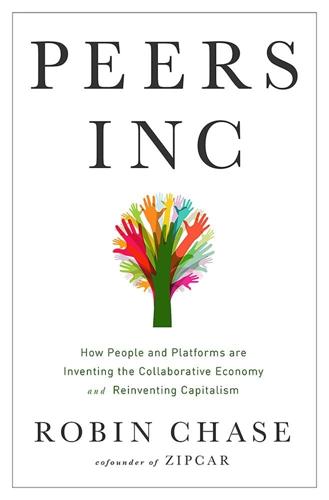
Peers Inc: How People and Platforms Are Inventing the Collaborative Economy and Reinventing Capitalism
by Robin Chase · 14 May 2015 · 330pp · 91,805 words
. When you can connect and share assets, people, and ideas, everything changes, not just how you rent a car. Google, eBay, Facebook, OKCupid, YouTube, Waze, Airbnb, WhatsApp, Duolingo—all are part of this transformation of capitalism. Web 2.0, the sharing economy, crowdsourcing, collaborative production, collaborative consumption, and network effects are
…
World Wide Web. But by 2014, investment into companies whose core assumptions mirrored the ones we pioneered in 2000 had exploded. Sharing houses and apartments, Airbnb raised $450 million in that year. Sharing travel and costs on long car trips, BlaBlaCar raised $100 million. Disrupting the status quo in urban transportation
…
to abundance. Etsy, an online marketplace for makers, is not like a really big craft fair. eBay is different from both classifieds and yard sales. Airbnb is much more than a listing of 1 million bed-and-breakfasts. What distinguishes and transforms these activities is that platforms connect, organize, aggregate, and
…
empower the participating peers. Without the platform—without Airbnb, Etsy, Lyft, TopCoder, or OpenStreetMaps, to name a few—the peer co-creators would not engage, the leveraged excess capacity would be limited, and the
…
individually too small to bother with and make them into something reliable and consistent, thus creating enough value to make tapping into those resources worthwhile. Airbnb, which allows people to rent out all or a portion of their own homes, is definitely the company of reference here, and in recent years
…
amenities, a description, photos, and contact information). Appropriately so, since this is what is needed at a minimum to rent your house to someone, and Airbnb isn’t interested in facilitating other activities. Wide-open ones, such as GitHub and Google Docs (as well as the most open of all, the
…
6 million in revenue and two hundred employees. Jordi, now twenty-eight, is its chief technology officer. Sites such as YouTube, Facebook, Twitter, eBay, and Airbnb could not exist without co-creators, people who reach out to friends, strangers, and colleagues across the Internet. These platforms need peers. And the advantages
…
of a hunter-gatherer economy. I stumbled across a tweet that describes just a subset of the new economy: “Thinking of renting house out on #Airbnb and then putting on my #Uber hat & chauffeuring guests around using #Zipcar.”15 Gretchen, the artist-therapist-mom, sums it up: “Etsy allows people
…
to try out something new with minimal expense. Other new options (Airbnb, for example) allow people to have a little added income while experimenting as well. There is a shift away from the traditional work environments, and
…
are looking for more freedom and flexibility. So many of these new ways of making money allow such freedom.” I asked Joe Gebbia, one of Airbnb’s co-founders, to describe a surprising or unanticipated aspect of his journey from humble start-up to a globe-spanning enterprise with a multibillion
…
the enthusiasm felt by people doing what they want to do, on their own terms, rather than what they’re assigned to do. Using the Airbnb platform, thousands of enterprising individuals have been able to create their own opportunities, without some corporate boss deciding whether they were right for the job
…
soap. The figure below shows how the old-fashioned, physics-constrained, business-as-usual trajectory compares. What happened? The magic of the Peers Inc model. Airbnb’s platform unlocked excess capacity, built a compelling platform for participation, and the peers collaborated to provide the service in almost every place where people
…
way. The rooms existed, already built and paid for in cities and countries around the world, albeit owned by hundreds of thousands of different people. Airbnb made it simple and financially compelling for people to become micro-hoteliers. The company sent skilled interior photographers into major markets to capture interiors in
…
organizing and aggregating it in a way that was useful to consumers. Impressively, the growth in paying guests matched the growth in rooms. Source: Airbnb And Airbnb is not an outlier. BlaBlaCar lets people driving between cities sell the empty seats in their cars to others going the same way. In 2014
…
to grow—it leverages what is at hand, repatterning existing assets into vast new utility and value. This is the gift of a peer partnership. Airbnb and BlaBlaCar could not have done this on their own. The peers have been integral in building and financing these infrastructures. WhatsApp is another mind
…
efforts, without access to peers’ assets and labor inputs, can never approach these growth rates. Consider that for an individual to list her apartment on Airbnb, she needs to clean it, photograph it, write a description, and then market it to her social networks, all before earning a rental. Now
…
and thus market potential. The amount of structure built within the platform determines the amount of variation you let in (see the figure below). BlaBlaCar, Airbnb, and especially Zipcar are very closed platforms. Peers can operate only within constrained and limited choices, resulting in relatively uniform collaboration (and products and services
…
). With GoLoco, only car trips can be shared; with Airbnb, only beds. With Zipcar, people can choose the specific car and time they want; they can make suggestions about improvements and complain about problems, but
…
see too many lackadaisical peers, it would have been simple to raise the standards, making it harder and more complicated to sign up. Chip Conley, Airbnb’s head of global hospitality, told me that as the company and the number of listings has grown, they now warn and then delist nonresponsive
…
question is, transform it into what? A different cover on the same deal flow? Or a totally different group of lenders? In some city markets, Airbnb has seen the same takeover: professionals using the platform to market their apartments, condos, and houses. In early 2014, after a battle of several months
…
, the New York State attorney general received data on New York rentals from Airbnb for the period from January 1, 2010, through June 2, 2014. The attorney general’s analysis, released in October 2014, drew on the anonymized data
…
code bases to build whatever they please. When those Harvard undergraduates started coding Facebook, they turned immediately to existing open-source tools. As an Inc, Airbnb is responsible ultimately to its board of directors, many of whom are investors and who could choose to change the vision if it proved more
…
’s time to add more staff or rules to protect minority interests to make it so. Again, all of this requires increasing escalation and effort. Airbnb has created a group of seventy-five “trusted testers” drawn from their 30,000 “superhosts,” those with the most experience. These testers participate (unpaid)
…
in vetting design and rule changes, as well as making recommendations. Airbnb’s fifteen largest markets also have dedicated community managers as an on-the-ground resource to connect the company more closely to its hosts. Give
…
have ratings 15 percent higher than those who don’t participate. In July 2014, a poorly vetted change was introduced into the thumbnail descriptions of Airbnb listings. The change removed the number of reviews each specific listing had because guest feedback showed that they didn’t understand the purpose of the
…
to the listing descriptions, and used design to clarify its meaning. Thirty hosts active in this write-in effort were invited to become part of Airbnb’s trusted testers. Share best practices with all peers. This is another example of a complete reversal from the playbook of traditional capitalism. In the
…
sharing of best practices, exploring new ideas, and problem solving in an informal, low-pressure setting. We can see all of those things happening in Airbnb’s groups. And a new NGO, Peers.org, is trying to serve as a convener and service provider to support freelancers working in the collaborative
…
without any moving violations in the last three years, for example). Regulators who seek to regulate at the individual peer level (for Uber, Lyft, or Airbnb) should really target their regulatory efforts at the platform, not the peer level, in order to maximize the potential for participation. Instead of requiring every
…
Drupal, has observed that “society is undergoing tremendous change right now—the sharing and collaboration practices of the Internet are extending to transportation (Uber), hotels (Airbnb), financing (Kickstarter, Lending Club), and music services (Spotify). The rise of the collaborative economy, of which the open source community is a part, should be
…
under lockdown. New ways to address bad actors—reputation and trust systems—do change behavior and minimize negative contributions, as they did for eBay sellers, Airbnb hosts, and Uber drivers, who become more conscientious and professional in response to the potential for bad ratings. Examples of institutional courage to adopt the
…
as a service. In the second transition, companies create marketplaces, which enable buyers and sellers to transact around their brand. In addition to the obvious Airbnb example, Patagonia, Ikea, and Levi’s are all offering used-goods marketplaces where people can get “gently loved” apparel and furniture from other customers.
…
4). PLATFORM ECONOMICS: WILL ECONOMIC EFFICIENCY LEAD TO A LESS FAIR SOCIETY? What happens to the economy as Peers Inc structures expand and grow? As Airbnb grows, value is being created in three significantly new ways. One, the platform itself adds a lot of value by organizing the excess capacity. Two
…
taking an underutilized resource (spare bedrooms and temporarily empty apartments) and pressing them into use for the benefit of their owners. At the same time, Airbnb is cutting the price of travel for visitors. Regular hotels may feel some pressure, but that is only to be expected when a resource as
…
—and this has enormous value. It is this third part of the value pie that the Incs generally eat as well. Venture capitalists recently valued Airbnb at $10 billion in 2014, surely taking this network value into consideration.27 At first, everybody seems better off. But if we explore all
…
possible outcomes of a quickly growing platform, we see that many midrange hotels might go out of business as people opt for Airbnb for everything except the luxury market. Full-time jobs in hotels will be lost, and the wealth will be distributed between homeowners making additional money
…
as independent contractors and Airbnb, the platform operator, sitting in the center making a healthy profit. In the future, these kinds of collaborations between efficient platforms and participating peers will
…
(tens of millions of dollars, maybe hundreds of millions). Nor are they appreciating that while investors see zero returns for many years, the very first Airbnb hosts are making money off each and every transaction. It can take hundreds, thousands, even tens of thousands of transactions before a platform breaks even
…
this approach should be familiar to you: transformed economics, co-investment by the peers, potential to scale rapidly. In the earliest days of Bitcoin, Lyft, Airbnb, and Waze, the peer participants didn’t buy new assets to participate because the value to them was too uncertain. As the platform grew and
…
platform. It’s an efficient way for people to volunteer support, but it needs the Peers Inc model to coordinate and provide accountability. This new Airbnb disaster response group is kept apprised of disaster response updates. When it partners with a city or state in advance of anticipated disasters (now there
…
’s a crazy thought!), Airbnb can use its standard communication tools to prepare hosts by sending out emergency preparedness materials and inviting them to training programs. We are still in
…
a limit to this process, but it is far above our current standard of living, and will rely on vastly fewer material resources! This is Airbnb + Zipcar + Lyft + G-Auto + La Ruche + LinkedIn + Facebook + OKCupid + SoundCloud + Spotify + Twitter + openData + eLance-oDesk + Peerby + Yerdle + Etsy + Fiverr + mesh networks +GPS + smartphone apps + YouTube
…
, June 26, 2014, www.xconomy.com/boston/2014/06/26/ma-warns-ride-sharing-car-sharing-drivers-of-insurance-risks. 27. Scott Austin, “How Does Airbnb’s $10 Billion Valuation Size Up?,” Digits blog, Wall Street Journal, March 20, 2014. 28. Roxane Googin, “The Techonomy, Get Used to It,” High
…
, www.thegrommet.com/tech-gadgets. 23. Personal correspondence with Jules Pieri, September 26, 2014. 24. Personal correspondence with Nirmal Kumar. 25. Ibid. 26. “Airbnb Disaster Response,” https://www.airbnb.com/disaster-response. 27. Ibid. 28. Guifi.net website, https://guifi.net/en. 29. Veniam, the company I most recently co-founded, is
…
-its-global-policies/movie-review/41630766.cms. 7. David Bollier, Think Like a Commoner (New York: New Society Publishers, 2014). INDEX Agricultural model, 235–237 Airbnb, 38 benefits to peers, 50 cumulative totals, 74, 75 disaster response initiative, 244 empowering individuals, 58–59 excess capacity, 77–78 implementing constraints, 107 power
…
parity, 127 power users, 116–117 predictive platform, 45 and regulation, 154 triumph over established hotel chains, 74–76 types of value created, 185 Airbnb Groups, 128 Ajema, Daniel, 130 Algorithms, transparency, 129–130 Alibaba, 37 Amazon, as Peers Inc configuration, 88–89 Amoruso, Sophia, 55–56 Anderson, Chris, 53
…
and platforms, 72–73 platform as advocate, 127 supporting, 158–161 See also Freelancers; Micro-entrepreneurs; Peer organizations Peers, beneficial uses of platforms, 49–60 Airbnb, 50 autonomy, 56–59 eBay, 55–56 Etsy, 51 Minecraft, 51–52 online dating sites, 52 sex worker sites, 52–53 3D Robotics, 53–54
…
Power balancing between creators and peers, 99–100 parity, 126–133 sharing for community building, 133–136 See also Peer power Power imbalance, 114–126 Airbnb, 116–117 apps and platforms, 119–123 driving platforms and drivers, 123–124 kernel hackers, 116–118 lending institutions, 115–116, 120 monopolies, 124–
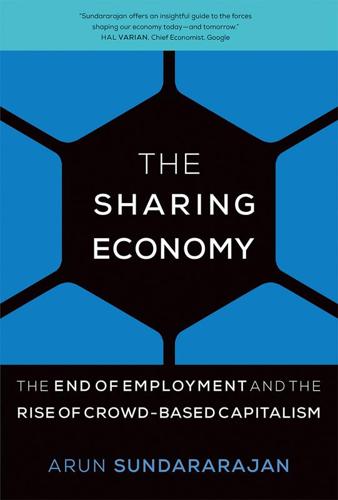
The Sharing Economy: The End of Employment and the Rise of Crowd-Based Capitalism
by Arun Sundararajan · 12 May 2016 · 375pp · 88,306 words
by Humaira Faiz, Sydnee Grushack, Andrew Ng, and Jara Small (on inclusive growth in the sharing economy); Jonah Blumstein, Valeriya Greene and Eric Jacobson (on Airbnb and city regulations); Andrew Covell, Varun Jain, and June Khin (on the organization of sharing economy platforms); Phil Hayes (on surge pricing); Dmitrios Theocharis and
…
streaming music services Spotify, Pandora, and iTunes; a high-rise Ramada Inn versus a tree house for rent on the peer-to-peer accommodation platform Airbnb; full-time workers seated ear-to-ear in endless rows versus an Internet-based freelancer marketplace. As straightforward as an illustrated children’s book,
…
constructing dedicated units for short-term accommodation—hotels—why not tap into the millions of sometimes-empty apartments and spare rooms around the world? The Airbnb way could thus be a compelling microcosm for why the economic fundamentals of crowd-based capitalism are simply superior to those of the industrial era
…
the distinction between the two economies—commercial and sharing—will get increasingly blurred. Some hybrids that may take the form of commerce leading sharing, like Airbnb, or a form where commerce is leveraged but sharing is the real objective (for example, the time banking platform TimeRepublik where time rather than money
…
with some cases at both ends of the spectrum, and many more in between. Let me illustrate this point with a few examples. Accommodation: Couchsurfing, Airbnb, OneFineStay Short-term accommodation platforms are among the most high-profile and high-use peer-to-peer platforms, transforming how people travel both domestically and
…
important economic hubs on the web, neither exemplifies the sharing economy’s most interesting economic activities. The transactions are quite different from those on Uber, Airbnb, Handy, or Getaround. In many ways, these differences explain why eBay and Alibaba came of age many years before the sharing economy did. First,
…
that brand and platform certifications continue to play in today’s sharing economy. While there are other platforms that provide shared short-term accommodation (like Airbnb), or urban transportation (like Lyft and Uber), these platforms’ brand recognition continues to be a powerful factor in shaping their growth. In this respect,
…
the crowd has moved from simply providing ideas (open innovation) to providing actual services (crowd-based capitalism). Put differently, might one think of Uber and Airbnb as simply giant “micro-outsourcing” operations, with hundreds of thousands, and maybe soon, millions of small providers? I believe it is more useful to think
…
drivers are constrained by their auto loans. **In some cities, Uber’s staff may send information to drivers suggesting when to be available and where. ***Airbnb has a pricing tool built into the platform. ****TaskRabbit makes active suggestions, and perhaps restricts many customers from browsing all available providers. My MBA students
…
. Our research suggests wide variation across different platforms. Many resemble markets that facilitate entrepreneurship, whereas others look more like hierarchies that employ contractors. Along with Airbnb, Etsy, and BlaBlaCar, labor platforms like Upwork and Thumbtack, social dining platforms like VizEat and Eatwith, the local tour guide exchange platform Vayable (founded
…
residences are used intensively, even a small fraction of spare capacity leads to a high latent rental value because the underlying asset is so valuable. Airbnb’s success is a testament to the potential in unlocking this latent rental value. Additionally, much like how the asset specificity associated with certain commercial
…
is concerned with the design, production, and distribution of goods through collaborative networks. By contrast, collaborative consumption seeks to maximize assets through their shared redistribution. Airbnb and Getaround are good examples. The third category involves collaborative forms of finance, such as Funding Circle and Kiva, or Bitcoin (which enables people to
…
that facilitate a greater level of peer-to-peer trust in decentralized marketplaces will emerge, much like the different layers of the trust infrastructures from Airbnb and BlaBlaCar facilitate high-stakes intermediated peer-to-peer exchange today. For example, as of 2015, Traity, the reputation service we discussed in chapter
…
firms.18 As a greater fraction of economic activity is conducted by individuals who either have more fluid relationships with firm-market hybrids like Uber, Airbnb, and Etsy, or are building expertise as small-scale entrepreneurs like David from RelayRides, quantifying these labor economic impacts of digitization gets increasingly complex.
…
one such non-financial benefit: “Hospitality is really the idea of making somebody feel like they belong; it’s about welcoming somebody.” Chesky added that Airbnb is “not necessarily completely changing people, but we’re changing a little bit of their mindsets.” As Chesky further explained, “I myself have changed
…
of micro-entrepreneurs would cause the loss of many of the economies of scale that 200 years of progress have yielded. After all, can an Airbnb host ever produce short-term accommodation more efficiently than a specialized group of professionally trained hotel employees working as highly optimized teams in dedicated real
…
ones, new economic activity will be enabled. Put differently, we grow the pie, rather than simply carving it up differently. Consider our now-familiar example, Airbnb. Hotels deliver a wide range of accommodation options. However, there are many dimensions of the hotel experience that are standard: hotel rooms are located in
…
also be rentable), and the relationship between price and amenities is far more variable. And the variety is even greater when one considers sites beyond Airbnb. Couchsurfing offers spare couches; OneFineStay offers luxury homes within what otherwise resembles a white glove, full-service experience; Debbie Woskow’s LoveHomeSwap offers vacation
…
that requests were fulfilled about 70% of the time), and correspondingly, there is no guarantee that you will actually get a customer for your Airbnb or Getaround listing when you list it for rental. The discussion above illustrates why we need systematic economic analysis to uncover the eventual effects of
…
on the bed-and-breakfast industry, but not through direct competition. Rather, these businesses appear to be “collateral damage” in the ongoing regulatory tussle between Airbnb and New York City. See, for example, http://observer.com/2014/12/manhattan-bed-breakfasts-face-extinction and http://www.crainsnewyork.com/article/20140921/HOSPITALITY
…
http://video.pbs.org/widget/partnerplayer/2365538931. 28. Georgios Zervas, Davide Proserpio, and John Byers, “ The Rise of the Sharing Economy: Estimating the Impact of Airbnb on the Hotel Industry,” Boston University School of Management Research Paper No. 2013–16, May 7, 2015). http://dx.doi.org/10.2139/ssrn.2366898
…
and institutions that fail to confront and solve new problems of societal complexity. —Douglass C. North, from his Nobel Prize Lecture, December 9, 1993 When Airbnb’s cofounders were developing their peer-to-peer accommodation platform, hotel regulations were the least of their worries; Chesky, Gebbia, and Blecharczyk were plugging holes
…
225,000 New Yorkers using the platform. By 2013, cities around the world were grappling with the regulatory challenges raised by sharing economy platforms like Airbnb. The United States Conference of Mayors issued a resolution that summer in support of the economic potential of the sharing economy, and Brooks Rainwater, the
…
be rented by long-term residents.3 A coalition of legislators and homeowner associations called “Share Better” launched in 2014 to generate grassroots opposition to Airbnb. The organization’s website proclaims: “Far from being a harmless service where New York City residents can share their homes with guests to the City
…
also advised New York City hosts to consult their own lawyers in order to determine the legality of their specific rentals. The evolving situation involving Airbnb and New York State provides an interesting microcosm of many of the regulatory issues I discuss in this chapter. State and city government resistance
…
like rent control and population growth are the primary contributors to the shortage of affordable rental housing in San Francisco.) The level of acrimony toward Airbnb from the hotel industry is captured well by the statements made by Vanessa Sinders, Senior Vice President and Head of Government Affairs of the American
…
even be aware that these regulations exist. It also seems likely that if most of the micro-entrepreneurs who populate peer-to-peer platforms like Airbnb and Etsy were aware of industry regulations, they may never have pursued their small business ideas in the first place. Regulations, therefore, might create
…
on the “regulation as an intervention to correct market failure” approach, viewing the challenges raised by the sharing economy through this lens. As platforms like Airbnb, Lyft, Getaround, and Etsy disrupt old economic systems rooted in firm-to-consumer interactions and individual ownership, we are witnessing myriad regulatory issues. These issues
…
any regulatory requirements, conducts in-person driver screenings that also include criminal background checks and an assessment of driving history. Similarly, as of July 2013, Airbnb employed 300 people in its customer-service unit, and 50 of them were dedicated to promoting trust and safety. Externalities: When Others Bear the Consequences
…
However, today’s sharing platforms have brought these informal exchanges into the mainstream economy, creating service providers who are “in between” personal and professional—like Airbnb hosts who rent out their apartments when they travel, or Lyft drivers who transport people commercially for a few hours a week. This blurring of
…
importance of brand cannot be underestimated in today’s sharing economy. We are still a population that places its faith in brand names: platforms like Airbnb, Lyft, and Uber understand this; eBay understood this when they created Power Sellers; and BlaBlaCar understands this when they place an explicit certification of
…
capabilities (if a driver is noncompliant, they are simply disconnected from the application and can no longer get any business). Returning to the example of Airbnb: while no comparable state-wide government-sanctioned solutions have emerged in the United States, different self-regulatory systems are already playing a large role in
…
directly with the government, which is something occasional hosts seem reluctant to do. It also sidesteps privacy concerns resulting from mandates that digital platforms like Airbnb turn over detailed user data to the government. There is also significant opportunity for the platform to build credibility as it starts to take on
…
employees’ paychecks as they are issued but contractors, who receive a 1099 from an employer at the end the year, pay directly to the government. (Airbnb is withholding hotel taxes in a growing number of cities, an administrative convenience that clearly shouldn’t alter its hosts’ employment status.) Third, who supplies
…
tools they need to complete a job while contractors are expected to supply their own tools. (Would the centrally provided Uber driver app, or the Airbnb/Etsy software that every host and customer uses be considered a “tool”?) Fourth, can disciplinary actions be taken against the worker? While independent contractors may
…
providers to use its own centralized assets. A second dimension relates to pricing, supply, and merchandizing. For the most part, most sharing economy platforms—TaskRabbit, Airbnb, Uber, Lyft, Getaround—allow their providers to choose when they, their assets, or their services are available. This forces providers to “learn” how to
…
flexibility, but provides a pricing tool for hosts that may be based in part on a centralized revenue management approach. Etsy sellers, Getaround providers, and Airbnb hosts have to invest significantly in merchandizing (photos, copy that describes their products or properties, and so on), while Uber and Lyft drivers are not
…
allows the creation of provider-specific customer relationships that are more entrepreneurial and less contractor-like. Again, on this front, there is variety across platforms. Airbnb allows complete freedom for guests to choose their hosts and vice versa. (There is a “book now” alternative, but that’s a choice a
…
traditional trusted third party? Another dimension relates to whether the platform offers customer relationship management (CRM) mechanisms that aid a provider in their customer service. Airbnb provides a peer-to-peer messaging service that facilitates host-guest communication, while Uber’s customer support is almost all centrally provided by the platform
…
In a 2014 Fast Company article, Lisa Gansky summarized the early evolution of the sharing economy by indicating that “early companies like Uber, Lyft, Quirky, Airbnb, TaskRabbit, RelayRides, and 99 Designs garnered much visibility, but these companies were funded by venture capital, with an eye on big paydays for investors—and
…
once required steel and concrete investment—may shape the urban infrastructures of the future. BlaBlaCar’s national transportation networks, JustPark’s invisible parking lots, and Airbnb’s disaster-relief housing platform are early examples. The evolution of trust in society on account of people’s increased participation in the sharing economy
…
Fourth Industrial Revolution (Geneva: The World Economic Forum, 2016). Index Abrams, Jen, 43 Access without ownership, 14–16 Accommodation platforms, 38–43, 45. See also Airbnb; Couchsurfing increased variety and consumption with, 121 rental market analysis, 125–130 Acemoglu, Daron, 144 Achamore House, 105 Additive manufacturing, 57–58 Adomavicius, Gedas, 112
…
Adverse selection, 139 Aggarwal, Bhavish, 116 Airbnb, 2, 3, 6, 29, 45, 48, 106, 139, 159, 197, 203. See also Accommodation platforms blurring of boundaries and, 141–142 convenience of, 128
…
, 207n4 Kickstarter, 41 Kiva, 41–42 venture capital, 25–26, 42–43 Peer-to-peer rental market, 14–16, 79–82, 125–130. See also Airbnb; Drivy; Getaround; RentezVous; SnapGoods, SnappCar; Stylelend; Turo Perez, Tom, 179 Permissionless innovation, 146 Petersmeyer, Wrede, 134 Pick, Francesca, 24 Piketty, Thomas, 123–124 Platform,
…
Rainwater, Brooks, 131 Rajaram, Anand, 97 Ranchordàs, Sofia, 146–147 R3CEV, 100 Re/code, 183 Recording Industry Association of America, 59 Reder, Libby, 187 Regulation Airbnb and, 131–135, 154 blurring of boundaries, 8, 27, 46, 76, 141–142, 148, 171 delegated through data, 155–158 economic institutions and brand-based
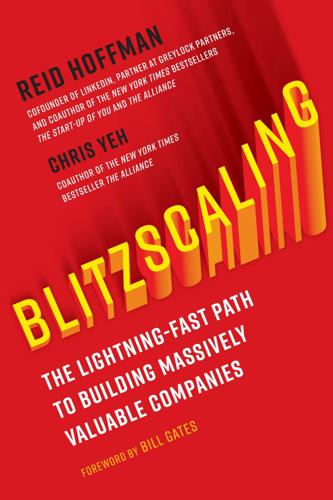
Blitzscaling: The Lightning-Fast Path to Building Massively Valuable Companies
by Reid Hoffman and Chris Yeh · 14 Apr 2018 · 286pp · 87,401 words
on the upswing now, but the painful early days were still fresh in their minds, and they weren’t looking for another battle. * * * When the Airbnb founders first met, Paul Graham, the highly regarded founder of the start-up accelerator Y Combinator (YC), told them flat out that their idea was
…
), to invest. Now, nearly four years later, it seemed like all the hard work was finally starting to pay off. Having celebrated its millionth booking, Airbnb had plenty of working capital, and it was clear that the concept was valuable. But when you’re successful, you attract competition. And sometimes that
…
competition represents a deadly threat. In Airbnb’s case, that threat was three brothers from Cologne, Germany: Oliver, Marc, and Alexander Samwer. They had become billionaires by analyzing successful US companies, rapidly
…
(MyVideo), Twitter (Frazr), and Facebook (StudiVZ) before founding their own start-up studio, Rocket Internet. In early 2011, Brian and his team started noticing that Airbnb users were being spammed by a new company named Wimdu. Wimdu had apparently just received $90 million—the largest investment in a European start-up
…
, a major Swedish investment company that had partnered with the Samwer brothers. The problem? Wimdu’s business model and website looked like a knockoff of Airbnb’s. Wimdu was founded in March 2011, and, within weeks, the Berlin-based company had hired a staggering four hundred employees and opened twenty offices
…
across Europe. Meanwhile, the original, but much smaller, Airbnb had raised only $7 million, had just forty employees, and operated out of a single office in San Francisco. As a first-time CEO, Brian
…
, roughly 10 percent of its valuation at that point, to acquire this competitor. Here was the question weighing heavily on Brian and his team: Should Airbnb follow Groupon’s strategy and just buy the knockoff company? Brian’s gut instinct was to say no. Integrating Wimdu’s finance-centric and metric
…
drives “lightning” growth by prioritizing speed over efficiency, even in an environment of uncertainty. It’s a set of specific strategies and tactics that allowed Airbnb to beat the Samwer brothers at their own game. Just a few months later, determined to acquire the resources needed to outscale the Samwers, Brian
…
in London, Hamburg, Berlin, Paris, Milan, Barcelona, Copenhagen, Moscow, and São Paulo. Bookings had grown ten times since that previous February, and in June 2012 Airbnb announced its ten millionth booking. “The Samwers gave us a gift,” Brian admitted many years later in our Blitzscaling class. “They forced us to scale
…
faster than we ever would have.” By choosing to grow at a breakneck pace, Airbnb had achieved a dominant position in its market. Despite the initial advantages that the Berlin-based Wimdu had in human resources, financial capital, and European
…
and discomfort of blitzscaling your company, Or accept what might be the even greater risk of losing if your competition blitzscales before you do. Was Airbnb’s decision to expand into European markets—a move that could have stretched the company so thin as to destroy its core business—either efficient
…
or certain? Hardly. Airbnb could easily have failed, burning through all its capital while essentially ceding the European market to its copycat competitor Wimdu. Yet the risky decision proved
…
talked to hundreds of entrepreneurs and CEOs, including those of the world’s most valuable companies, such as Facebook, Alphabet (Google), Netflix, Dropbox, Twitter, and Airbnb. (You can hear a number of these conversations on my podcast, Masters of Scale.) Even though the stories of their companies’ rise were very different
…
a member of the founding team at PayPal; as the cofounder, CEO, and now executive chairman at LinkedIn; as a leading investor in Facebook and Airbnb; and as an investor at Greylock Partners, where I worked with many other billion-dollar companies, such as Workday, Pandora, Cloudera, and Pure Storage. My
…
that dwarf those of most publicly traded companies. Due to my role at Greylock Partners, I can’t comment on the valuations of Dropbox and Airbnb, but they occupy a similar place in the ecosystem. Consider the case of two very similar companies, Twitter and Tumblr. Both had brilliant, product-oriented
…
to store) increases far more slowly than the value created for the customer and thus the revenues Dropbox can collect from those customers. Uber and Airbnb also built large businesses at incredible speed based on novel business models rather than unprecedented new technologies. If technological innovation alone were enough, federal research
…
), and Yahoo! (Yahoo! Mail) controlled most consumer online identities when those social networks first emerged. Alibaba beat eBay in China. Uber outflanked the taxi companies. Airbnb has more room listings than any hotel company in the world. These success stories are technology companies, sure. But as we’ve seen, technological innovation
…
others are still paralyzed by fear is also one of the main opportunities for unexpectedly high returns, as we’ll see in the cases of Airbnb and Uber. Ideally, the market itself is also growing quickly, which can make a smaller market attractive and a large market irresistible. In Silicon Valley
…
to help them achieve their goal of returning more than three times their investors’ money. When Brian Chesky was pitching venture capitalists to invest in Airbnb, one of the people he consulted was the entrepreneur and investor Sam Altman, who later became the president of the Y Combinator start-up accelerator
…
interact with it—but it was technology innovation for the purposes of distribution innovation, not product innovation. “It was a kind of a novel approach,” Airbnb founder Nathan Blecharczyk said of the integration. “No other site had that slick an integration. It was quite successful for us.” Leveraging an existing network
…
invest in) these network effects start-ups. Several generations of start-ups have tapped these dynamics to build dominant positions, from eBay to Facebook to Airbnb. To accomplish these goals, it’s critical to develop a rigorous understanding of how network effects work. My Greylock colleague Simon Rothman is one of
…
by one set of users increases the value to a different set of complementary users, and vice versa. (Example: Marketplaces such as eBay, Uber, and Airbnb) Local Network Effects: Increases in usage by a small subset of users increases the value for a connected user. (Example: Back in the days of
…
taking photographs for them. Obviously, personally visiting every host was hardly a scalable solution, so the the task was soon outsourced to freelance photographers. As Airbnb grew, the strategy shifted from the founders managing a short list of photographers, to an employee managing a large group of photographers, to an automated
…
: MARKETPLACES Marketplaces represent one of the most successful business model patterns, with the dot-com era’s Google and eBay and today’s Alibaba and Airbnb standing out as examples of important, valuable companies that follow this pattern. One reason marketplaces are powerful is because they often tap into two-sided
…
disagree with you; it means that smart people disagree with you! Remember what happened when Brian Chesky, Joe Gebbia, and Nathan Blecharcyzk tried to pitch Airbnb? Investors like Paul Graham literally couldn’t imagine why people would ever use the service. This doesn’t happen because investors are dumb; most venture
…
a certain speed or higher to avoid setting off a bomb creates built-in dramatic tension—especially given the famously bad traffic in Los Angeles. Airbnb works because it has a large market, because travelers spreading awareness from city to city creates virality, and because it follows the proven pattern of
…
simply a matter of capturing economies of scale, as with Amazon or Walmart, but most often critical mass triggers network effects, as with Uber or Airbnb. Blitzscaling is unlikely to prove successful if another company has already achieved first-scaler advantage. During the dot-com era, both Amazon and Yahoo! attempted
…
business began to take off, the company faced a terrifying competitor in the form of the Samwer brothers of Germany and their rapidly growing European Airbnb clone, Wimdu. Chesky and his cofounders were forced to make a hard decision: stick to business as usual in San Francisco and risk being trounced
…
by Wimdu…or blitzscale and win. Looking back a few years later, Chesky admitted that the competition forced his hand for the better. The Airbnb/Wimdu story is becoming more common in the Networked Age. The world used to have a lot more businesses that were protected from competition by
…
may choose to take on the risks you’re reluctant to assume in exchange for a chance at reaping the potential rewards. That’s what Airbnb learned when Wimdu entered its market. Blitzscaling requires capital—whether from investors or from cash flow—to fund relatively inefficient growth. If investors are willing
…
and more about pursuing a differentiated (but still aggressive) strategy. For example, one of the signature strategies for blitzscaling is rapid, parallel market development. When Airbnb made the decision to blitzscale, its chosen strategy was to rapidly expand from a single office in the United States to a score of offices
…
; rather, Chesky shares his thinking on a topic he considers important to the company. This broadcast communication’s length, specificity, and authenticity transmit to every Airbnb employee an understanding of who Chesky is and what matters to him. Regular e-mails to all employees are a common best practice. Blitzscaling masters
…
thanks to the individual talent and hard work of founders like Mark Zuckerberg and Brian Chesky, but they blitzscale into giant companies like Facebook and Airbnb because these founders learn how to delegate. One of the most important aspects of delegation, and often the most challenging for a founder, is to
…
some books on the topic, but I almost always supplement this reading by seeking out dialogue with leading experts in the field. Brian Chesky at Airbnb, another amazing learning machine, does something similar, seeking advice from mentors like Sheryl Sandberg and Warren Buffett. Brian told our class at Stanford, “If you
…
assignment. Eventually the founders hired Joe Zadeh as an entry-level engineer and asked him to work with Ellie to fully automate the photography process. Airbnb worked its way through three different ways of handling photography before building any code, and has rewritten the photography system multiple times since then. It
…
wouldn’t have made sense for Airbnb to start by building a scalable automated photography system; at the point when the company began this journey, the site was receiving a mere ten
…
of inefficiencies you can tolerate and fires you can let burn during your blitzscaling journey, ignoring your culture is not an option. Brian Chesky of Airbnb defines culture in a simple and concise way: “a shared way of doing things.” Clearly defining the way an organization does things matters, because blitzscaling
…
, Google, Facebook—are known for their distinctive cultures, regardless of their era. The same can be said for more recent start-up market leaders like Airbnb and Salesforce.com. Typically, the credit for these cultures goes to the founders. Bill Hewlett and David Packard are synonymous with the HP Way. Bob
…
to repeat things” Brian told our class at Stanford. “Culture is about repeating, over and over again, the things that really matter for your company.” Airbnb reinforces these verbal messages with visual impact as well. Brian hired an artist from Pixar to create a storyboard of the entire experience of an
…
culture in superficial ways—whether based on gender or race or alma mater—hire people who are additive to your culture. When Belinda Johnson joined Airbnb in 2011, she brought a very different background and experience to the young company. The founders were in their twenties; Belinda had been a lawyer
…
start-up can play the same game, scale may not provide a significant advantage unless there is a massive difference in scale. For example, when Airbnb was blitzscaling, it was competing with HomeAway, an established player that had much greater scale. However, HomeAway had achieved its scale via a string of
…
’s scale was actually a disadvantage! HomeAway itself was later acquired by Expedia, as part of that company’s response to the competitive threat of Airbnb. ADVANTAGE #2: ITERATION Another advantage that established companies have is the ability to make multiple, iterative blitzscaling attempts. Blitzscaling is a risky strategy, and you
…
how we communicate. Marketplaces like Alibaba and eBay provide economic opportunity—some dedicated sellers even rely on them for their livelihoods. Sharing economy services like Airbnb can bring more tourism and diversity into the cities in which they operate. And Amazon is changing the entire retail industry, which affects everyone. As
…
fund growth, companies are staying private longer so that they can keep making investments in blitzscaling that the public markets might frown upon. Companies like Airbnb and Xiaomi have valuations in the tens of billions, making them more valuable (on paper) than the vast majority of publicly traded companies. Because investors
…
, either Reid Hoffman or the venture firm Greylock Partners, where he is a general partner, have the following relationships with companies mentioned in this book: Airbnb: Greylock portfolio company; investor and board observer Cloudera: Greylock portfolio company Dropbox: Greylock portfolio company Facebook: Greylock portfolio company; personal investment Friendster: personal investment Gladly
…
: THE BLITZSCALERS Throughout this book, we tell the stories of various blitzscalers. This appendix includes brief profiles that provide basic context for the curious reader. AIRBNB Airbnb.com Airbnb is an online marketplace and hospitality service, enabling people to lease or rent short-term lodging including vacation rentals, apartment rentals, homestays, hostel beds
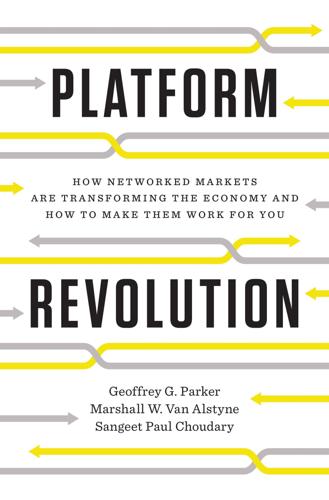
Platform Revolution: How Networked Markets Are Transforming the Economy--And How to Make Them Work for You
by Sangeet Paul Choudary, Marshall W. van Alstyne and Geoffrey G. Parker · 27 Mar 2016 · 421pp · 110,406 words
model underlies the success of many of today’s biggest, fastest-growing, and most powerfully disruptive companies, from Google, Amazon, and Microsoft to Uber, Airbnb, and eBay. What’s more, platforms are beginning to transform a range of other economic and social arenas, from health care and education to energy
…
in Austin. But they soon discovered that demand for friendly, affordable accommodations provided by local residents existed year-round and nationwide—and even internationally. Today, Airbnb is a giant enterprise active in 119 countries, where it lists over 500,000 properties ranging from studio apartments to actual castles and has served
…
model that uses technology to connect people, organizations, and resources in an interactive ecosystem in which amazing amounts of value can be created and exchanged. Airbnb, Uber, Alibaba, and Facebook are just four examples from a list of disruptive platforms that includes Amazon, YouTube, eBay, Wikipedia, iPhone, Upwork, Twitter, KAYAK,
…
markets for promising territories, investing in existing properties or building new ones, and spending large sums to maintain, upgrade, expand, and improve them. Upstart Airbnb is, in one sense, in the same business as Hilton or Marriott. Like the hotel giants, it uses refined pricing and booking systems designed to
…
readers to determine which books will be widely read and which will not. Platforms of all kinds rely on similar feedback loops. Platforms like Airbnb and YouTube use such feedback loops to compete with traditional hotels and television channels. As these platforms gather community signals about the quality of content
…
(in the case of YouTube) or the reputation of service providers (on Airbnb), subsequent market interactions become increasingly efficient. Feedback from other consumers makes it easy to find videos or rental properties that are likely to suit your
…
taxi company, owns no vehicles. Facebook, the world’s most popular media owner, creates no content. Alibaba, the most valuable retailer, has no inventory. And Airbnb, the world’s largest accommodation provider, owns no real estate.”3 The community provides these resources. Strategy has moved from controlling unique internal resources and
…
Huffington Post, Kindle Publishing Operating Systems iOS, Android, MacOS, Microsoft Windows Retail Amazon, Alibaba, Walgreens, Burberry, Shopkick Transportation Uber, Waze, BlaBlaCar, GrabTaxi, Ola Cabs Travel Airbnb, TripAdvisor FIGURE 1.2. Some of the industry sectors currently being transformed by platform businesses, along with examples of platform companies working in those arenas
…
(formerly known as Elance-oDesk), job listings attract freelancers, and freelancers attract job listings. On PayPal, sellers attract buyers, and buyers attract sellers. And on Airbnb, hosts attract guests, and guests attract hosts. All of these businesses attract two-sided network effects with positive feedback. The importance of these effects for
…
We described our findings in a paper that analyzed the mathematics of two-sided network effects.10 Today, such successful platform businesses as eBay, Uber, Airbnb, Upwork, PayPal, and Google exhibit this model extensively.11 SCALING NETWORK EFFECTS: FRICTIONLESS ENTRY AND OTHER SCALABILITY TOOLS As you can see, network effects depend
…
consume. On some platforms, users engage in side switching easily and repeatedly. Uber, for example, recruits new drivers from among its rider pool, just as Airbnb recruits new hosts from among its guest pool. A scalable business model, frictionless entry, and side switching all serve to lubricate network effects. NEGATIVE NETWORK
…
, giant companies relied on supply-side economies of scale. By contrast, most Internet era giants rely on demand-side economies of scale. Firms such as Airbnb, Uber, Dropbox, Threadless, Upwork, Google, and Facebook are not valuable because of their cost structures: the capital they employ, the machinery they run, or
…
like the racist and sexist abuse spewed by trolls on Reddit, the murders of people found through Craigslist, and the trashing of apartments booked through Airbnb illustrate how undesirable interactions damage network effects. Designing a platform to facilitate value-creating interactions is not a simple matter. We’ll explore the challenges
…
, taxi companies—and regulators—have realized that Uber is on the march to global domination of local transportation. Once ridiculed by the hotel industry, Airbnb has rapidly scaled to become a global provider of accommodation, with more rooms booked every night than the largest global hotel chains. Upwork is gradually
…
of X” are working to alter consumer behavior in other arenas.10 Reconfiguring quality control through community-driven curation. When new platforms such as YouTube, Airbnb, and Wikipedia are launched, they are often widely criticized, even ridiculed. This is because, in their early stages, they fail to offer the quality
…
and reliability provided by their traditional competitors. YouTube’s early content often bordered on pornography; much of it was pirated. Apartments listed on Airbnb would get raided by city inspectors responding to complaints about orgies. Wikipedia biographies declared many a living person deceased. This is the problem with abundance
…
of platform-driven disruptions as de-linking assets from value, re-intermediation, and market aggregation. De-linking assets from value. The most familiar platform examples—Airbnb, Uber, Amazon—come from the business-to-consumer (B2C) arena. How do you convert a product to a platform in the business-to- business
…
viral growth—a form of growth impossible in the industrial economy of pipelines and products—helps to explain the success of many other platform startups. Airbnb encouraged users with rooms to rent (hosts) to list their offerings (value units) on Craigslist (external network). Those who saw the room listings (recipients)
…
and were motivated to rent those rooms became Airbnb users—and many subsequently began renting out rooms of their own, fueling the growth of the platform. OpenTable similarly encourages diners (hosts) to share their
…
platforms grow on top of other networks. Instagram, Twitter, Zynga, Slide, and other platforms have achieved viral growth by leveraging Facebook as an underlying network. Airbnb spread on Craigslist; OpenTable spreads on email. However, leveraging an external network is not as simple as introducing a “Share on Facebook” button and waiting
…
students on Skillshare find value in the courses made available through the site. • For producers or third-party providers: Access to a community or market. Airbnb is valuable for hosts because it provides access to a global market of travelers. Company recruiters find LinkedIn valuable because it enables them to connect
…
that connect service providers with service consumers. With the rise of the freelancer economy and the spread of the online sharing economy, platform businesses from Airbnb and Uber to TaskRabbit and Upwork have sprung up to facilitate service interactions. However, most of them are faced with the challenge of capturing
…
while the provider gets to keep more of the total service charge. The only loser is the platform company itself. Platforms like Fiverr, Groupon, and Airbnb solve this problem by temporarily preventing participants from connecting. These platforms try to provide all the information a consumer needs to make an interaction decision
…
, without connecting the consumer directly with the producer. Groupon does this by featuring services that are largely standardized, while the less-standardized Airbnb and Fiverr provide rating mechanisms and other social metrics that indicate the reliability of a service provider, making direct contact between the parties less necessary
…
the platform and retains legal control over the technology. In many cases, these two entities are one and the same. Companies like Facebook, Uber, eBay, Airbnb, Alibaba, and many others are both platform managers and platform sponsors. In this situation, control of the platform, including decisions about openness, rests completely with
…
and to deliver value through tools and rules that make the core interaction easy and mutually satisfying. Core developers are responsible for basic platform capabilities. Airbnb provides an infrastructure that allows guests and hosts to interact with each other using system resources, including the search capabilities and data services that allow
…
guests to find attractive properties as well as the payment mechanisms necessary to conclude a transaction. In addition, Airbnb manages behind-the-scenes functions that reduce transaction costs for guests and hosts. For example, the platform provides default insurance contracts for both parties, protecting
…
reputation system a meaningful measure of user behavior. Designing, fine-tuning, maintaining, and continually improving systems like these are all elements of the work of Airbnb’s core developers. Extension developers add features and value to the platform and enhance its functionality. They are normally outside parties, not employed by the
…
the extent to which the platform will be open to extension developers. A number of extension developers have enhanced the value of the Airbnb platform. For example, Airbnb’s own research reveals that properties listed with professional-quality photographs are viewed by prospective renters twice as often as those with lower-quality
…
developers, including Urban Bellhop and Guesthop, make travel arrangements for guests, such as dining reservations and babysitting services. With the assistance of outside firms, an Airbnb host can offer a suite of services that compares to those provided by a full-service hotel. In order to facilitate this extension of its
…
same type of service, which will reduce the profit earned by any one provider and reduce the incentive to extension developers to customize services for Airbnb users. Platforms that choose to encourage extension developers by granting a high degree of openness will usually create an application programming interface. This is one
…
building software applications that makes it easy for an outside programmer to write code that will connect seamlessly with the platform infrastructure. Currently, although Airbnb has developed an API, it is not generally available to all developers that wish to connect to the platform—an indication of the middle way
…
Facebook relies on users to flag objectionable content such as hate speech, harassment, offensively graphic images, and threats of violence. Service platforms like Uber and Airbnb incorporate user ratings into their software tools so consumers and producers can make informed choices about whom they choose to interact with. No system of
…
far from a purely theoretical issue. We’ve mentioned some of the serious legal problems faced by platforms earlier: individuals who listed properties on Airbnb had their homes used for brothels and raves; people offering personal services on Craigslist have been murdered.21 Case law does not generally hold platforms
…
twenty-four hours.45 In recent years, new platform businesses have made the same mistake as credit card companies did in the 1960s. Initially, Airbnb refused to indemnify hosts against bad guest behavior, and Uber refused to insure riders against bad driver behavior.46 Eventually, both companies realized that this
…
It also takes additional measures to build trust, including having photographers certify the accuracy of the information contained in a host’s listing. By contrast, Airbnb’s competitor Craigslist has earned relatively low scores on the trust metric and has experienced a number of embarrassing scandals involving apparently sleazy platform users
…
interactions is a perfectly adequate and complete measurement of the current activity flow on the site. Other platforms need to develop more sophisticated interaction metrics. Airbnb, for example, tracks the number of nights booked, which is a better indicator of value creation for this platform than simply recording the number of
…
-publishing and publishing on demand, within the traditional book industry) or create an alternative pie that taps new markets and sources of supply (as Airbnb and Uber have done alongside the traditional hotel and taxi industries). Actively managing network effects changes the shape of markets rather than taking them as
…
important social challenge: the need to design balanced internal governance systems and external regulatory regimes to ensure they operate fairly.1 As platforms such as Airbnb, Uber, Upwork, RelayRides, and many more play a growing role in the economy and in the social and political spheres, issues about the rights
…
publishers and bookstore chains might hate Amazon, why record companies might hate iTunes, why taxi companies might hate Uber, and why hotel chains might hate Airbnb. Naturally, when criticism of platforms—including calls for strict regulation to limit their impact—comes from interested sources like these, it should be taken with
…
used up. And nearly all personal homeowner’s policies in the U.S. specifically exclude coverage for “commercial activity” in the home—including rentals. Airbnb appears to be hoping that the cost of damages will somehow get pushed onto personal insurance policies administered by companies that aren’t diligent about
…
are positive—economic and other benefits that businesses provide to uninvolved third parties. Some data suggest that hotel prices fell slightly after the entry of Airbnb, likely increasing the tourism business and ultimately benefiting local restaurants and other attractions.5 Other data suggest that the number of drunk driving deaths has
…
Friedersdorf puts it, “The car service Uber is fighting in cities all over America to end the regulatory capture enjoyed by the taxicab industry.”11 Airbnb is facing similar battles with regulators who are influenced by long-standing relationships with the hospitality industry. In the eyes of some observers, the
…
for businesses and individuals looking for goods and services created by far-flung local producers. Platforms ranging from Yelp and OpenTable to Etsy, Uber, and Airbnb have made it easy for customers to visit a single source to gain access to thousands of small suppliers. • Industries characterized by extreme information asymmetries
…
New York Times, December 6, 2014. 5. Georgios Zervas, Davide Proserpio, and John W. Byers, “The Rise of the Sharing Economy: Estimating the Impact of Airbnb on the Hotel Industry,” Boston University School of Management Research Paper 2013-16, http://ssrn.com/abstract=2366898. 6. Brad N. Greenwood and Sunil Wattal
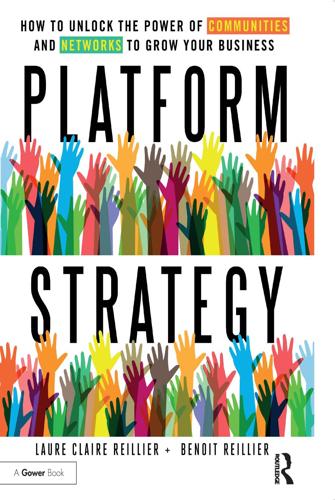
Open for Business Harnessing the Power of Platform Ecosystems
by Lauren Turner Claire, Laure Claire Reillier and Benoit Reillier · 14 Oct 2017 · 240pp · 78,436 words
selected business models Amazon’s ecosystem Apple’s ecosystem Google’s ecosystem Rocket life stages Hilton’s value proposition Deconstructing value propositions for multisided businesses Airbnb’s value propositions Examples of performance metrics at platform ignition Illustrative value proposition for a scaling product marketplace Mapping interactions between participants – eBay illustration Examples
…
Lastly, we used our experience, greatly enriched by many discussions with friends, academics and colleagues with experience at platform firms such as eBay, PayPal, Uber, Airbnb, Facebook and Google, to develop a practical guide for those interested in designing, igniting, scaling and defending a platform. Clearly, each platform is different, but
…
taxi company, owns no vehicles. Facebook, the world’s most popular media owner, creates no content. Alibaba, the most valuable retailer, has no inventory. And Airbnb, the world’s largest accommodation provider, owns no real estate. Something interesting is happening. Tom Goodwin In 2007, designers Brian Chesky and Joe Gebbia struggled
…
hoteliers, who claim that individuals renting their rooms or entire homes to visitors represents an ‘unfair competition’ to their trade. There is emerging evidence7 that Airbnb is not only growing the market, but also increasingly competing against hotels, who have to respond with new services and lower prices. Interestingly, these lower
…
prices benefit all consumers, and not just Airbnb clients. Yet Airbnb has also been under growing pressure from city authorities regarding housing regulations and tax laws. We’ll come back to these issues in Chapter
…
. Many more have followed suit, reinventing entire parts of consumer industries, from media (Facebook), retail (Amazon), transport (Uber), telecoms (WhatsApp), payments (PayPal), music (SoundCloud), accommodation (Airbnb) and many other sectors. This platform colonization extends to the enterprise domain as well in an increasing number of verticals: wholesale goods (Alibaba), talent platforms
…
platforms. Table 1.2 Examples of digital platforms Digital platforms connecting communities of users and producers and enabling them to transact Users Producers eBay, Alibaba Airbnb, Onefinestay Uber, Lyft Turo, Drivy BlaBlaCar, Waze Carpool YouTube, Facebook Buyers of goods Guests Passengers Car renters Passengers Viewers Amex, Visa, Mastercard Upwork, Hired Tinder
…
letting-website.html. 2 Fast Company, www.fastcompany.com/3017358/most-innovative-companies-2012/ 19airbnb. Introduction to platform businesses 9 3 Following the Sequoia round, Airbnb went on to raise a series A round of $7.2 million in 2010. Wall Street Journal, 25 July 2011, http://blogs.wsj.com/venturecapital
…
is the emergence of these digital platform models that has been the most disruptive in many sectors, including retail (eBay, Amazon), travel (Uber) and accommodation (Airbnb). This shift is far from over, and many 12 The meteoric rise of platform businesses Figure 2.1 Digital transformation from linear to non-linear
…
PLATFORM A business creating significant value through the acquisition, matching and connection of two or more customer groups to enable them to transact. Examples: eBay, Airbnb, Uber While there is some overlap in terms of usage across these different definitions, we believe it is very important to be clear about what
…
, but simply by connecting buyers and sellers through its online platform and being paid a small percentage of the transaction19 for this facilitation. Uber and Airbnb are in the same category. (ii) Audience builders: Some platforms focus on allowing users to share and/or consume content. This in turn attracts
…
ID=980435 8 Craigslist website, www.craigslist.org/about/factsheet 9 Well-known venture capital firm Andreessen Horowitz, one of the early financial backers of Airbnb, knows a thing or two about network effects. See the excellent presentation and companion article of Anu Harianna et al. on their site: http://
…
other platform participants. Platforms therefore need to internalize the needs and wants of their communities and capture this in key brand attributes. Platforms such as Airbnb are taking this brand management process, in which platform participants co-create the overall experience, very seriously and use it as a way of differentiating
…
Some platforms, such as Facebook, have an online-only user experience (including mobile), while others have a mix of online and offline experience, such as Airbnb or Uber. Online, the user experience is made of user journeys and touchpoints with the platform and participants. But unlike linear businesses, which have control
…
in fact delivered by participants themselves. Platforms have little control but can nonetheless influence positive outcomes over negative ones. Anyone can list their home on Airbnb, but Airbnb has the capacity to prioritize hosts with the highest feedback in search results. This way of operating is a significant departure from the ‘value
…
Press, 1985. 4 See A. Osterwalder and Y. Pigneur, Business Model Generation: A Handbook for Visionaries, Game Changers, and Challengers, self-published, 2010. 5 Airbnb website, www.airbnb.com/help/article/384/what-are-the-service-fees. 6 It is worth noting that variants of the business canvas have been proposed to
…
Kickstarter backers, Reddit readers. Partners: individuals, communities, businesses or entities that collaborate with platform owners and add value for the platform participants. For example, the Airbnb management companies Guesty in the US or Hostmakers in the UK, who manage listings, bookings, etc. on behalf of the hosts. In a first analysis
…
top-down estimate of classic marketing metrics such as the total addressable market (TAM), the serviced addressable market (SAM) and the target market (TM). Using Airbnb as an illustration, the TAM would be all days/nights where properties are empty, the SAM would be restricted to areas where it is possible
…
key engagement metrics include value exchanged (e.g. gross merchandise value for marketplaces such as eBay or Etsy), transaction numbers (e.g. nights booked at Airbnb,7 messages sent for WhatsApp), activity or participation metrics (e.g. posts or monthly active users for social media8), expressions of interest or connections that
…
budget. See E. Ries, The Lean Startup, New York: Crown Publishing, 2011. 3 While Hilton can manage and tightly control the experience of its guests, Airbnb can only influence the experience provided by the hosts. 4 Henry Blodget, 19 January 2015, Business Insider, http://uk.businessinsider.com/uberrevenue-san-francisco-2015
…
queries to total search queries Matching effectiveness: • Ratio of searches to core transactions • Ratio of matches to core transactions • Quality of supplier presentation (e.g. Airbnb listings and professional photography bookings) Metrics to raise capital • Growth rate of active users and producers (above some defined activity level, e.g. Instagram daily
…
, www.gettingmoreawesome.com/2010/11/24/airbnbleverages-craigslist-in-a-really-cool-way/. 8 Dave Gooden, 31 March 2011, http://davegooden.com/2011/05/how-airbnb-becamea-billion-dollar-company/. 9 4 May 2012, Peter Thiel’s CS183: Startup – Class 9 Notes Essay, http://blakemasters. com/post/22405055017/peter-thiels-
…
including analytics tools showing data trends to assist sellers’ decision-making, logistical services and financing solutions. To help hosts set a price for their listings, Airbnb offers a free smart pricing tool, which automatically adjusts daily price listings based on a minimum and maximum price range and willingness to host.2
…
the ignition phase. There Table 10.2 Examples of performance metrics at platform maturity New markets and ongoing growth • • • • Product/geographic market coverage (e.g. Airbnb: cities served as % of total universe) Growth of users switching sides Effectiveness of notifications for prompting transactions % of existing users total business (e.g. How
…
time. Table 11.2 Matching platform objectives with pricing levers and examples Objective Possible levers and examples Rapidly grow platform membership Freemium (SoundCloud) Transaction fees (Airbnb) Membership fees with unlimited use (Match.com) Subscription for reduced fees (Ruby Lane) Credit card rewards (Amex issuing) Surge pricing (Uber) Credit card merchant
…
. It’s the foundational principle that holds all relationships. Stephen Covey What made people suddenly comfortable with the idea of sharing their flats with strangers (Airbnb), buying second-hand goods from people on the other side of the planet (eBay) or renting their cars while they are away (Turo)? The
…
a verified email and mobile phone number, and positive feedback scores are all critical components of platform participants’ online trust profiles. Companies such as eBay, Airbnb and BlaBlaCar all offer useful information on the profiles of their members. In many cases, the information is supplemented by some form of platform ranking
…
driver profile Source: BlaBlaCar Trust, governance and brand 159 detailed descriptions also have a higher conversion rate. To come back to our opening example of Airbnb, the poor quality of pictures for homes being advertised in the early days was indeed a limiting factor, and dealing with this proved to be
…
on trust aspects on the producer side of the platform, it is worth remembering that the credibility principle also applies to the user side. On Airbnb, hosts can check potential guests before accepting a rental. Higher-credential participants not only do better, but they also benefit the entire community and the
…
track changes, spot emerging issues or even capture suggestions that do not deserve a public mention but could help the host/platform adjust its offering. Airbnb, like many other platforms, also captures NPS scores for both Trust, governance and brand 161 guests and hosts, which provides better insights into the
…
co-creating value with the platform. They can also ensure that they engage with their communities on issues of strategic interest to the platform itself. Airbnb community managers are very active in mobilizing its hosts and guests on the topic of rental regulations, for example. 162 Trust, governance and brand
…
benefiting them commercially as increased consumer trust in cards led to significantly more transactions. Similarly, despite an initial reluctance to cover its hosts and guests, Airbnb’s introduction of its $1 million liability insurance was instrumental in growing its market share beyond the early adopters segments.16 BlaBlaCar’s sharing model
…
Craigslist, have minimal conflict resolution capabilities since they simply provide a canvas for platform participants to transact directly among themselves. However, platforms such as eBay, Airbnb or Uber need to carefully monitor the behaviour of their participants, drivers and clients alike to ensure they offer a safe and trusted environment for
…
but it also provided an evolution path and status recognition that sellers could strive for. Many platforms have followed suit: Upwork has Upwork Pro freelancers, Airbnb has Superhosts, Google has Android Certified developers, etc. Brand co-evolution At the launch stage, there is so much to do, from achieving platform fit
…
, acquiring and retaining users and producers, to building technical capabilities, etc. that branding can be treated as a secondary concern. Airbnb co-founder Joe Gebbia talks about the first airbed and breakfast logo, and explains: ‘Those brand identities were created in a matter of hours, for
…
value. But as the platform scales and its communities grow, a utility-driven and descriptive brand is unlikely to reach, inspire and reassure late adopters. Airbnb relaunched its website and mobile apps with a new brand identity in July 2014, with the new focus of expanding internationally and becoming a more
…
our international [reach], or renting homes – it’s about belonging.’ 170 Trust, governance and brand It will be interesting to see how brands such as Airbnb will evolve over time and how their communities will influence this process. We believe that platform brands co-evolve with their communities and that participants
…
downdue-to-theft/. 15 G. Parker, M. Van Alstyne and S. Choudary, Platform Revolution, New York: W. W. Norton & Company, 2016, p. 175. 16 www.airbnb.co.uk/host-protection-insurance 17 BlaBlaCar, NYU Stern, Entering the Trust Age, 2016. Interestingly, the results were even higher for millennials. 18 Frédéric Mazzella
…
do? How should platforms deal with regulation and regulators? 174 Platforms, regulation and competition When and how to regulate platforms Platforms such as Uber or Airbnb are often accused of ‘unfair competition’ and of being in breach of a raft of regulations. Such accusations, which are often brought about by established
…
it is clear that some platforms also impose negative externalities – such as increased visits in formerly secure shared areas of buildings in the case of Airbnb – that need to be factored in. We also understand that it may be politically difficult for government to suddenly remove previously granted exclusivity rights (especially
…
should help frame the debate with policymakers. Platforms rely on both producers and users to market themselves. This cocreation effort can extend to regulation aspects. Airbnb and Uber have successfully encouraged their communities to engage with local authorities to promote the benefits of their services. Successful platforms should also provide regulators
…
New York’s taxi business: www.goldman sachs.com/our-thinking/pages/2015-10-favorite-charts.html. 11 See Zaw Thiha Tun, ‘Top Cities Where Airbnb Is Legal or Illegal’, Investopedia, updated 30 October 2015, www.investopedia.com/articles/investing/083115/top-cities-whereairbnb-legal-or-illegal.asp. 190 Platforms,
…
Informatica’, Kelley School of Business Research Paper No. 16-25, March 2016. 27 See, for example, ‘The Sharing Economy in the UK’, report commissioned by Airbnb, Diane Coyle, 18 January 2016. Chapter 14 Competing against platforms We have seen how platforms are designed, ignited, scaled-up and defended once mature, but
…
(eBay or Craiglist) to shared usage (Drivy and Turo for peer-to-peer car rentals, The future of platforms • • • • 209 BlaBlaCar for car-sharing trips, Airbnb for home rentals, Love Home Swap for home exchanges). Knowledge sharing, such as massive open online course (MOOC) platforms connecting students all over the world
…
the-sharingeconomy#sthash.wjx6WQ6c.dpuf. 9 11 December 2015, CNN, http://money.cnn.com/2015/12/11/technology/airbnbbias-harvard/. It is worth noting that Airbnb has since implemented robust antidiscrimination provisions that are aimed at improving this. The future of platforms 215 10 See, for example, Bloomberg article dated 2
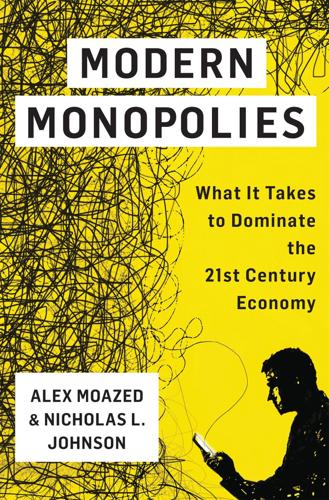
Modern Monopolies: What It Takes to Dominate the 21st Century Economy
by Alex Moazed and Nicholas L. Johnson · 30 May 2016 · 324pp · 89,875 words
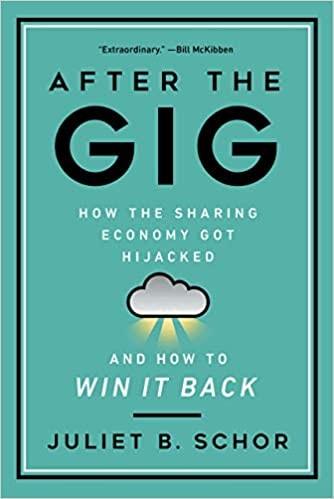
After the Gig: How the Sharing Economy Got Hijacked and How to Win It Back
by Juliet Schor, William Attwood-Charles and Mehmet Cansoy · 15 Mar 2020 · 296pp · 83,254 words
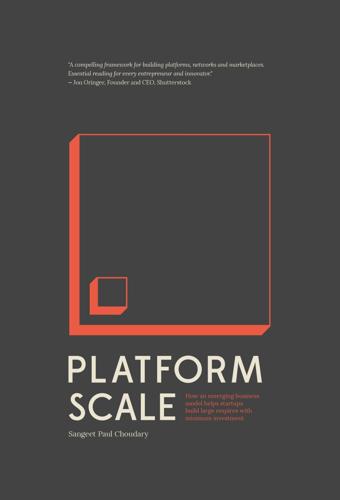
Platform Scale: How an Emerging Business Model Helps Startups Build Large Empires With Minimum Investment
by Sangeet Paul Choudary · 14 Sep 2015 · 302pp · 73,581 words
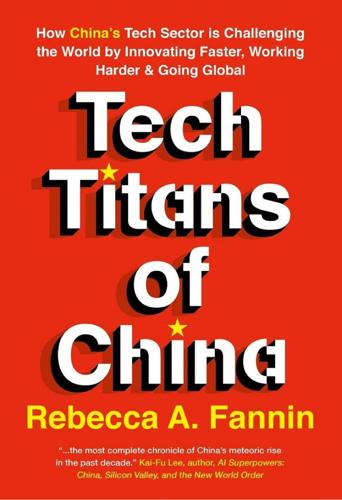
Tech Titans of China: How China's Tech Sector Is Challenging the World by Innovating Faster, Working Harder, and Going Global
by Rebecca Fannin · 2 Sep 2019 · 269pp · 70,543 words
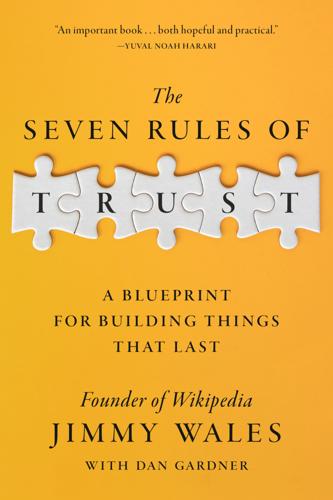
The Seven Rules of Trust: A Blueprint for Building Things That Last
by Jimmy Wales · 28 Oct 2025 · 216pp · 60,419 words
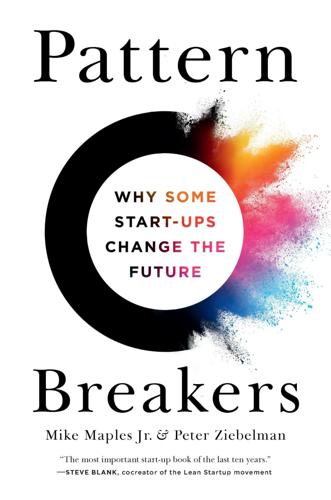
Pattern Breakers: Why Some Start-Ups Change the Future
by Mike Maples and Peter Ziebelman · 8 Jul 2024 · 207pp · 65,156 words

The Launch Pad: Inside Y Combinator, Silicon Valley's Most Exclusive School for Startups
by Randall Stross · 4 Sep 2013 · 332pp · 97,325 words
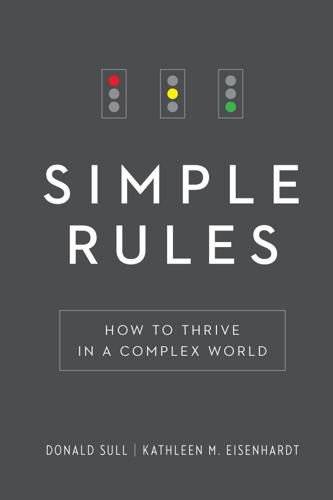
Simple Rules: How to Thrive in a Complex World
by Donald Sull and Kathleen M. Eisenhardt · 20 Apr 2015 · 294pp · 82,438 words
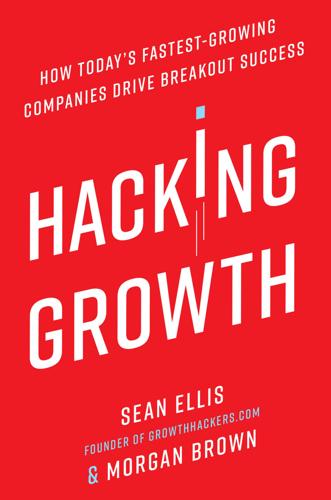
Hacking Growth: How Today's Fastest-Growing Companies Drive Breakout Success
by Sean Ellis and Morgan Brown · 24 Apr 2017 · 344pp · 96,020 words
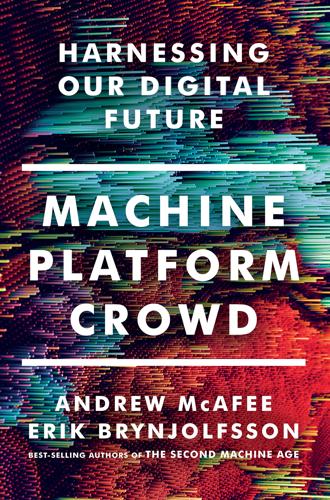
Machine, Platform, Crowd: Harnessing Our Digital Future
by Andrew McAfee and Erik Brynjolfsson · 26 Jun 2017 · 472pp · 117,093 words
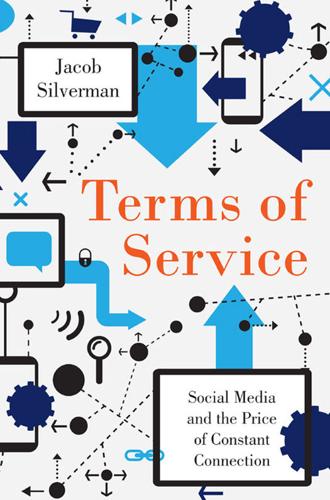
Terms of Service: Social Media and the Price of Constant Connection
by Jacob Silverman · 17 Mar 2015 · 527pp · 147,690 words
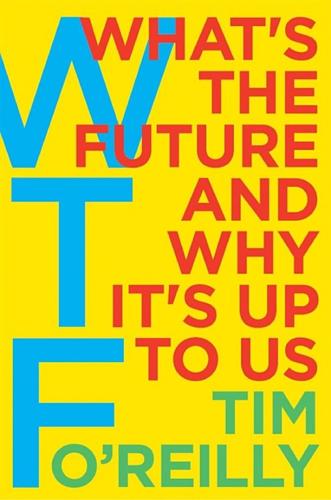
WTF?: What's the Future and Why It's Up to Us
by Tim O'Reilly · 9 Oct 2017 · 561pp · 157,589 words
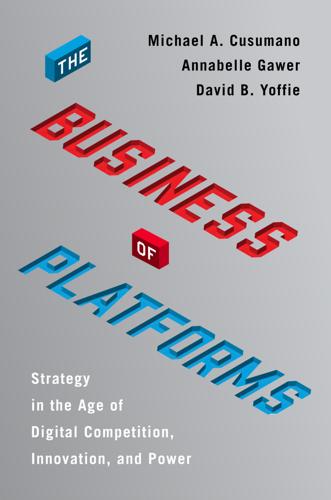
The Business of Platforms: Strategy in the Age of Digital Competition, Innovation, and Power
by Michael A. Cusumano, Annabelle Gawer and David B. Yoffie · 6 May 2019 · 328pp · 84,682 words
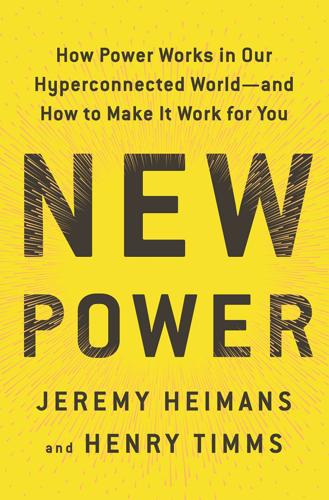
New Power: How Power Works in Our Hyperconnected World--And How to Make It Work for You
by Jeremy Heimans and Henry Timms · 2 Apr 2018 · 416pp · 100,130 words
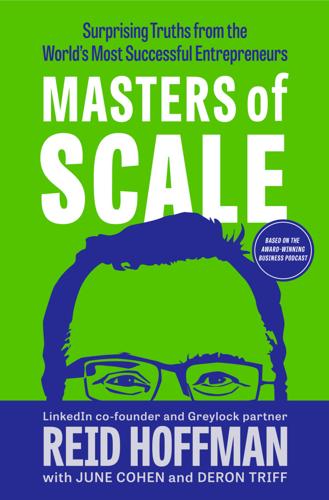
Masters of Scale: Surprising Truths From the World's Most Successful Entrepreneurs
by Reid Hoffman, June Cohen and Deron Triff · 14 Oct 2021 · 309pp · 96,168 words
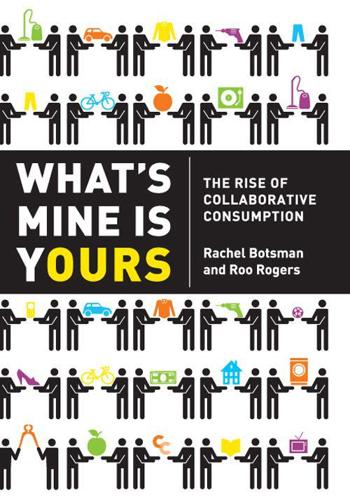
What's Mine Is Yours: How Collaborative Consumption Is Changing the Way We Live
by Rachel Botsman and Roo Rogers · 2 Jan 2010 · 411pp · 80,925 words
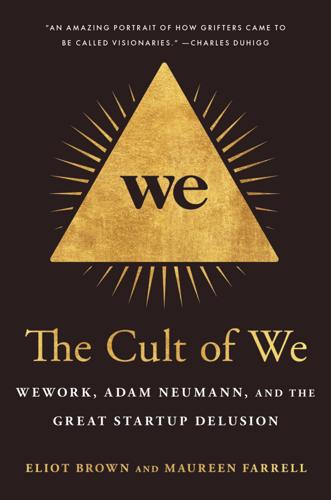
The Cult of We: WeWork, Adam Neumann, and the Great Startup Delusion
by Eliot Brown and Maureen Farrell · 19 Jul 2021 · 460pp · 130,820 words
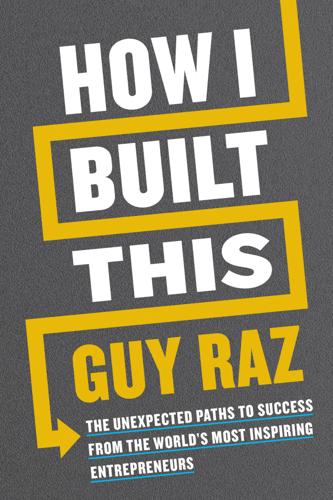
How I Built This: The Unexpected Paths to Success From the World's Most Inspiring Entrepreneurs
by Guy Raz · 14 Sep 2020 · 361pp · 107,461 words

Sunbelt Blues: The Failure of American Housing
by Andrew Ross · 25 Oct 2021 · 301pp · 90,276 words

Filterworld: How Algorithms Flattened Culture
by Kyle Chayka · 15 Jan 2024 · 321pp · 105,480 words
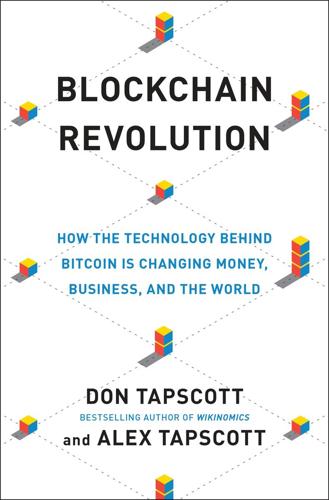
Blockchain Revolution: How the Technology Behind Bitcoin Is Changing Money, Business, and the World
by Don Tapscott and Alex Tapscott · 9 May 2016 · 515pp · 126,820 words
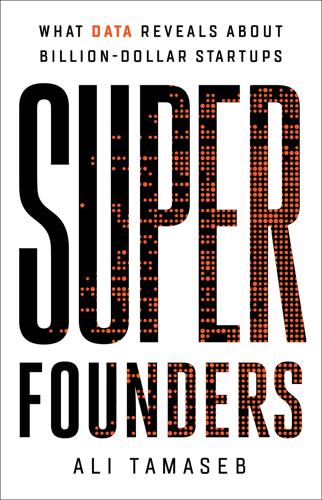
Super Founders: What Data Reveals About Billion-Dollar Startups
by Ali Tamaseb · 14 Sep 2021 · 251pp · 80,831 words

Winners Take All: The Elite Charade of Changing the World
by Anand Giridharadas · 27 Aug 2018 · 296pp · 98,018 words
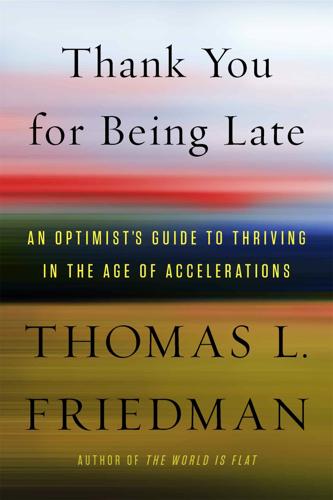
Thank You for Being Late: An Optimist's Guide to Thriving in the Age of Accelerations
by Thomas L. Friedman · 22 Nov 2016 · 602pp · 177,874 words
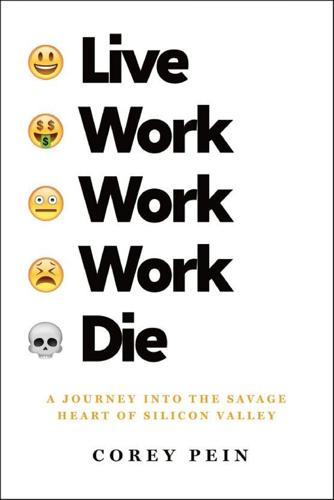
Live Work Work Work Die: A Journey Into the Savage Heart of Silicon Valley
by Corey Pein · 23 Apr 2018 · 282pp · 81,873 words
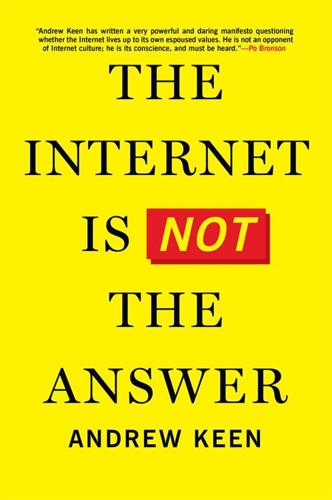
The Internet Is Not the Answer
by Andrew Keen · 5 Jan 2015 · 361pp · 81,068 words
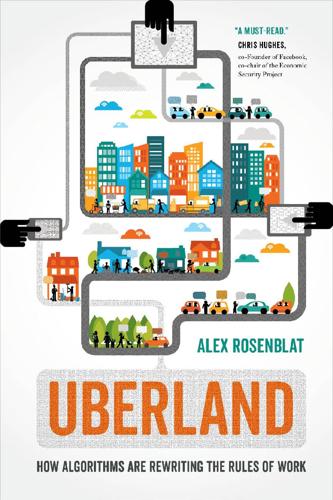
Uberland: How Algorithms Are Rewriting the Rules of Work
by Alex Rosenblat · 22 Oct 2018 · 343pp · 91,080 words
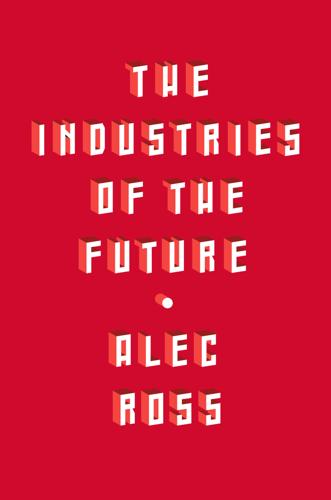
The Industries of the Future
by Alec Ross · 2 Feb 2016 · 364pp · 99,897 words
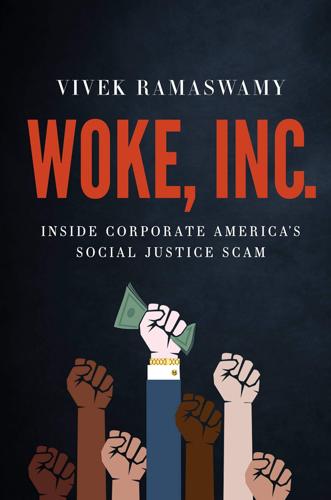
Woke, Inc: Inside Corporate America's Social Justice Scam
by Vivek Ramaswamy · 16 Aug 2021 · 344pp · 104,522 words
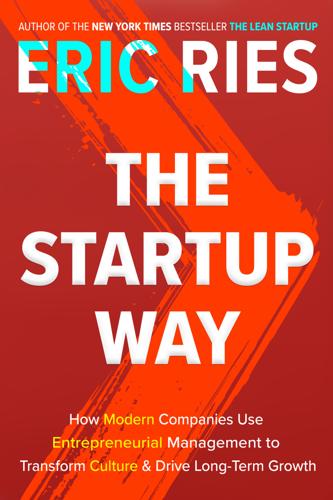
The Startup Way: Making Entrepreneurship a Fundamental Discipline of Every Enterprise
by Eric Ries · 15 Mar 2017 · 406pp · 105,602 words
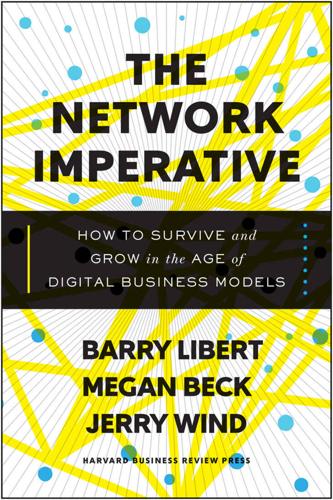
The Network Imperative: How to Survive and Grow in the Age of Digital Business Models
by Barry Libert and Megan Beck · 6 Jun 2016 · 285pp · 58,517 words
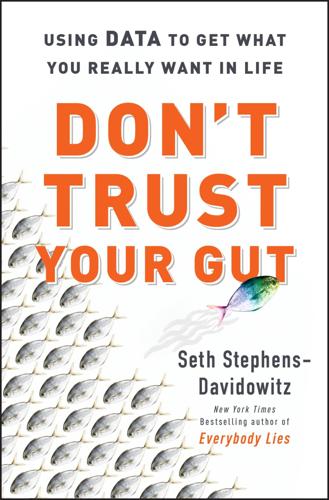
Don't Trust Your Gut: Using Data to Get What You Really Want in LIfe
by Seth Stephens-Davidowitz · 9 May 2022 · 287pp · 69,655 words
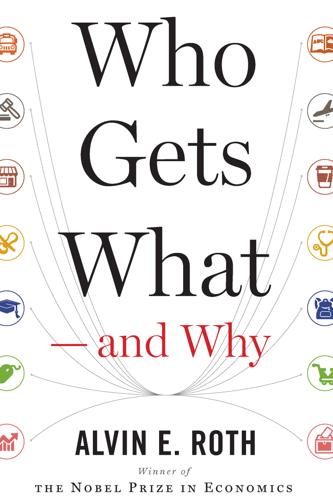
Who Gets What — and Why: The New Economics of Matchmaking and Market Design
by Alvin E. Roth · 1 Jun 2015 · 282pp · 80,907 words
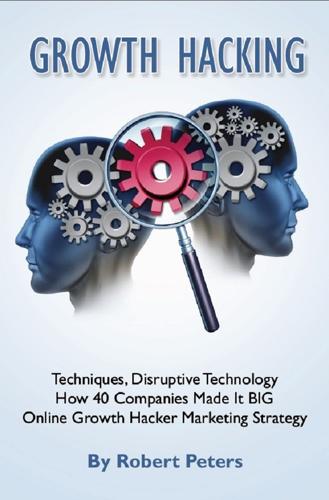
Growth Hacking Techniques, Disruptive Technology - How 40 Companies Made It BIG – Online Growth Hacker Marketing Strategy
by Robert Peters · 18 May 2014 · 125pp · 28,222 words
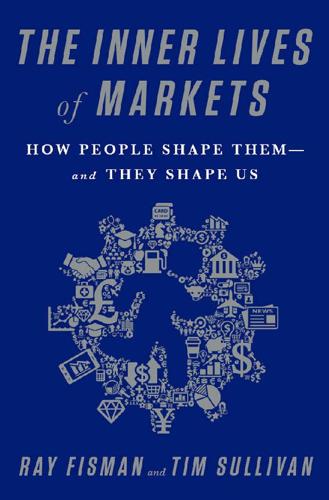
The Inner Lives of Markets: How People Shape Them—And They Shape Us
by Tim Sullivan · 6 Jun 2016 · 252pp · 73,131 words
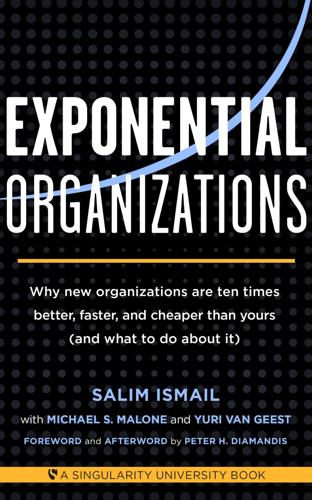
Exponential Organizations: Why New Organizations Are Ten Times Better, Faster, and Cheaper Than Yours (And What to Do About It)
by Salim Ismail and Yuri van Geest · 17 Oct 2014 · 292pp · 85,151 words
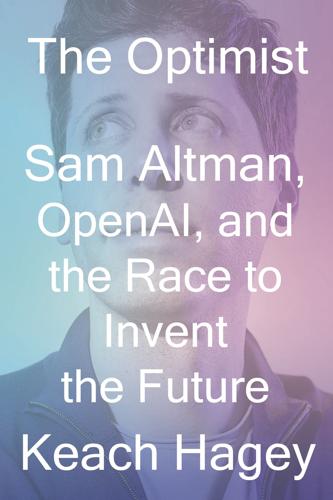
The Optimist: Sam Altman, OpenAI, and the Race to Invent the Future
by Keach Hagey · 19 May 2025 · 439pp · 125,379 words
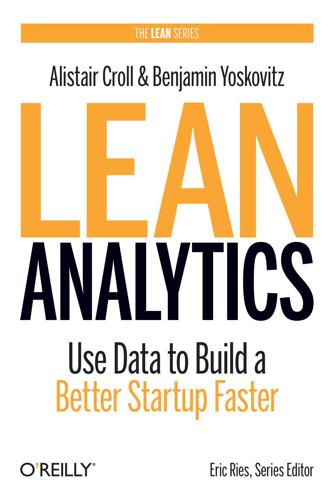
Lean Analytics: Use Data to Build a Better Startup Faster
by Alistair Croll and Benjamin Yoskovitz · 1 Mar 2013 · 567pp · 122,311 words
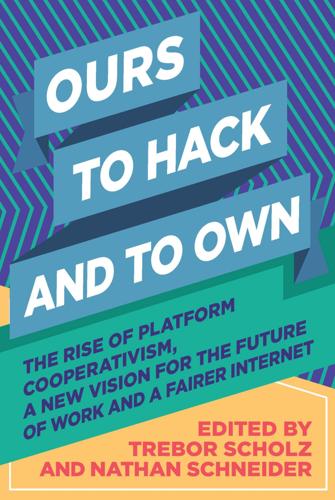
Ours to Hack and to Own: The Rise of Platform Cooperativism, a New Vision for the Future of Work and a Fairer Internet
by Trebor Scholz and Nathan Schneider · 14 Aug 2017 · 237pp · 67,154 words
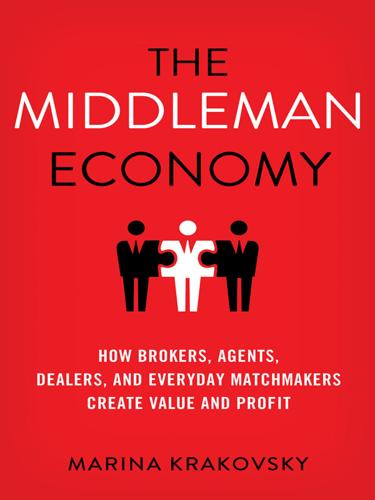
The Middleman Economy: How Brokers, Agents, Dealers, and Everyday Matchmakers Create Value and Profit
by Marina Krakovsky · 14 Sep 2015 · 270pp · 79,180 words
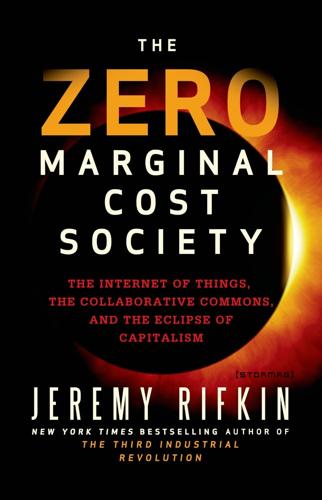
The Zero Marginal Cost Society: The Internet of Things, the Collaborative Commons, and the Eclipse of Capitalism
by Jeremy Rifkin · 31 Mar 2014 · 565pp · 151,129 words
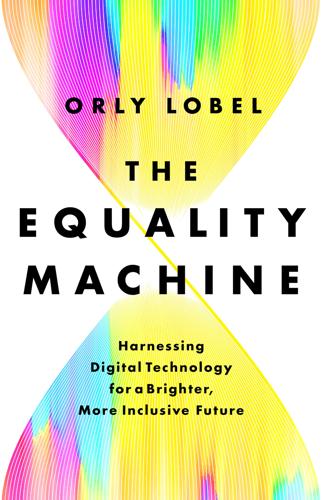
The Equality Machine: Harnessing Digital Technology for a Brighter, More Inclusive Future
by Orly Lobel · 17 Oct 2022 · 370pp · 112,809 words

Collaborative Society
by Dariusz Jemielniak and Aleksandra Przegalinska · 18 Feb 2020 · 187pp · 50,083 words

Hawaii Travel Guide
by Lonely Planet
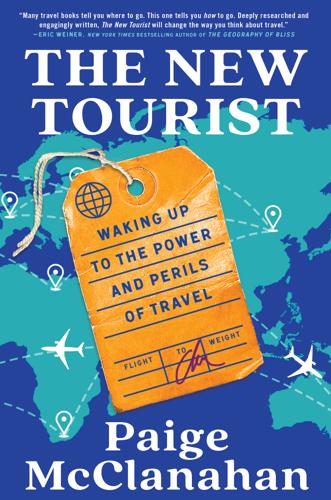
The New Tourist: Waking Up to the Power and Perils of Travel
by Paige McClanahan · 17 Jun 2024 · 206pp · 78,882 words
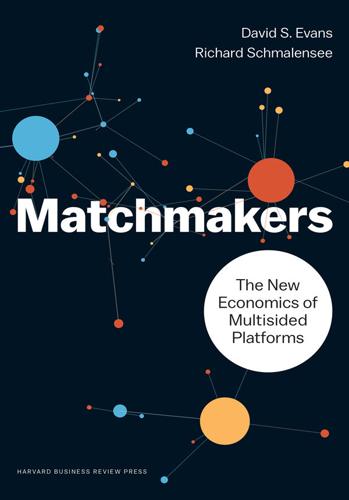
Matchmakers: The New Economics of Multisided Platforms
by David S. Evans and Richard Schmalensee · 23 May 2016 · 383pp · 81,118 words
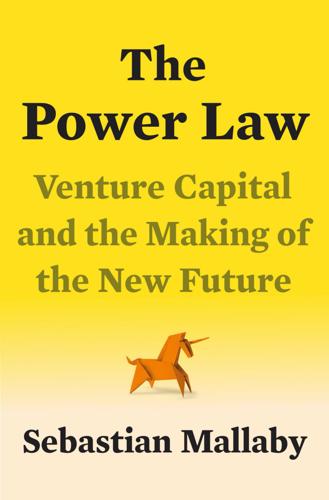
The Power Law: Venture Capital and the Making of the New Future
by Sebastian Mallaby · 1 Feb 2022 · 935pp · 197,338 words
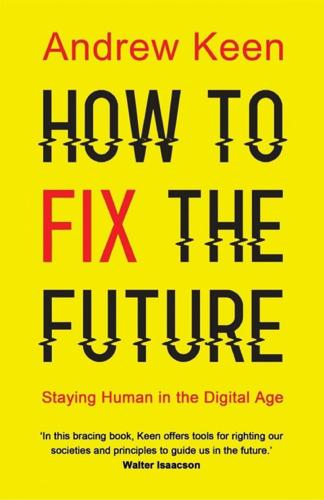
How to Fix the Future: Staying Human in the Digital Age
by Andrew Keen · 1 Mar 2018 · 308pp · 85,880 words
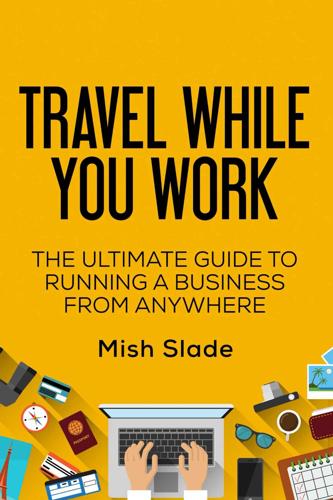
Travel While You Work: The Ultimate Guide to Running a Business From Anywhere
by Mish Slade · 13 Aug 2015 · 288pp · 66,996 words
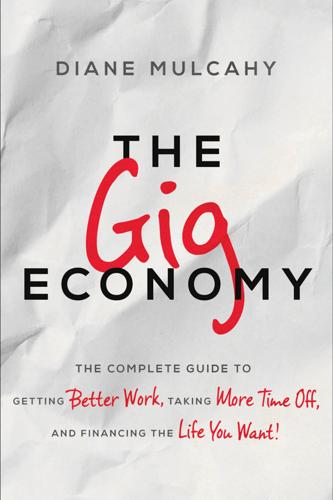
The Gig Economy: The Complete Guide to Getting Better Work, Taking More Time Off, and Financing the Life You Want
by Diane Mulcahy · 8 Nov 2016 · 229pp · 61,482 words
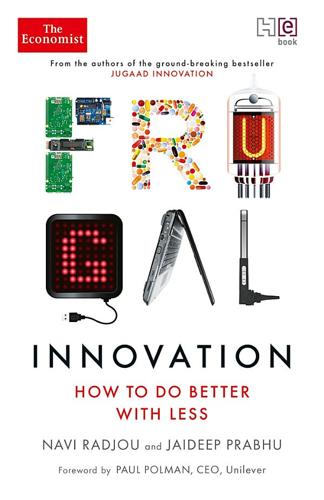
Frugal Innovation: How to Do Better With Less
by Jaideep Prabhu Navi Radjou · 15 Feb 2015 · 400pp · 88,647 words
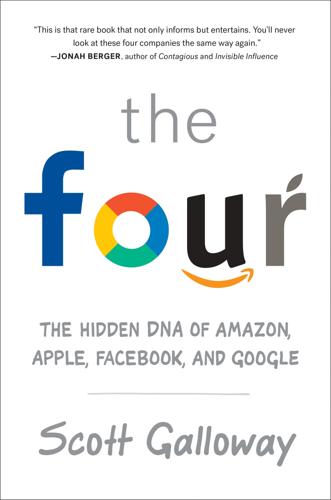
The Four: How Amazon, Apple, Facebook, and Google Divided and Conquered the World
by Scott Galloway · 2 Oct 2017 · 305pp · 79,303 words
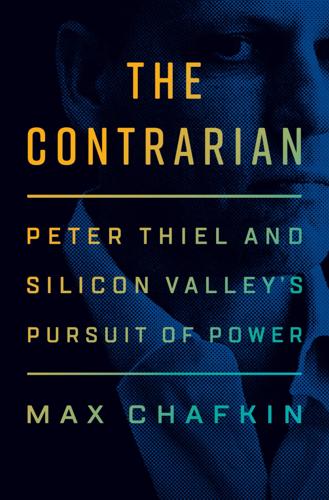
The Contrarian: Peter Thiel and Silicon Valley's Pursuit of Power
by Max Chafkin · 14 Sep 2021 · 524pp · 130,909 words
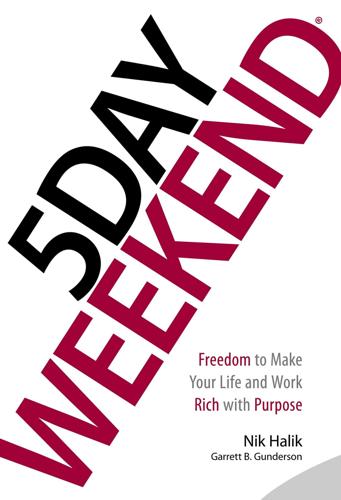
5 Day Weekend: Freedom to Make Your Life and Work Rich With Purpose
by Nik Halik and Garrett B. Gunderson · 5 Mar 2018 · 290pp · 72,046 words
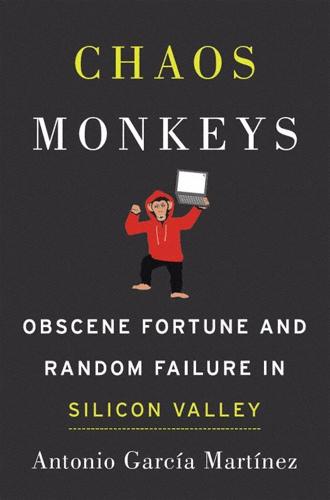
Chaos Monkeys: Obscene Fortune and Random Failure in Silicon Valley
by Antonio Garcia Martinez · 27 Jun 2016 · 559pp · 155,372 words

A More Beautiful Question: The Power of Inquiry to Spark Breakthrough Ideas
by Warren Berger · 4 Mar 2014 · 374pp · 89,725 words
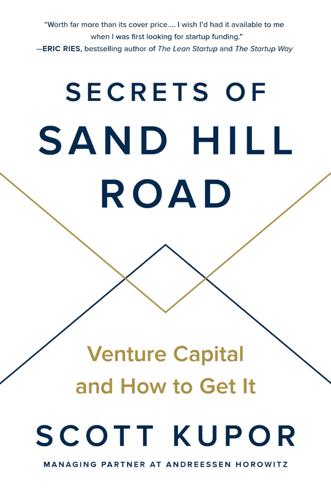
Secrets of Sand Hill Road: Venture Capital and How to Get It
by Scott Kupor · 3 Jun 2019 · 340pp · 100,151 words
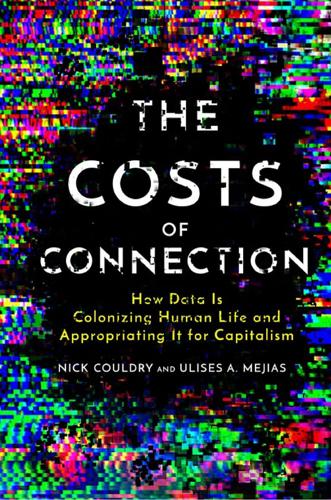
The Costs of Connection: How Data Is Colonizing Human Life and Appropriating It for Capitalism
by Nick Couldry and Ulises A. Mejias · 19 Aug 2019 · 458pp · 116,832 words
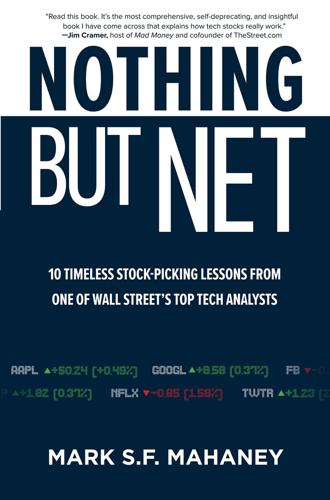
Nothing but Net: 10 Timeless Stock-Picking Lessons From One of Wall Street’s Top Tech Analysts
by Mark Mahaney · 9 Nov 2021 · 311pp · 90,172 words
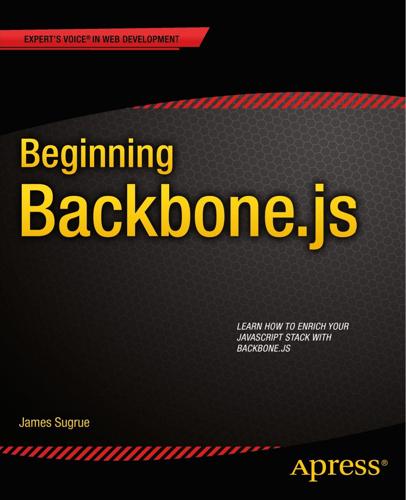
Beginning Backbone.js
by James Sugrue · 15 Dec 2013 · 290pp · 119,172 words
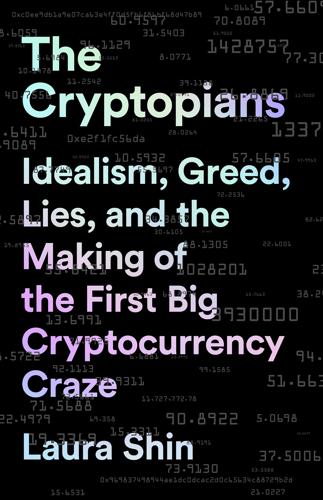
The Cryptopians: Idealism, Greed, Lies, and the Making of the First Big Cryptocurrency Craze
by Laura Shin · 22 Feb 2022 · 506pp · 151,753 words
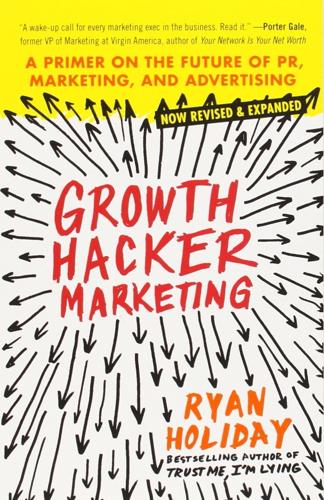
Growth Hacker Marketing: A Primer on the Future of PR, Marketing, and Advertising
by Ryan Holiday · 2 Sep 2013 · 52pp · 14,333 words
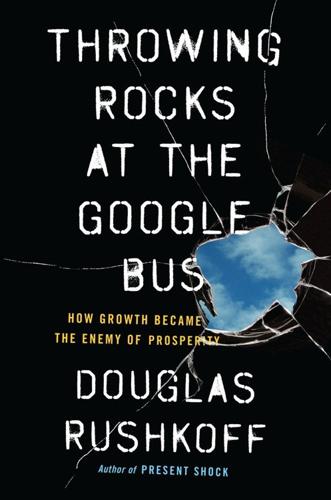
Throwing Rocks at the Google Bus: How Growth Became the Enemy of Prosperity
by Douglas Rushkoff · 1 Mar 2016 · 366pp · 94,209 words

The End of Ownership: Personal Property in the Digital Economy
by Aaron Perzanowski and Jason Schultz · 4 Nov 2016 · 374pp · 97,288 words
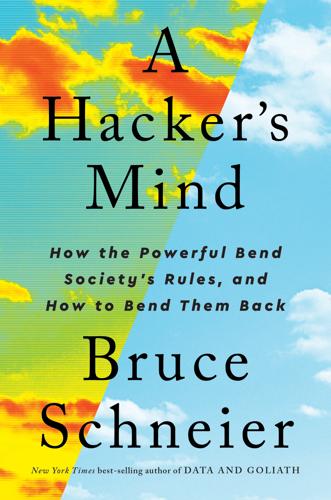
A Hacker's Mind: How the Powerful Bend Society's Rules, and How to Bend Them Back
by Bruce Schneier · 7 Feb 2023 · 306pp · 82,909 words
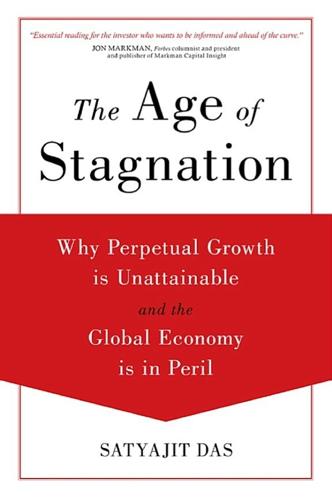
The Age of Stagnation: Why Perpetual Growth Is Unattainable and the Global Economy Is in Peril
by Satyajit Das · 9 Feb 2016 · 327pp · 90,542 words
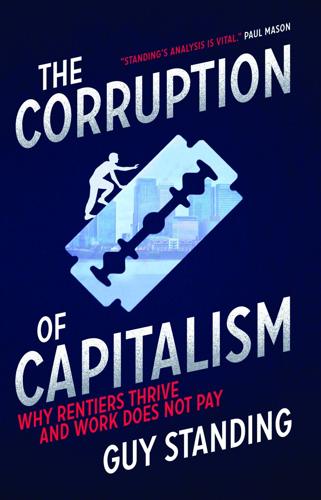
The Corruption of Capitalism: Why Rentiers Thrive and Work Does Not Pay
by Guy Standing · 13 Jul 2016 · 443pp · 98,113 words

Perfect Sound Whatever
by James. Acaster · 21 Aug 2019 · 247pp · 86,844 words
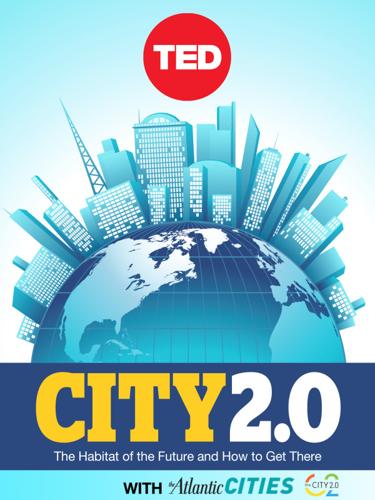
City 2.0: The Habitat of the Future and How to Get There
by Ted Books · 20 Feb 2013 · 83pp · 23,805 words
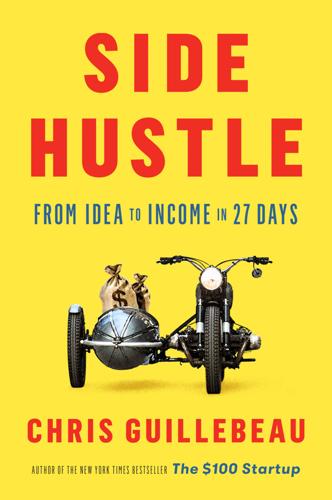
Side Hustle: From Idea to Income in 27 Days
by Chris Guillebeau · 18 Sep 2017 · 206pp · 60,587 words
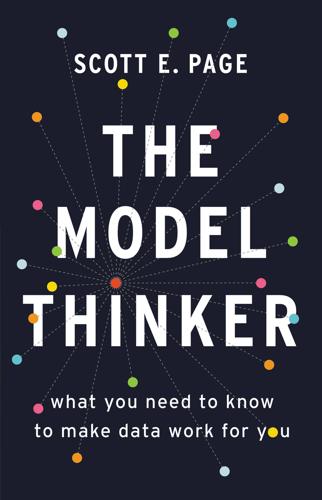
Model Thinker: What You Need to Know to Make Data Work for You
by Scott E. Page · 27 Nov 2018 · 543pp · 153,550 words
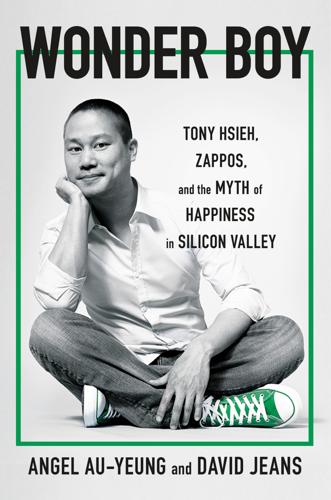
Wonder Boy: Tony Hsieh, Zappos, and the Myth of Happiness in Silicon Valley
by Angel Au-Yeung and David Jeans · 25 Apr 2023 · 427pp · 134,098 words
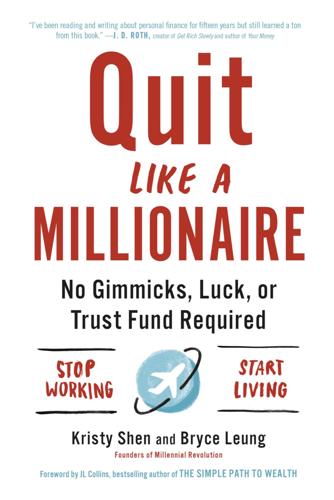
Quit Like a Millionaire: No Gimmicks, Luck, or Trust Fund Required
by Kristy Shen and Bryce Leung · 8 Jul 2019 · 389pp · 81,596 words
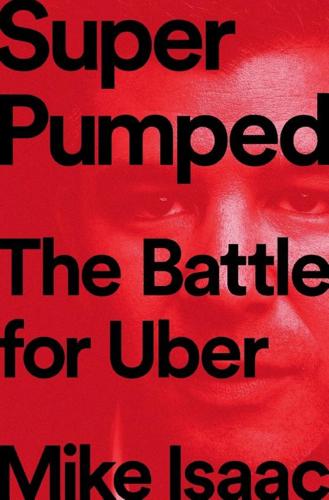
Super Pumped: The Battle for Uber
by Mike Isaac · 2 Sep 2019 · 444pp · 127,259 words
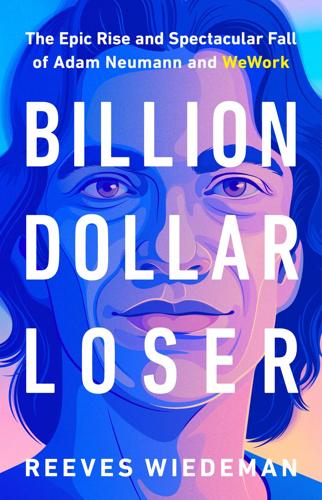
Billion Dollar Loser: The Epic Rise and Spectacular Fall of Adam Neumann and WeWork
by Reeves Wiedeman · 19 Oct 2020 · 303pp · 100,516 words
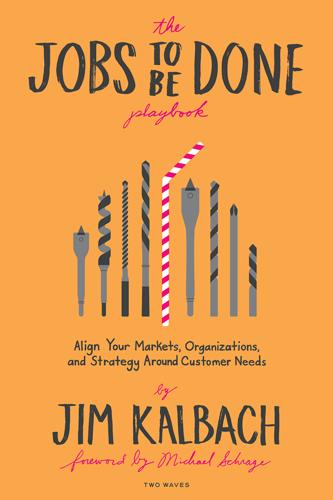
The Jobs to Be Done Playbook: Align Your Markets, Organization, and Strategy Around Customer Needs
by Jim Kalbach · 6 Apr 2020

Rentier Capitalism: Who Owns the Economy, and Who Pays for It?
by Brett Christophers · 17 Nov 2020 · 614pp · 168,545 words
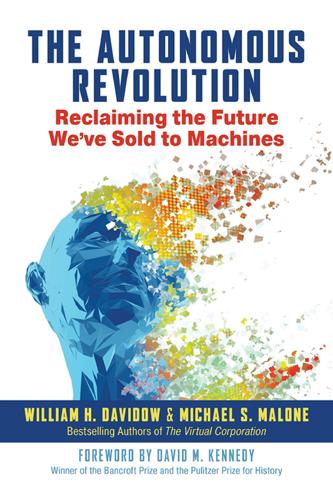
The Autonomous Revolution: Reclaiming the Future We’ve Sold to Machines
by William Davidow and Michael Malone · 18 Feb 2020 · 304pp · 80,143 words
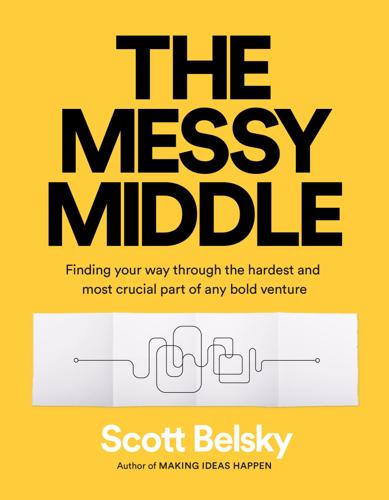
The Messy Middle: Finding Your Way Through the Hardest and Most Crucial Part of Any Bold Venture
by Scott Belsky · 1 Oct 2018 · 425pp · 112,220 words
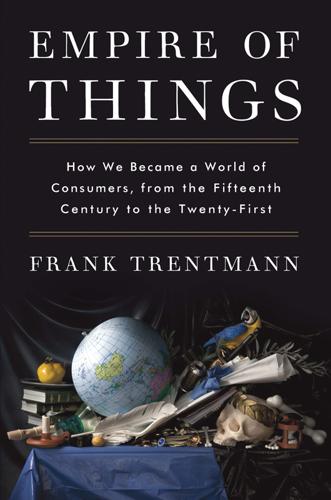
Empire of Things: How We Became a World of Consumers, From the Fifteenth Century to the Twenty-First
by Frank Trentmann · 1 Dec 2015 · 1,213pp · 376,284 words
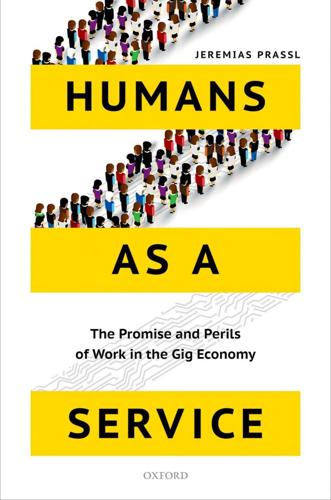
Humans as a Service: The Promise and Perils of Work in the Gig Economy
by Jeremias Prassl · 7 May 2018 · 491pp · 77,650 words

The Lonely Century: How Isolation Imperils Our Future
by Noreena Hertz · 13 May 2020 · 506pp · 133,134 words
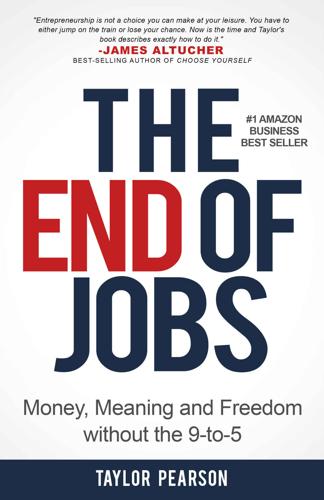
The End of Jobs: Money, Meaning and Freedom Without the 9-To-5
by Taylor Pearson · 27 Jun 2015 · 168pp · 50,647 words
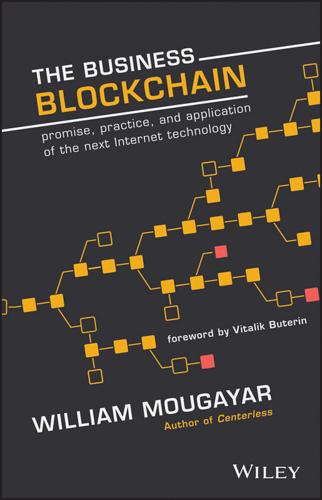
The Business Blockchain: Promise, Practice, and Application of the Next Internet Technology
by William Mougayar · 25 Apr 2016 · 161pp · 44,488 words
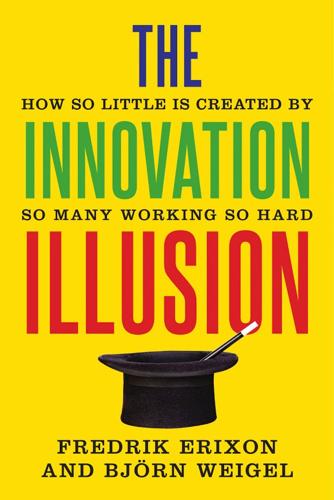
The Innovation Illusion: How So Little Is Created by So Many Working So Hard
by Fredrik Erixon and Bjorn Weigel · 3 Oct 2016 · 504pp · 126,835 words
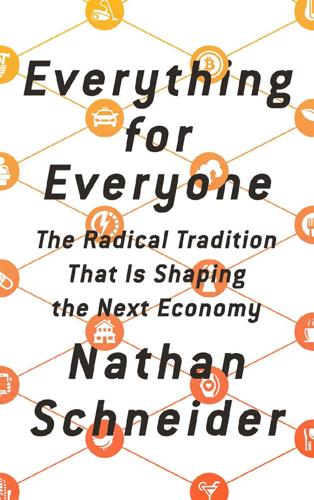
Everything for Everyone: The Radical Tradition That Is Shaping the Next Economy
by Nathan Schneider · 10 Sep 2018 · 326pp · 91,559 words
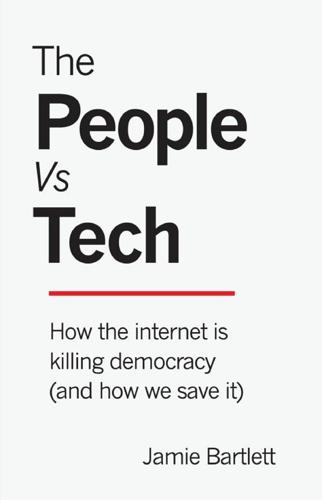
The People vs Tech: How the Internet Is Killing Democracy (And How We Save It)
by Jamie Bartlett · 4 Apr 2018 · 170pp · 49,193 words
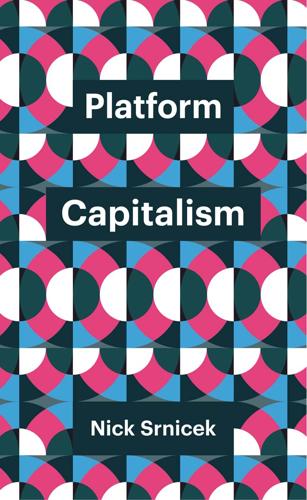
Platform Capitalism
by Nick Srnicek · 22 Dec 2016 · 116pp · 31,356 words
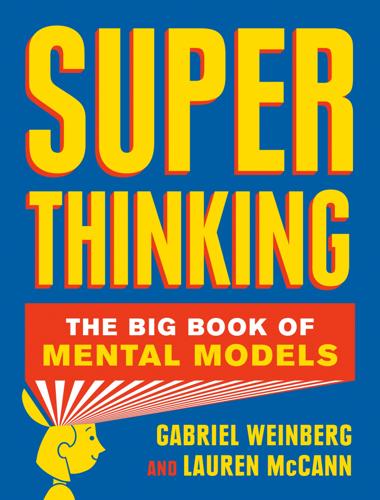
Super Thinking: The Big Book of Mental Models
by Gabriel Weinberg and Lauren McCann · 17 Jun 2019
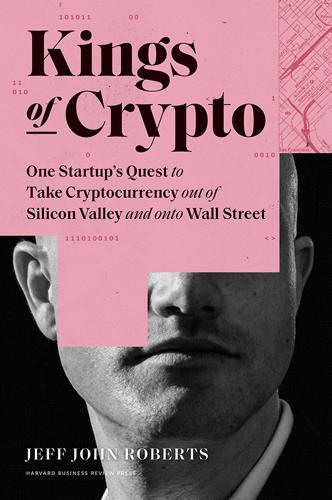
Kings of Crypto: One Startup's Quest to Take Cryptocurrency Out of Silicon Valley and Onto Wall Street
by Jeff John Roberts · 15 Dec 2020 · 226pp · 65,516 words
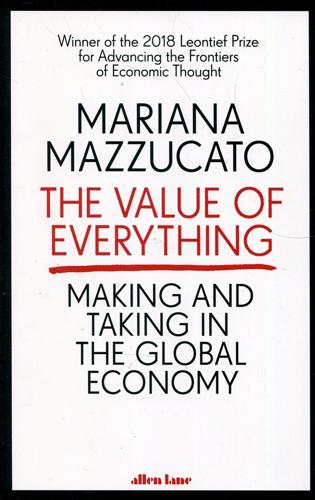
Value of Everything: An Antidote to Chaos The
by Mariana Mazzucato · 25 Apr 2018 · 457pp · 125,329 words
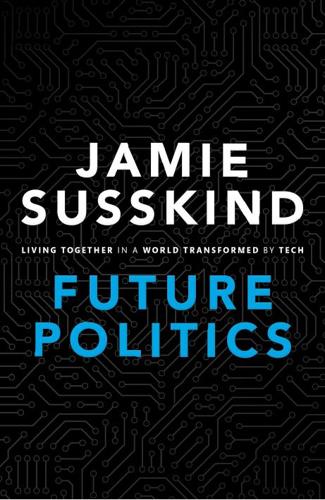
Future Politics: Living Together in a World Transformed by Tech
by Jamie Susskind · 3 Sep 2018 · 533pp

The Rough Guide to Australia (Travel Guide eBook)
by Rough Guides · 14 Oct 2023 · 1,955pp · 521,661 words
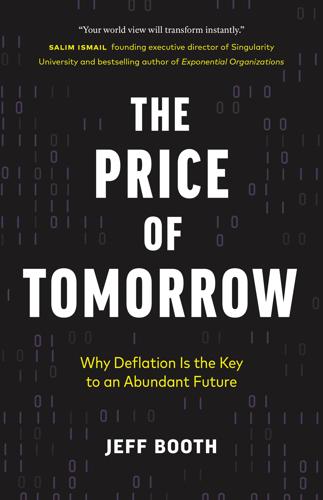
The Price of Tomorrow: Why Deflation Is the Key to an Abundant Future
by Jeff Booth · 14 Jan 2020 · 180pp · 55,805 words
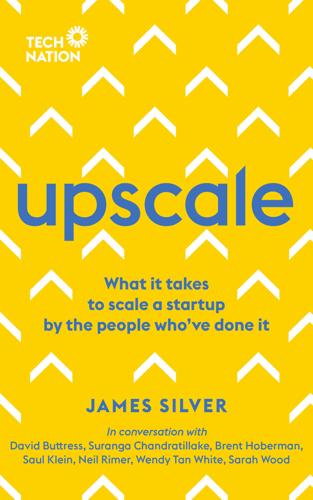
Upscale: What It Takes to Scale a Startup. By the People Who've Done It.
by James Silver · 15 Nov 2018 · 291pp · 90,771 words
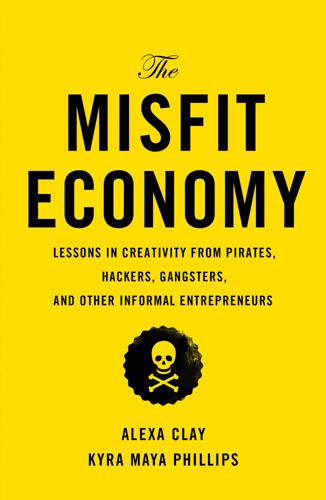
The Misfit Economy: Lessons in Creativity From Pirates, Hackers, Gangsters and Other Informal Entrepreneurs
by Alexa Clay and Kyra Maya Phillips · 23 Jun 2015 · 210pp · 56,667 words

The Infinite Machine: How an Army of Crypto-Hackers Is Building the Next Internet With Ethereum
by Camila Russo · 13 Jul 2020 · 349pp · 102,827 words
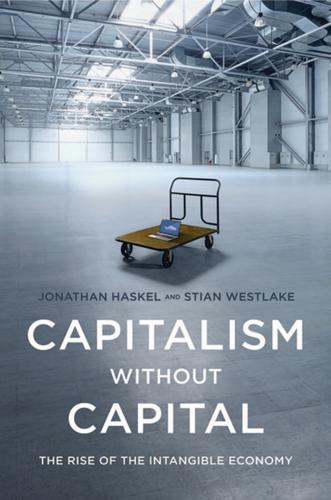
Capitalism Without Capital: The Rise of the Intangible Economy
by Jonathan Haskel and Stian Westlake · 7 Nov 2017 · 346pp · 89,180 words

Without Their Permission: How the 21st Century Will Be Made, Not Managed
by Alexis Ohanian · 30 Sep 2013 · 216pp · 61,061 words

Brotopia: Breaking Up the Boys' Club of Silicon Valley
by Emily Chang · 6 Feb 2018 · 334pp · 104,382 words
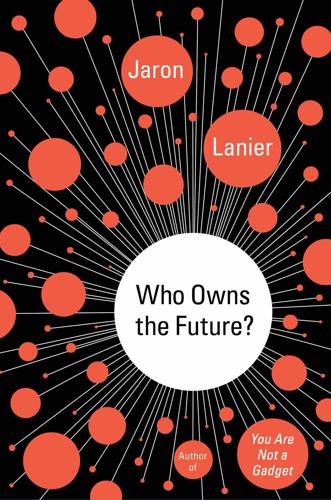
Who Owns the Future?
by Jaron Lanier · 6 May 2013 · 510pp · 120,048 words
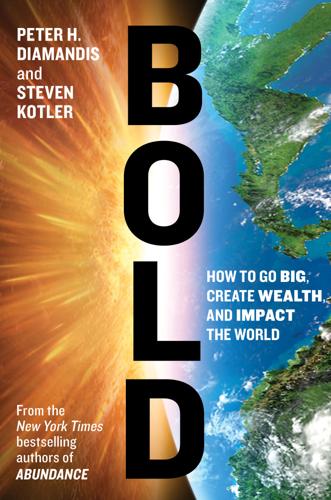
Bold: How to Go Big, Create Wealth and Impact the World
by Peter H. Diamandis and Steven Kotler · 3 Feb 2015 · 368pp · 96,825 words
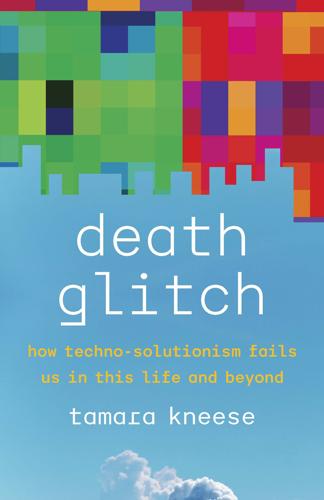
Death Glitch: How Techno-Solutionism Fails Us in This Life and Beyond
by Tamara Kneese · 14 Aug 2023 · 284pp · 75,744 words
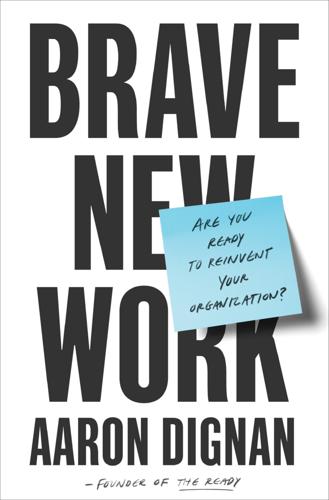
Brave New Work: Are You Ready to Reinvent Your Organization?
by Aaron Dignan · 1 Feb 2019 · 309pp · 81,975 words

Your Face Belongs to Us: A Secretive Startup's Quest to End Privacy as We Know It
by Kashmir Hill · 19 Sep 2023 · 487pp · 124,008 words

Palo Alto: A History of California, Capitalism, and the World
by Malcolm Harris · 14 Feb 2023 · 864pp · 272,918 words

Vassal State
by Angus Hanton · 25 Mar 2024 · 277pp · 81,718 words
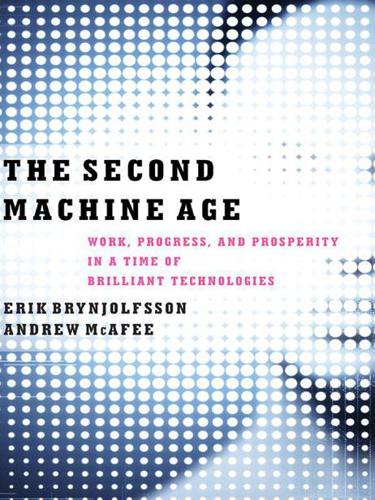
The Second Machine Age: Work, Progress, and Prosperity in a Time of Brilliant Technologies
by Erik Brynjolfsson and Andrew McAfee · 20 Jan 2014 · 339pp · 88,732 words
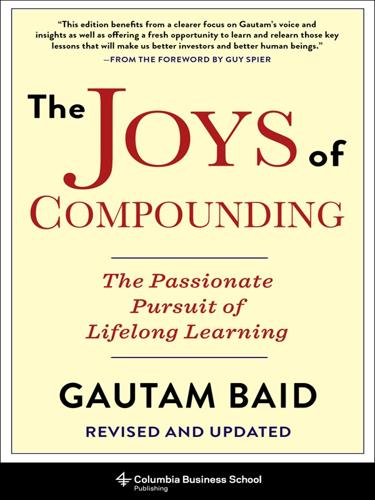
The Joys of Compounding: The Passionate Pursuit of Lifelong Learning, Revised and Updated
by Gautam Baid · 1 Jun 2020 · 1,239pp · 163,625 words
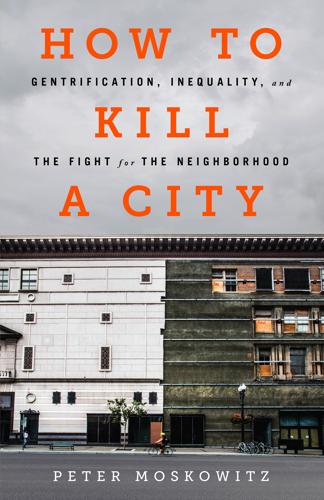
How to Kill a City: The Real Story of Gentrification
by Peter Moskowitz · 7 Mar 2017 · 288pp · 83,690 words
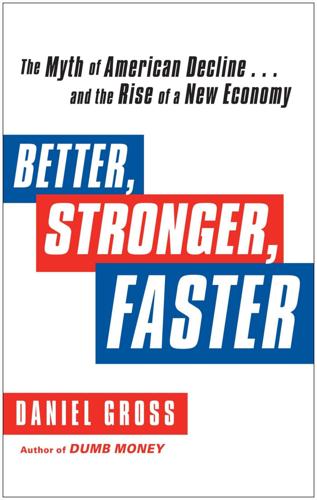
Better, Stronger, Faster: The Myth of American Decline . . . And the Rise of a New Economy
by Daniel Gross · 7 May 2012 · 391pp · 97,018 words
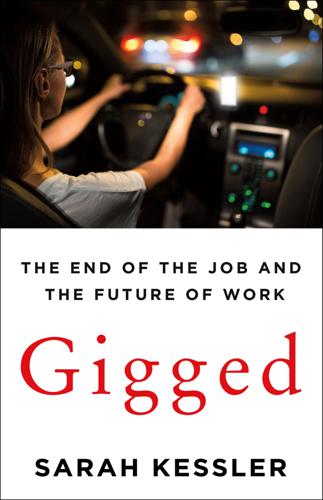
Gigged: The End of the Job and the Future of Work
by Sarah Kessler · 11 Jun 2018 · 246pp · 68,392 words
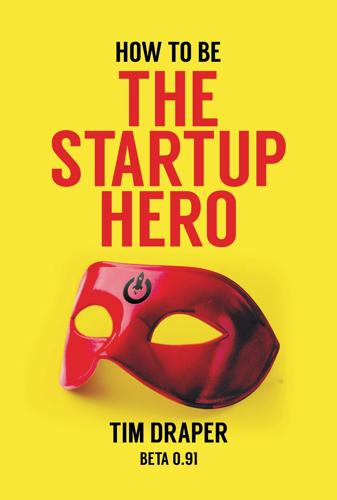
How to Be the Startup Hero: A Guide and Textbook for Entrepreneurs and Aspiring Entrepreneurs
by Tim Draper · 18 Dec 2017 · 302pp · 95,965 words
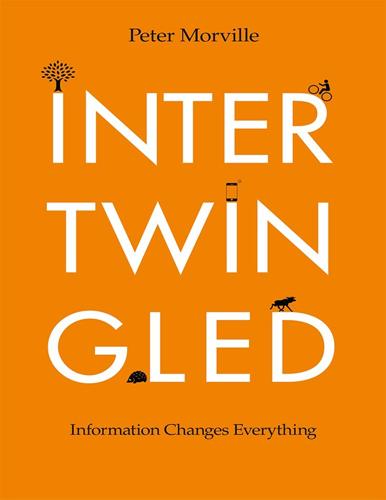
Intertwingled: Information Changes Everything
by Peter Morville · 14 May 2014 · 165pp · 50,798 words
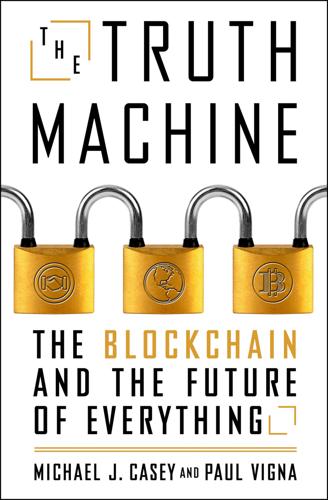
The Truth Machine: The Blockchain and the Future of Everything
by Paul Vigna and Michael J. Casey · 27 Feb 2018 · 348pp · 97,277 words
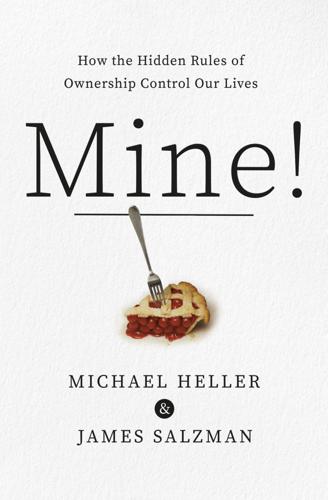
Mine!: How the Hidden Rules of Ownership Control Our Lives
by Michael A. Heller and James Salzman · 2 Mar 2021 · 332pp · 100,245 words
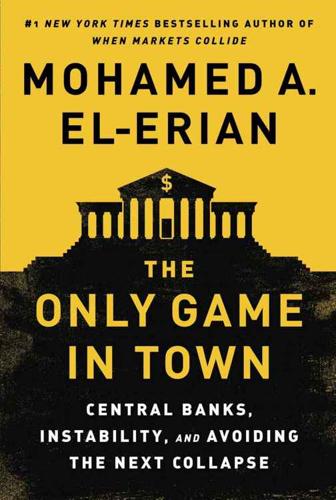
The Only Game in Town: Central Banks, Instability, and Avoiding the Next Collapse
by Mohamed A. El-Erian · 26 Jan 2016 · 318pp · 77,223 words

The Land of Hope and Fear: Israel's Battle for Its Inner Soul
by Isabel Kershner · 16 May 2023 · 472pp · 145,476 words

Empire of AI: Dreams and Nightmares in Sam Altman's OpenAI
by Karen Hao · 19 May 2025 · 660pp · 179,531 words
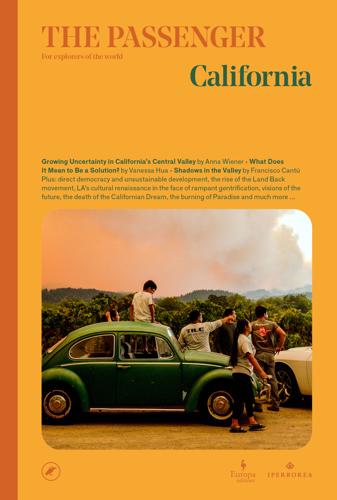
The Passenger
by AA.VV. · 23 May 2022 · 192pp · 59,615 words

Moon Mexico City: Neighborhood Walks, Food & Culture, Beloved Local Spots
by Julie Meade · 7 Aug 2023 · 527pp · 131,002 words

Lonely Planet Iceland (Travel Guide)
by Lonely Planet, Carolyn Bain and Alexis Averbuck · 31 Mar 2015

The Brussels Effect: How the European Union Rules the World
by Anu Bradford · 14 Sep 2020 · 696pp · 184,001 words
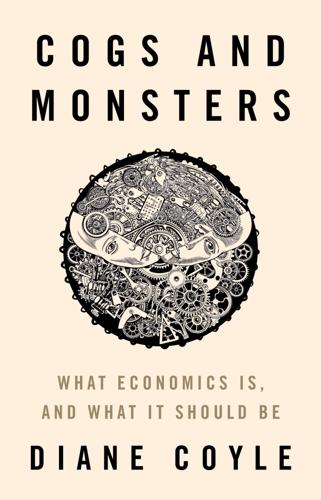
Cogs and Monsters: What Economics Is, and What It Should Be
by Diane Coyle · 11 Oct 2021 · 305pp · 75,697 words

Virtual Competition
by Ariel Ezrachi and Maurice E. Stucke · 30 Nov 2016
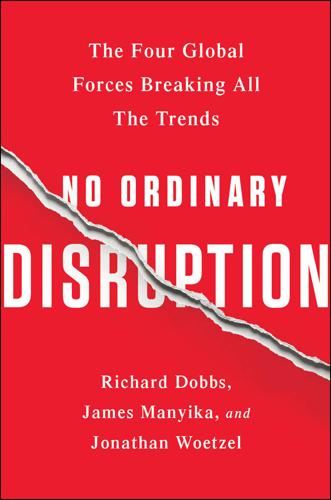
No Ordinary Disruption: The Four Global Forces Breaking All the Trends
by Richard Dobbs and James Manyika · 12 May 2015 · 389pp · 87,758 words
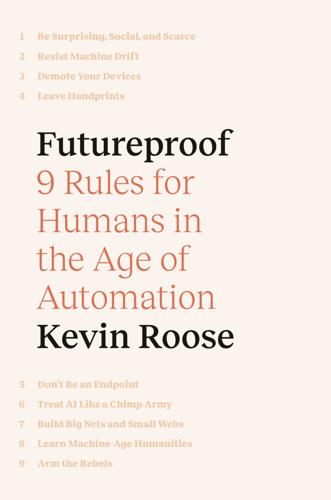
Futureproof: 9 Rules for Humans in the Age of Automation
by Kevin Roose · 9 Mar 2021 · 208pp · 57,602 words
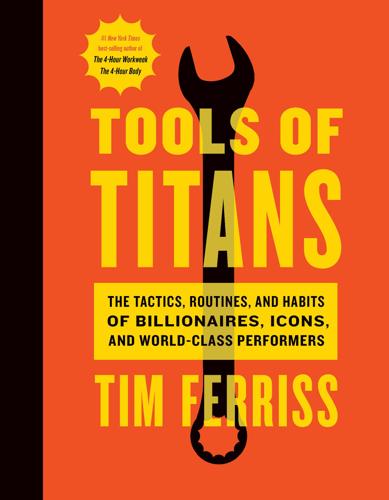
Tools of Titans: The Tactics, Routines, and Habits of Billionaires, Icons, and World-Class Performers
by Timothy Ferriss · 6 Dec 2016 · 669pp · 210,153 words
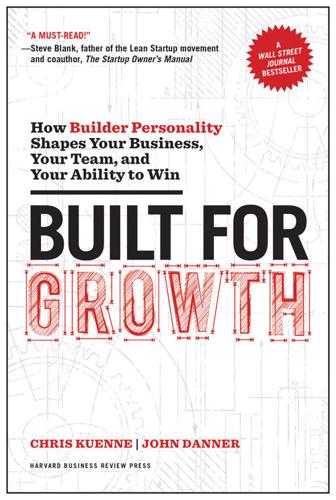
Built for Growth: How Builder Personality Shapes Your Business, Your Team, and Your Ability to Win
by Chris Kuenne and John Danner · 5 Jun 2017 · 276pp · 64,903 words
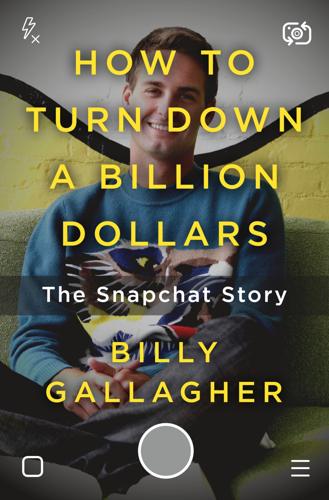
How to Turn Down a Billion Dollars: The Snapchat Story
by Billy Gallagher · 13 Feb 2018 · 359pp · 96,019 words
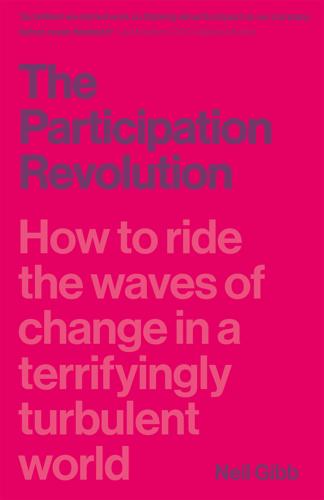
The Participation Revolution: How to Ride the Waves of Change in a Terrifyingly Turbulent World
by Neil Gibb · 15 Feb 2018 · 217pp · 63,287 words

Going Dark: The Secret Social Lives of Extremists
by Julia Ebner · 20 Feb 2020 · 309pp · 79,414 words
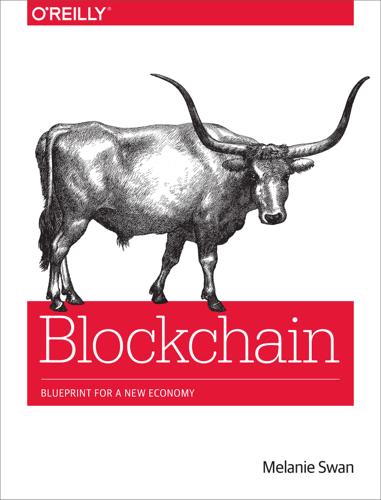
Blockchain: Blueprint for a New Economy
by Melanie Swan · 22 Jan 2014 · 271pp · 52,814 words
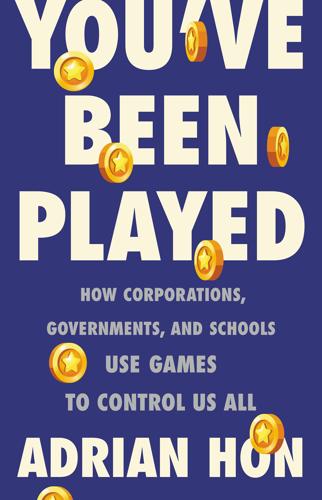
You've Been Played: How Corporations, Governments, and Schools Use Games to Control Us All
by Adrian Hon · 14 Sep 2022 · 371pp · 107,141 words
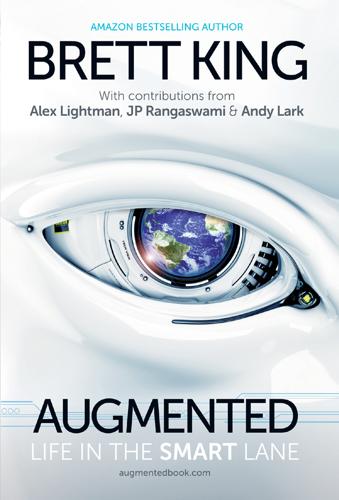
Augmented: Life in the Smart Lane
by Brett King · 5 May 2016 · 385pp · 111,113 words

The Smartphone Society
by Nicole Aschoff
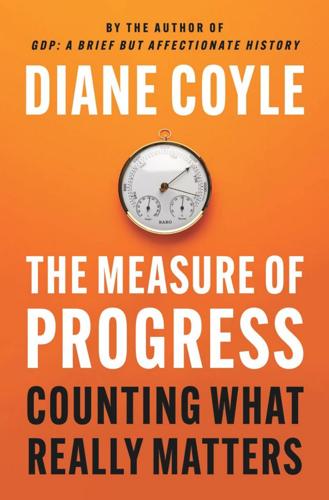
The Measure of Progress: Counting What Really Matters
by Diane Coyle · 15 Apr 2025 · 321pp · 112,477 words
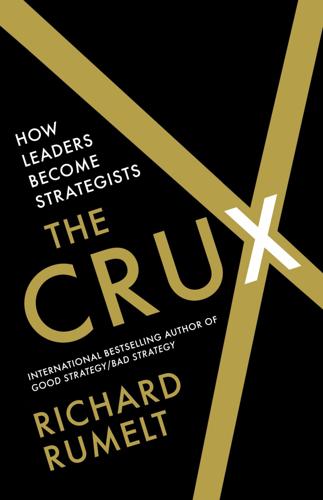
The Crux
by Richard Rumelt · 27 Apr 2022 · 363pp · 109,834 words
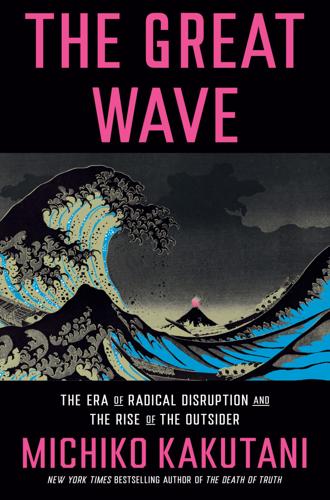
The Great Wave: The Era of Radical Disruption and the Rise of the Outsider
by Michiko Kakutani · 20 Feb 2024 · 262pp · 69,328 words

Character Limit: How Elon Musk Destroyed Twitter
by Kate Conger and Ryan Mac · 17 Sep 2024

Blank Space: A Cultural History of the Twenty-First Century
by W. David Marx · 18 Nov 2025 · 642pp · 142,332 words

The Rough Guide to New York City
by Rough Guides · 21 May 2018

The Rough Guide to Mexico
by Rough Guides · 15 Jan 2022

Trick Mirror: Reflections on Self-Delusion
by Jia Tolentino · 5 Aug 2019 · 305pp · 101,743 words
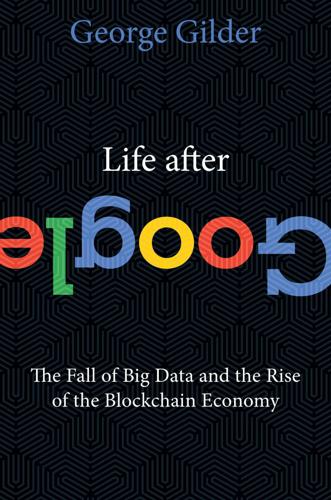
Life After Google: The Fall of Big Data and the Rise of the Blockchain Economy
by George Gilder · 16 Jul 2018 · 332pp · 93,672 words
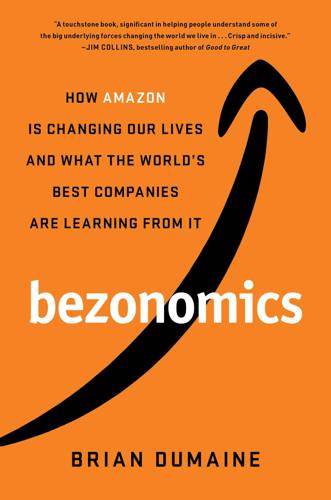
Bezonomics: How Amazon Is Changing Our Lives and What the World's Best Companies Are Learning From It
by Brian Dumaine · 11 May 2020 · 411pp · 98,128 words

Big Capital: Who Is London For?
by Anna Minton · 31 May 2017 · 169pp · 52,744 words
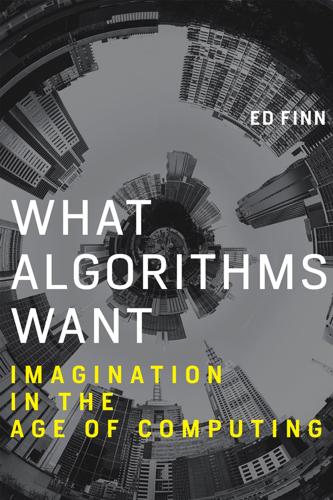
What Algorithms Want: Imagination in the Age of Computing
by Ed Finn · 10 Mar 2017 · 285pp · 86,853 words

Amazon Unbound: Jeff Bezos and the Invention of a Global Empire
by Brad Stone · 10 May 2021 · 569pp · 156,139 words
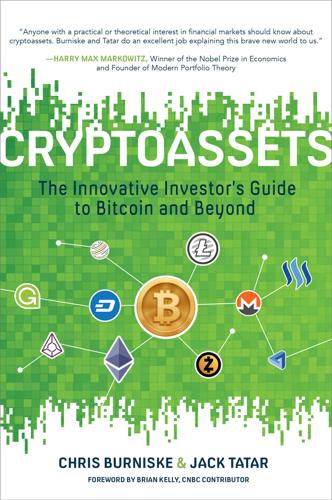
Cryptoassets: The Innovative Investor's Guide to Bitcoin and Beyond: The Innovative Investor's Guide to Bitcoin and Beyond
by Chris Burniske and Jack Tatar · 19 Oct 2017 · 416pp · 106,532 words
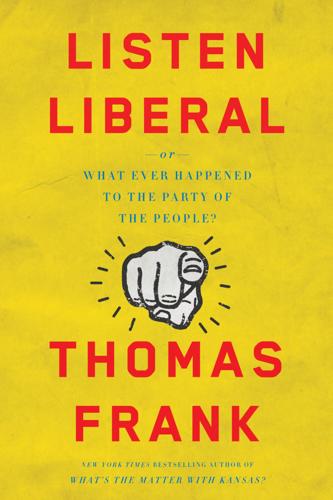
Listen, Liberal: Or, What Ever Happened to the Party of the People?
by Thomas Frank · 15 Mar 2016 · 316pp · 87,486 words
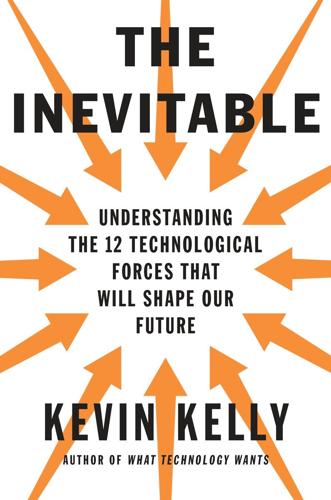
The Inevitable: Understanding the 12 Technological Forces That Will Shape Our Future
by Kevin Kelly · 6 Jun 2016 · 371pp · 108,317 words
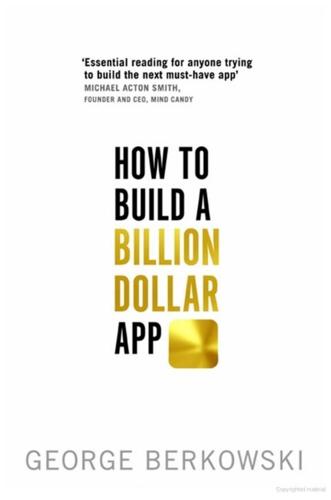
How to Build a Billion Dollar App: Discover the Secrets of the Most Successful Entrepreneurs of Our Time
by George Berkowski · 3 Sep 2014 · 468pp · 124,573 words
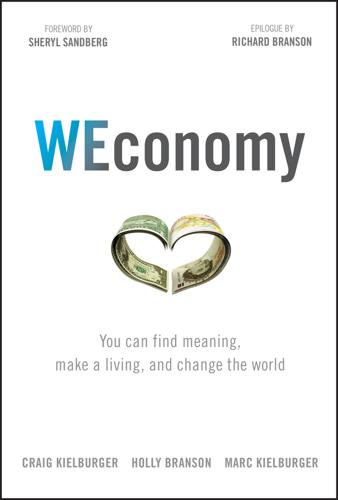
WEconomy: You Can Find Meaning, Make a Living, and Change the World
by Craig Kielburger, Holly Branson, Marc Kielburger, Sir Richard Branson and Sheryl Sandberg · 7 Mar 2018 · 335pp · 96,002 words
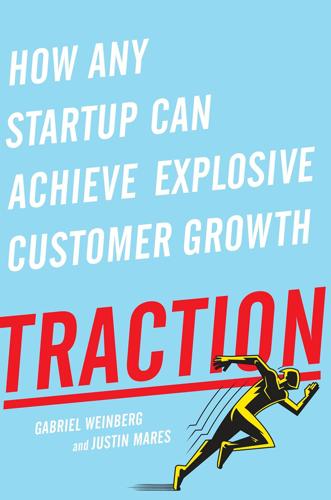
Traction: How Any Startup Can Achieve Explosive Customer Growth
by Gabriel Weinberg and Justin Mares · 5 Oct 2015 · 232pp · 63,846 words
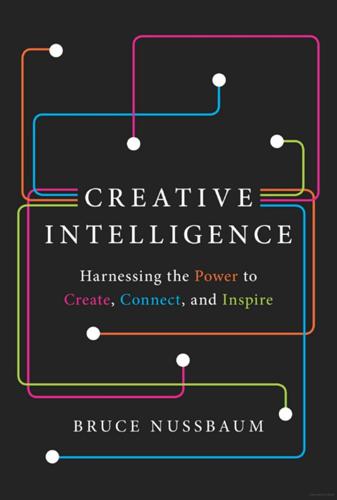
Creative Intelligence: Harnessing the Power to Create, Connect, and Inspire
by Bruce Nussbaum · 5 Mar 2013 · 385pp · 101,761 words
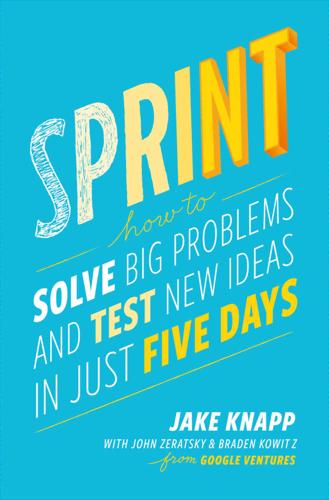
Sprint: How to Solve Big Problems and Test New Ideas in Just Five Days
by Jake Knapp, John Zeratsky and Braden Kowitz · 8 Mar 2016 · 233pp · 58,561 words

Lonely Planet's 2016 Best in Travel
by Lonely Planet · 30 Sep 2015 · 190pp · 50,133 words

Together
by Vivek H. Murthy, M.D. · 5 Mar 2020 · 405pp · 112,470 words
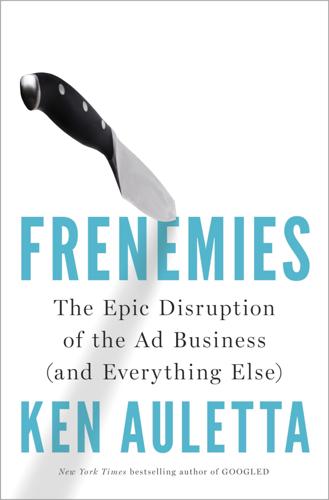
Frenemies: The Epic Disruption of the Ad Business
by Ken Auletta · 4 Jun 2018 · 379pp · 109,223 words
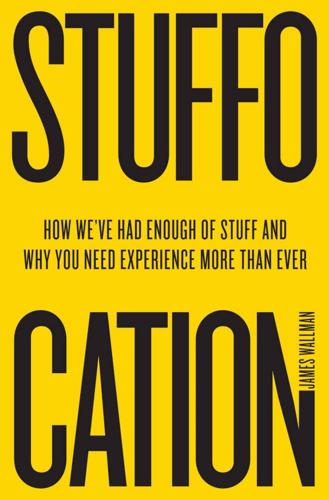
Stuffocation
by James Wallman · 6 Dec 2013 · 296pp · 82,501 words
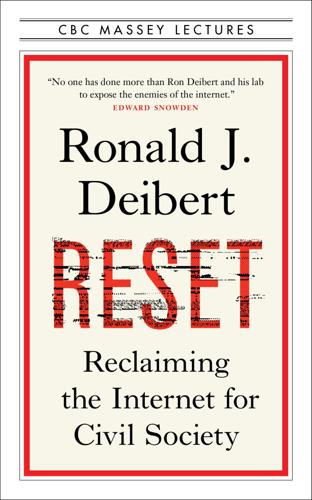
Reset
by Ronald J. Deibert · 14 Aug 2020
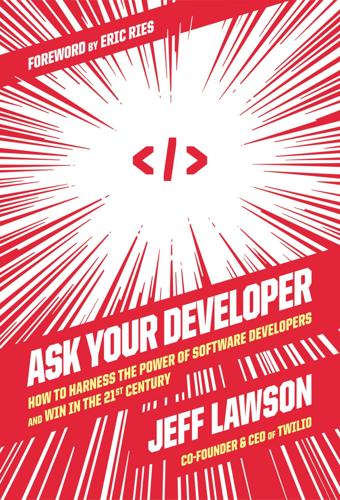
Ask Your Developer: How to Harness the Power of Software Developers and Win in the 21st Century
by Jeff Lawson · 12 Jan 2021 · 282pp · 85,658 words

Lonely Planet Barcelona
by Isabella Noble and Regis St Louis · 15 Nov 2022 · 541pp · 135,952 words

12 Bytes: How We Got Here. Where We Might Go Next
by Jeanette Winterson · 15 Mar 2021 · 256pp · 73,068 words

Lonely Planet Iceland
by Lonely Planet

The Rebel and the Kingdom: The True Story of the Secret Mission to Overthrow the North Korean Regime
by Bradley Hope · 1 Nov 2022 · 257pp · 77,612 words
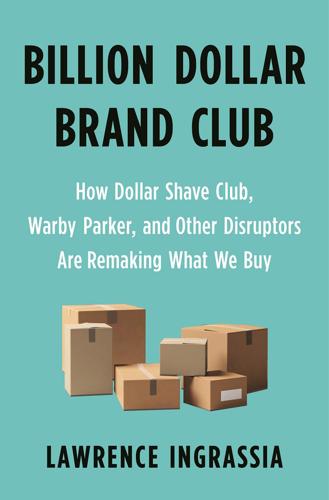
Billion Dollar Brand Club: How Dollar Shave Club, Warby Parker, and Other Disruptors Are Remaking What We Buy
by Lawrence Ingrassia · 28 Jan 2020 · 290pp · 90,057 words
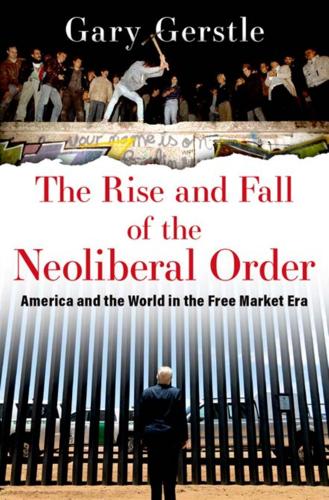
The Rise and Fall of the Neoliberal Order: America and the World in the Free Market Era
by Gary Gerstle · 14 Oct 2022 · 655pp · 156,367 words

Abolish Silicon Valley: How to Liberate Technology From Capitalism
by Wendy Liu · 22 Mar 2020 · 223pp · 71,414 words
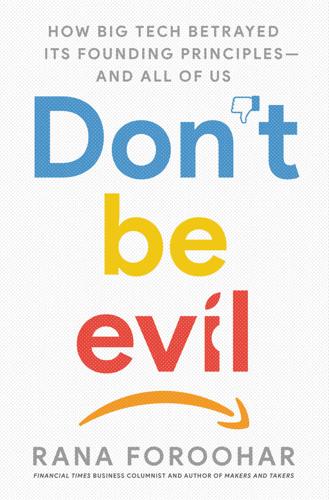
Don't Be Evil: How Big Tech Betrayed Its Founding Principles--And All of US
by Rana Foroohar · 5 Nov 2019 · 380pp · 109,724 words

The Dream of Europe: Travels in the Twenty-First Century
by Geert Mak · 27 Oct 2021 · 722pp · 223,701 words
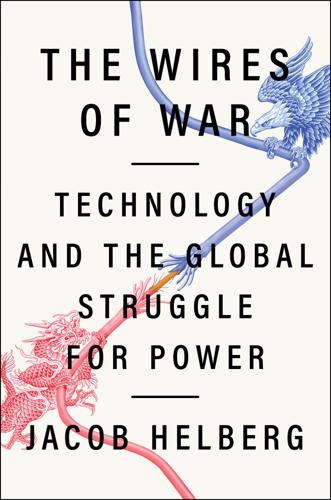
The Wires of War: Technology and the Global Struggle for Power
by Jacob Helberg · 11 Oct 2021 · 521pp · 118,183 words
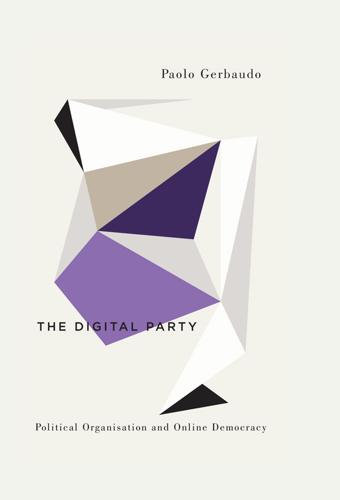
The Digital Party: Political Organisation and Online Democracy
by Paolo Gerbaudo · 19 Jul 2018 · 302pp · 84,881 words
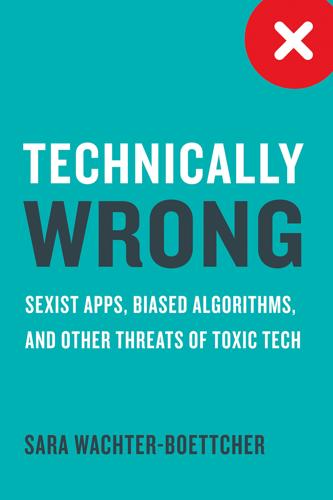
Technically Wrong: Sexist Apps, Biased Algorithms, and Other Threats of Toxic Tech
by Sara Wachter-Boettcher · 9 Oct 2017 · 223pp · 60,909 words
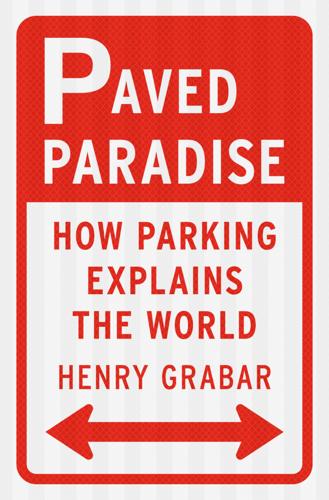
Paved Paradise: How Parking Explains the World
by Henry Grabar · 8 May 2023 · 413pp · 115,274 words
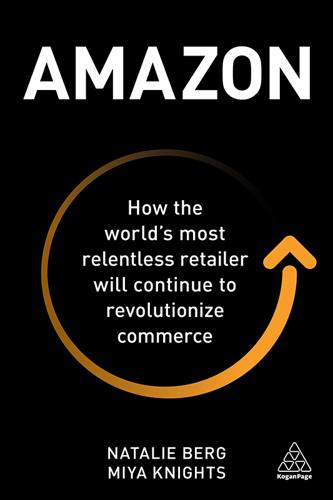
Amazon: How the World’s Most Relentless Retailer Will Continue to Revolutionize Commerce
by Natalie Berg and Miya Knights · 28 Jan 2019 · 404pp · 95,163 words

Fodor's Essential Belgium
by Fodor's Travel Guides · 23 Aug 2022

No Filter: The Inside Story of Instagram
by Sarah Frier · 13 Apr 2020 · 484pp · 114,613 words
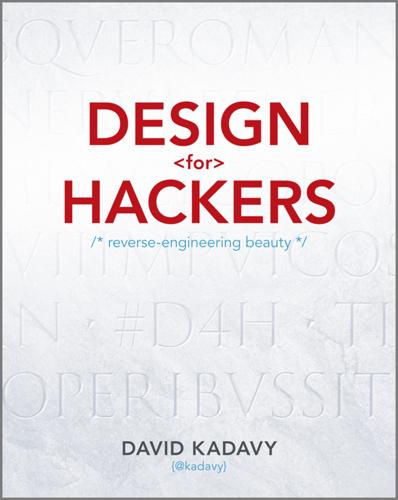
Design for Hackers: Reverse Engineering Beauty
by David Kadavy · 5 Sep 2011 · 276pp · 78,094 words

Bit Rot
by Douglas Coupland · 4 Oct 2016

Moon Oregon Trail Road Trip: Historic Sites, Small Towns, and Scenic Landscapes Along the Legendary Westward Route
by Katrina Emery and Moon Travel Guides · 27 Jul 2020 · 608pp · 184,703 words
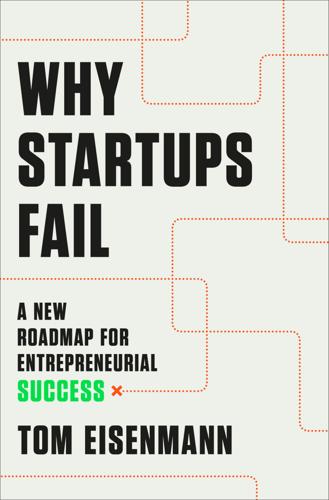
Why Startups Fail: A New Roadmap for Entrepreneurial Success
by Tom Eisenmann · 29 Mar 2021 · 387pp · 106,753 words

The Rough Guide to Cape Town, Winelands & Garden Route
by Rough Guides, James Bembridge and Barbara McCrea · 4 Jan 2018 · 641pp · 147,719 words

Nomad Capitalist: How to Reclaim Your Freedom With Offshore Bank Accounts, Dual Citizenship, Foreign Companies, and Overseas Investments
by Andrew Henderson · 8 Apr 2018 · 403pp · 110,492 words
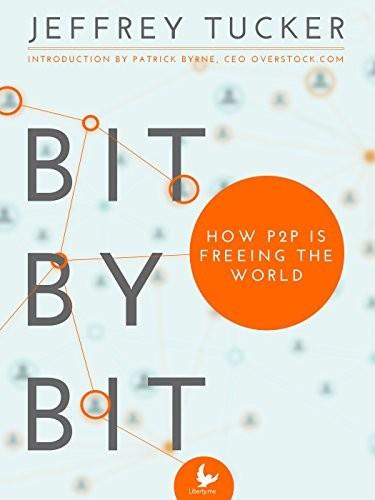
Bit by Bit: How P2P Is Freeing the World
by Jeffrey Tucker · 7 Jan 2015

Roads and Bridges
by Nadia Eghbal · 139pp · 35,022 words

Everything's Trash, but It's Okay
by Phoebe Robinson · 15 Oct 2018 · 257pp · 90,857 words
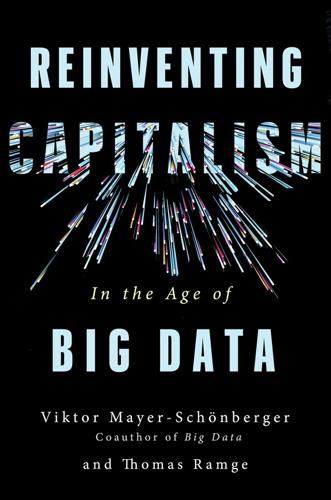
Reinventing Capitalism in the Age of Big Data
by Viktor Mayer-Schönberger and Thomas Ramge · 27 Feb 2018 · 267pp · 72,552 words
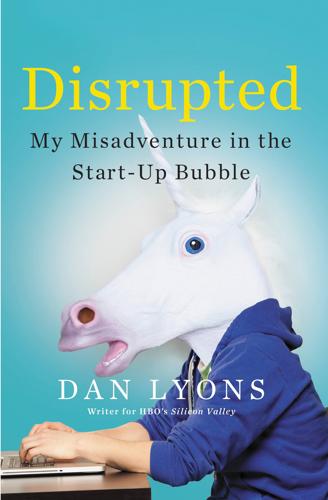
Disrupted: My Misadventure in the Start-Up Bubble
by Dan Lyons · 4 Apr 2016 · 284pp · 92,688 words
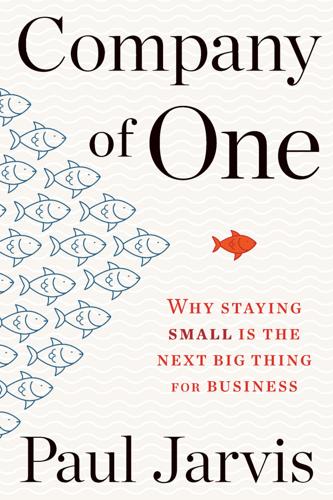
Company of One: Why Staying Small Is the Next Big Thing for Business
by Paul Jarvis · 1 Jan 2019 · 258pp · 74,942 words
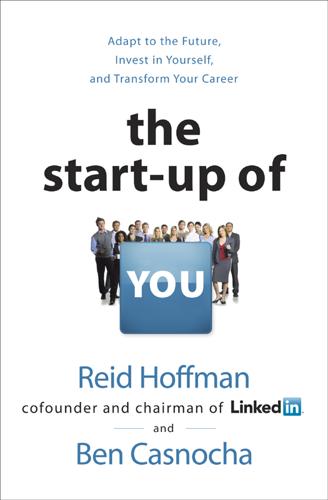
The Start-Up of You: Adapt to the Future, Invest in Yourself, and Transform Your Career
by Reid Hoffman and Ben Casnocha · 14 Feb 2012 · 176pp · 55,819 words
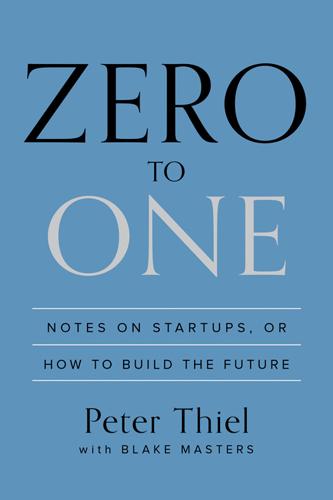
Zero to One: Notes on Startups, or How to Build the Future
by Peter Thiel and Blake Masters · 15 Sep 2014 · 185pp · 43,609 words
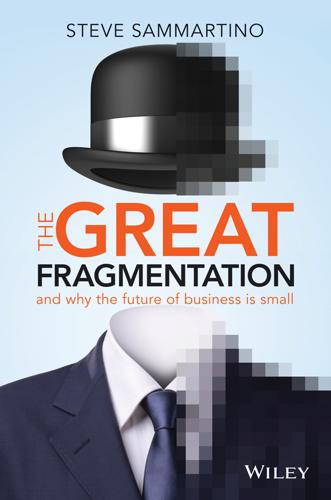
The Great Fragmentation: And Why the Future of All Business Is Small
by Steve Sammartino · 25 Jun 2014 · 247pp · 81,135 words
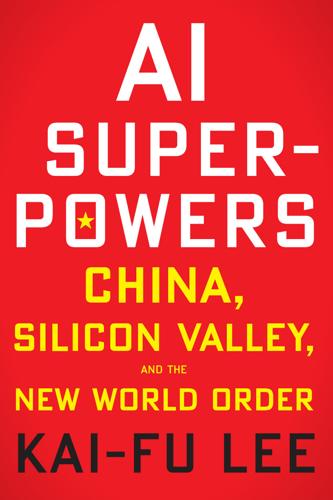
AI Superpowers: China, Silicon Valley, and the New World Order
by Kai-Fu Lee · 14 Sep 2018 · 307pp · 88,180 words
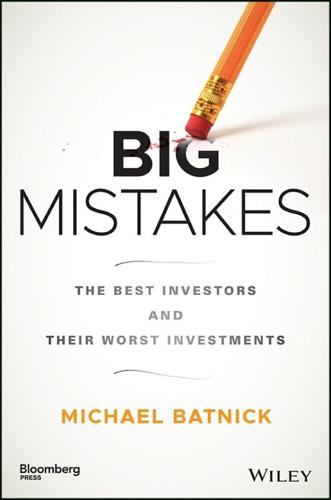
Big Mistakes: The Best Investors and Their Worst Investments
by Michael Batnick · 21 May 2018 · 198pp · 53,264 words
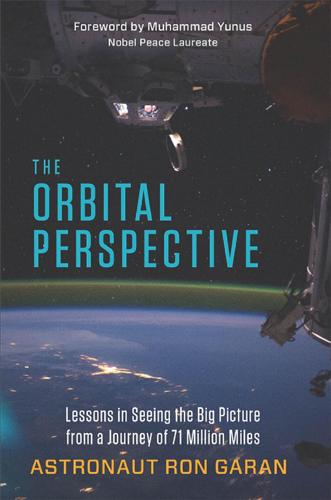
The Orbital Perspective: Lessons in Seeing the Big Picture From a Journey of 71 Million Miles
by Astronaut Ron Garan and Muhammad Yunus · 2 Feb 2015
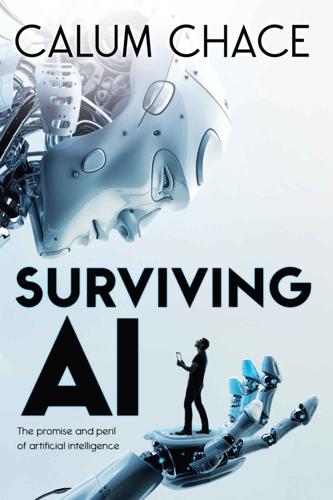
Surviving AI: The Promise and Peril of Artificial Intelligence
by Calum Chace · 28 Jul 2015 · 144pp · 43,356 words
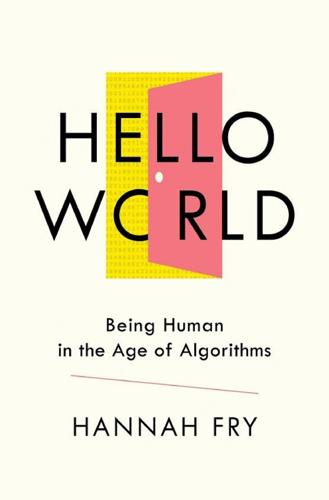
Hello World: Being Human in the Age of Algorithms
by Hannah Fry · 17 Sep 2018 · 296pp · 78,631 words
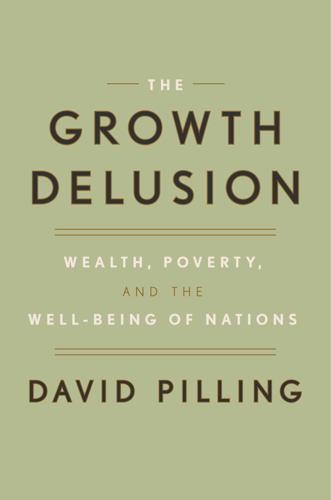
The Growth Delusion: Wealth, Poverty, and the Well-Being of Nations
by David Pilling · 30 Jan 2018 · 264pp · 76,643 words

The Water Will Come: Rising Seas, Sinking Cities, and the Remaking of the Civilized World
by Jeff Goodell · 23 Oct 2017 · 292pp · 92,588 words
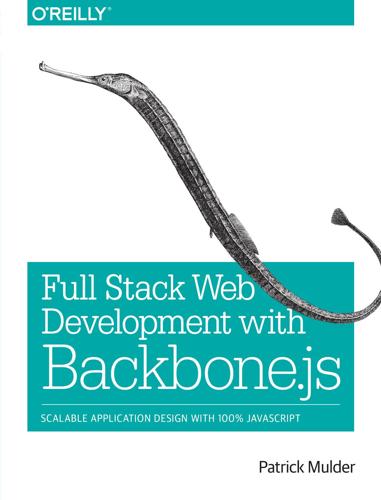
Full Stack Web Development With Backbone.js
by Patrick Mulder · 18 Jun 2014 · 190pp · 52,865 words

The Fourth Industrial Revolution
by Klaus Schwab · 11 Jan 2016 · 179pp · 43,441 words
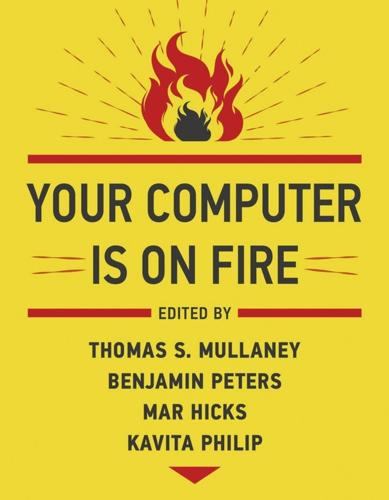
Your Computer Is on Fire
by Thomas S. Mullaney, Benjamin Peters, Mar Hicks and Kavita Philip · 9 Mar 2021 · 661pp · 156,009 words
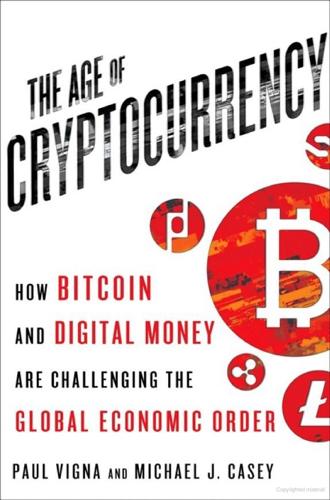
The Age of Cryptocurrency: How Bitcoin and Digital Money Are Challenging the Global Economic Order
by Paul Vigna and Michael J. Casey · 27 Jan 2015 · 457pp · 128,838 words
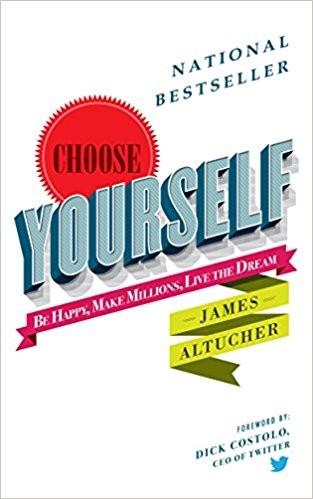
Choose Yourself!
by James Altucher · 14 Sep 2013 · 230pp · 76,655 words
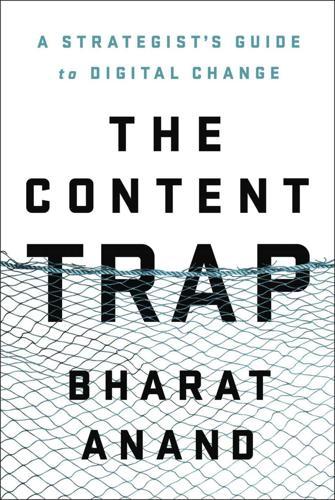
The Content Trap: A Strategist's Guide to Digital Change
by Bharat Anand · 17 Oct 2016 · 554pp · 149,489 words

Silicon City: San Francisco in the Long Shadow of the Valley
by Cary McClelland · 8 Oct 2018 · 225pp · 70,241 words

The Rough Guide to Brazil
by Rough Guides · 22 Sep 2018

Nothing Personal: My Secret Life in the Dating App Inferno
by Nancy Jo Sales · 17 May 2021 · 445pp · 135,648 words
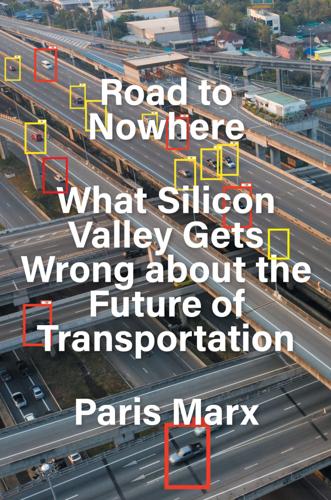
Road to Nowhere: What Silicon Valley Gets Wrong About the Future of Transportation
by Paris Marx · 4 Jul 2022 · 295pp · 81,861 words

German Language Learning: This Book Includes: Learn German for Beginners, Phrase Book, Short Stories. Perfect for Travel! Get Fluent and Increase Your German Easily in Your Car or Anywhere You Want!
by Language Building Lab · 4 Jan 2021 · 655pp · 76,038 words

Battle for the Bird: Jack Dorsey, Elon Musk, and the $44 Billion Fight for Twitter's Soul
by Kurt Wagner · 20 Feb 2024 · 332pp · 127,754 words

The the Rough Guide to Turkey
by Rough Guides · 15 Oct 2023

The Rough Guide to Korea
by Rough Guides · 24 Sep 2018 · 712pp · 199,112 words
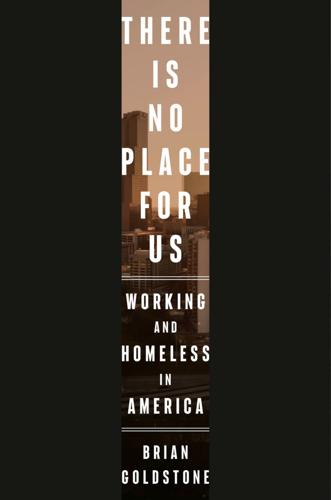
There Is No Place for Us: Working and Homeless in America
by Brian Goldstone · 25 Mar 2025 · 512pp · 153,059 words

Drama Queen: One Autistic Woman and a Life of Unhelpful Labels
by Sara Gibbs · 23 Jun 2021 · 263pp · 89,341 words
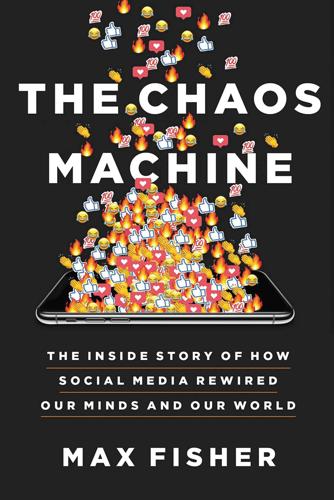
The Chaos Machine: The Inside Story of How Social Media Rewired Our Minds and Our World
by Max Fisher · 5 Sep 2022 · 439pp · 131,081 words

Golden Gates: Fighting for Housing in America
by Conor Dougherty · 18 Feb 2020 · 331pp · 95,582 words

Supremacy: AI, ChatGPT, and the Race That Will Change the World
by Parmy Olson · 284pp · 96,087 words

The Rough Guide to South America on a Budget (Travel Guide eBook)
by Rough Guides · 1 Jan 2019 · 1,909pp · 531,728 words
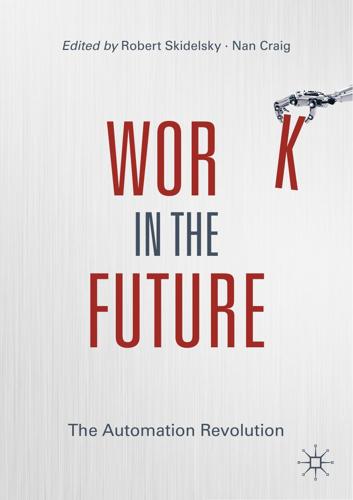
Work in the Future The Automation Revolution-Palgrave MacMillan (2019)
by Robert Skidelsky Nan Craig · 15 Mar 2020

Artificial Unintelligence: How Computers Misunderstand the World
by Meredith Broussard · 19 Apr 2018 · 245pp · 83,272 words

Exponential: How Accelerating Technology Is Leaving Us Behind and What to Do About It
by Azeem Azhar · 6 Sep 2021 · 447pp · 111,991 words
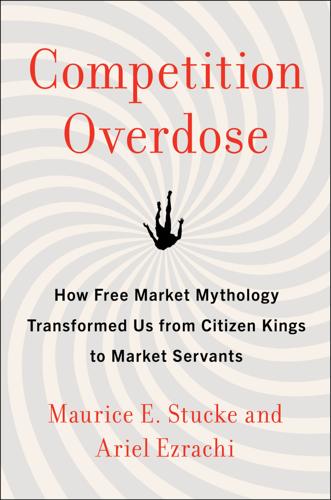
Competition Overdose: How Free Market Mythology Transformed Us From Citizen Kings to Market Servants
by Maurice E. Stucke and Ariel Ezrachi · 14 May 2020 · 511pp · 132,682 words
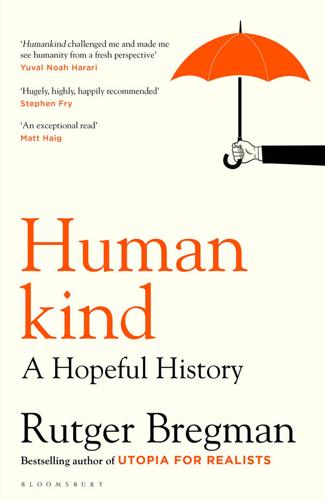
Humankind: A Hopeful History
by Rutger Bregman · 1 Jun 2020 · 578pp · 131,346 words
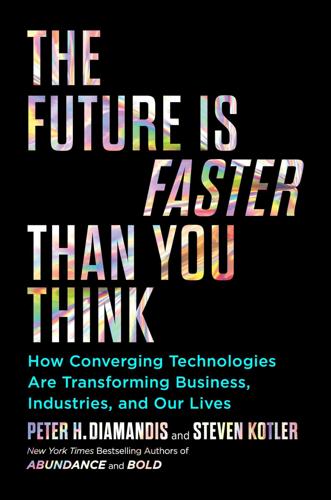
The Future Is Faster Than You Think: How Converging Technologies Are Transforming Business, Industries, and Our Lives
by Peter H. Diamandis and Steven Kotler · 28 Jan 2020 · 501pp · 114,888 words

Fodor's Oregon
by Fodor's Travel Guides · 13 Jun 2023 · 590pp · 156,001 words
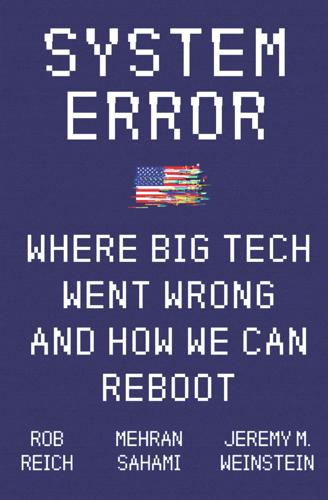
System Error: Where Big Tech Went Wrong and How We Can Reboot
by Rob Reich, Mehran Sahami and Jeremy M. Weinstein · 6 Sep 2021
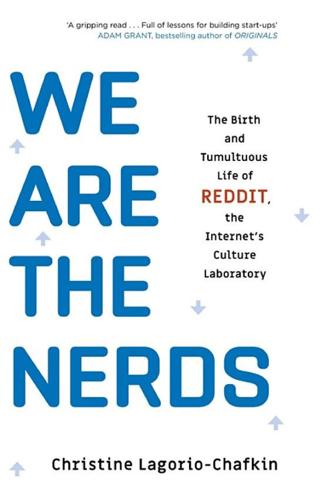
We Are the Nerds: The Birth and Tumultuous Life of Reddit, the Internet's Culture Laboratory
by Christine Lagorio-Chafkin · 1 Oct 2018
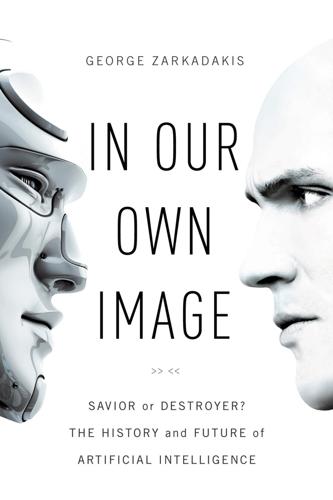
In Our Own Image: Savior or Destroyer? The History and Future of Artificial Intelligence
by George Zarkadakis · 7 Mar 2016 · 405pp · 117,219 words
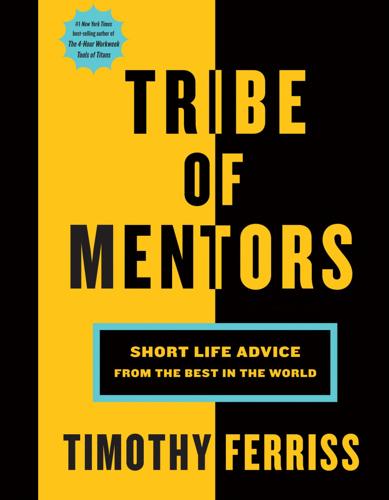
Tribe of Mentors: Short Life Advice From the Best in the World
by Timothy Ferriss · 14 Jun 2017 · 579pp · 183,063 words
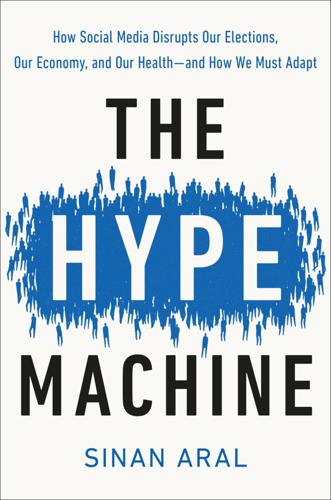
The Hype Machine: How Social Media Disrupts Our Elections, Our Economy, and Our Health--And How We Must Adapt
by Sinan Aral · 14 Sep 2020 · 475pp · 134,707 words

The Longing for Less: Living With Minimalism
by Kyle Chayka · 21 Jan 2020 · 237pp · 69,985 words

Spooked: The Trump Dossier, Black Cube, and the Rise of Private Spies
by Barry Meier · 17 May 2021 · 319pp · 89,192 words
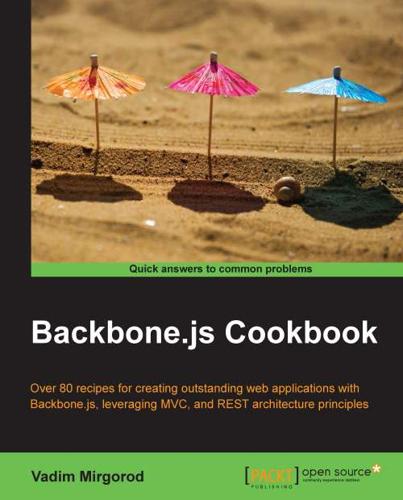
Backbone.js Cookbook
by Vadim Mirgorod · 25 Aug 2013
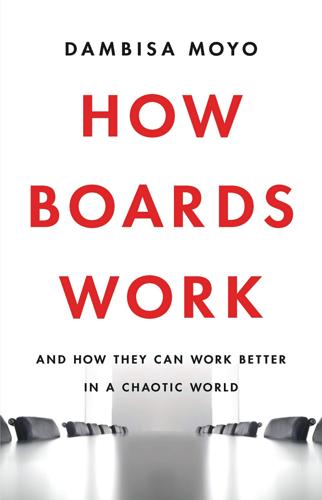
How Boards Work: And How They Can Work Better in a Chaotic World
by Dambisa Moyo · 3 May 2021 · 272pp · 76,154 words
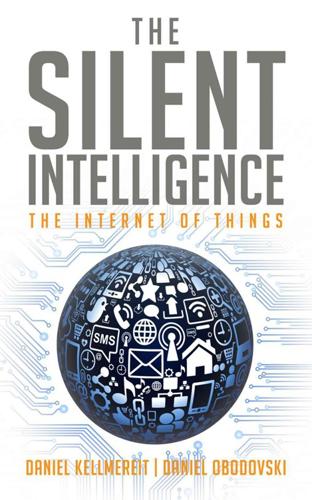
The Silent Intelligence: The Internet of Things
by Daniel Kellmereit and Daniel Obodovski · 19 Sep 2013 · 138pp · 40,787 words
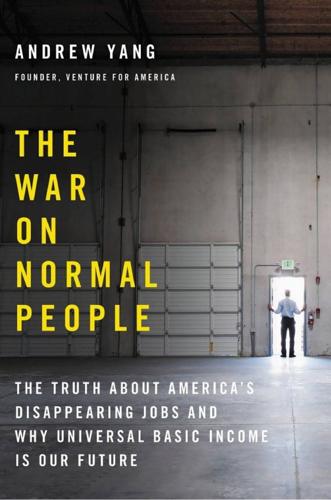
The War on Normal People: The Truth About America's Disappearing Jobs and Why Universal Basic Income Is Our Future
by Andrew Yang · 2 Apr 2018 · 300pp · 76,638 words
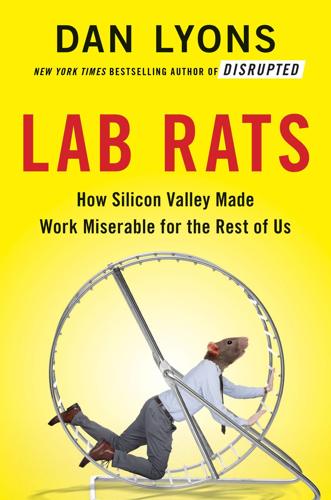
Lab Rats: How Silicon Valley Made Work Miserable for the Rest of Us
by Dan Lyons · 22 Oct 2018 · 252pp · 78,780 words

The 100-Year Life: Living and Working in an Age of Longevity
by Lynda Gratton and Andrew Scott · 1 Jun 2016 · 344pp · 94,332 words

The One Device: The Secret History of the iPhone
by Brian Merchant · 19 Jun 2017 · 416pp · 129,308 words
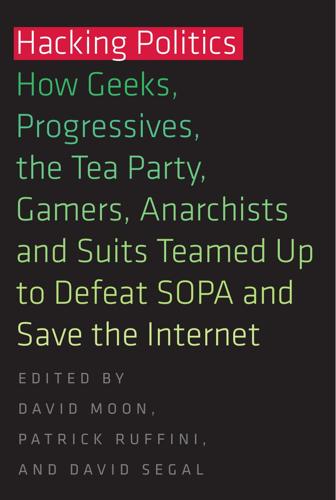
Hacking Politics: How Geeks, Progressives, the Tea Party, Gamers, Anarchists and Suits Teamed Up to Defeat SOPA and Save the Internet
by David Moon, Patrick Ruffini, David Segal, Aaron Swartz, Lawrence Lessig, Cory Doctorow, Zoe Lofgren, Jamie Laurie, Ron Paul, Mike Masnick, Kim Dotcom, Tiffiniy Cheng, Alexis Ohanian, Nicole Powers and Josh Levy · 30 Apr 2013 · 452pp · 134,502 words

Radical Technologies: The Design of Everyday Life
by Adam Greenfield · 29 May 2017 · 410pp · 119,823 words
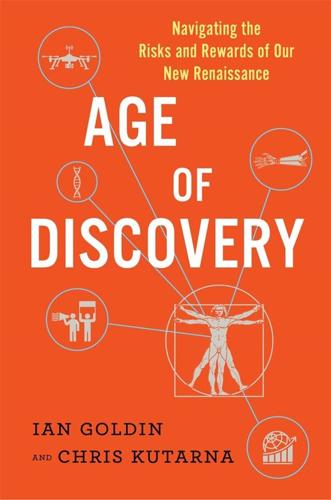
Age of Discovery: Navigating the Risks and Rewards of Our New Renaissance
by Ian Goldin and Chris Kutarna · 23 May 2016 · 437pp · 113,173 words
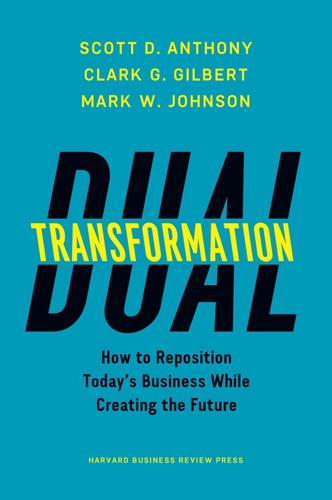
Dual Transformation: How to Reposition Today's Business While Creating the Future
by Scott D. Anthony and Mark W. Johnson · 27 Mar 2017 · 293pp · 78,439 words

New Dark Age: Technology and the End of the Future
by James Bridle · 18 Jun 2018 · 301pp · 85,263 words

Wild Ride: Inside Uber's Quest for World Domination
by Adam Lashinsky · 31 Mar 2017 · 190pp · 62,941 words
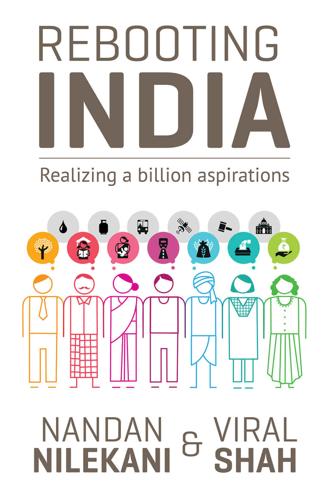
Rebooting India: Realizing a Billion Aspirations
by Nandan Nilekani · 4 Feb 2016 · 332pp · 100,601 words
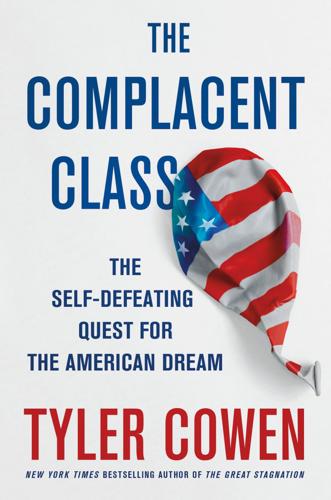
The Complacent Class: The Self-Defeating Quest for the American Dream
by Tyler Cowen · 27 Feb 2017 · 287pp · 82,576 words
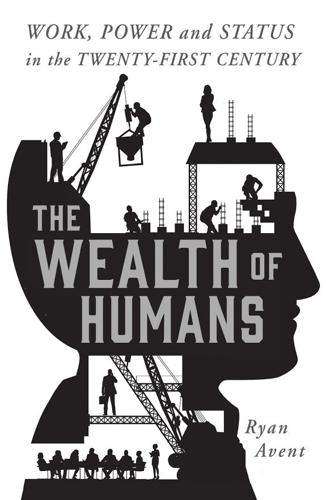
The Wealth of Humans: Work, Power, and Status in the Twenty-First Century
by Ryan Avent · 20 Sep 2016 · 323pp · 90,868 words

Squeezed: Why Our Families Can't Afford America
by Alissa Quart · 25 Jun 2018 · 320pp · 90,526 words

Radical Markets: Uprooting Capitalism and Democracy for a Just Society
by Eric Posner and E. Weyl · 14 May 2018 · 463pp · 105,197 words
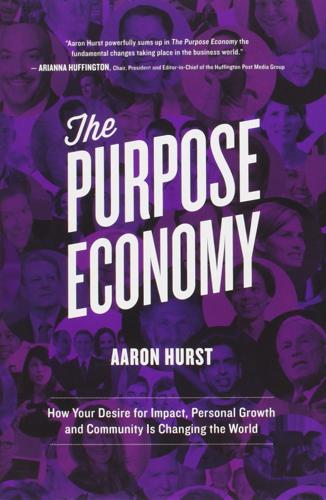
The Purpose Economy: How Your Desire for Impact, Personal Growth and Community Is Changing the World
by Aaron Hurst · 31 Aug 2013 · 209pp · 63,649 words
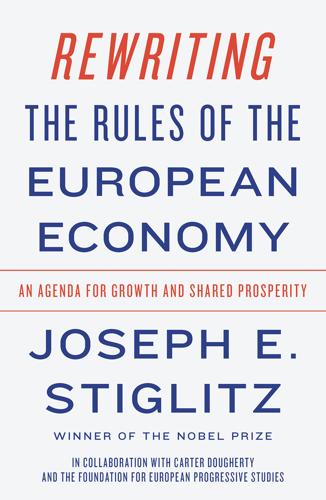
Rewriting the Rules of the European Economy: An Agenda for Growth and Shared Prosperity
by Joseph E. Stiglitz · 28 Jan 2020 · 408pp · 108,985 words
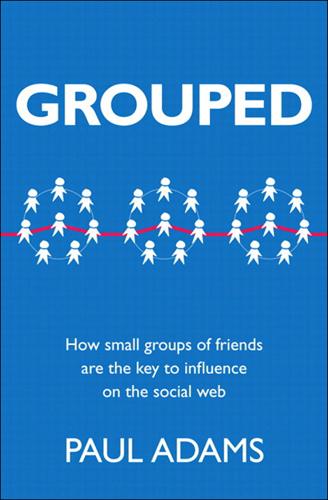
Grouped: How Small Groups of Friends Are the Key to Influence on the Social Web
by Paul Adams · 1 Nov 2011 · 123pp · 32,382 words

Future Crimes: Everything Is Connected, Everyone Is Vulnerable and What We Can Do About It
by Marc Goodman · 24 Feb 2015 · 677pp · 206,548 words
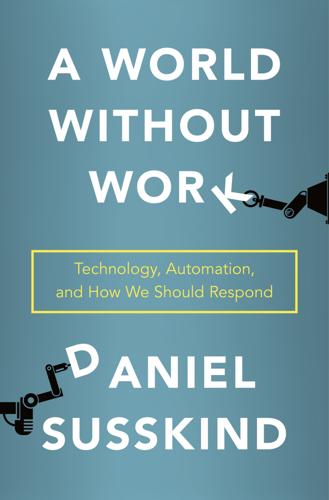
A World Without Work: Technology, Automation, and How We Should Respond
by Daniel Susskind · 14 Jan 2020 · 419pp · 109,241 words
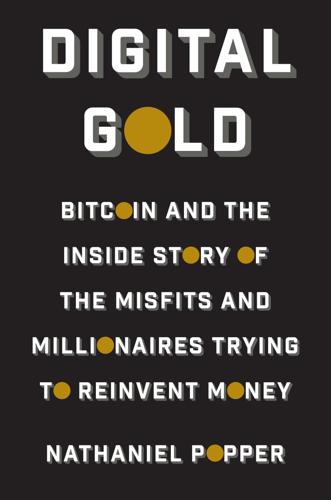
Digital Gold: Bitcoin and the Inside Story of the Misfits and Millionaires Trying to Reinvent Money
by Nathaniel Popper · 18 May 2015 · 387pp · 112,868 words
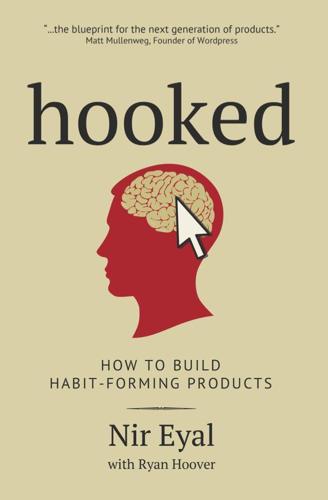
Hooked: How to Build Habit-Forming Products
by Nir Eyal · 26 Dec 2013 · 199pp · 43,653 words
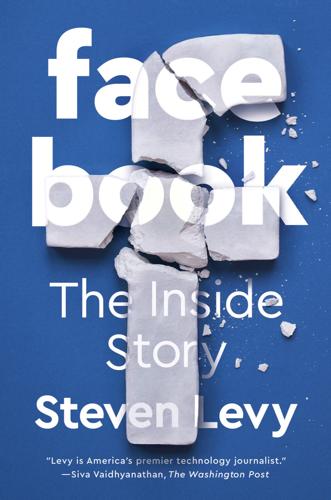
Facebook: The Inside Story
by Steven Levy · 25 Feb 2020 · 706pp · 202,591 words
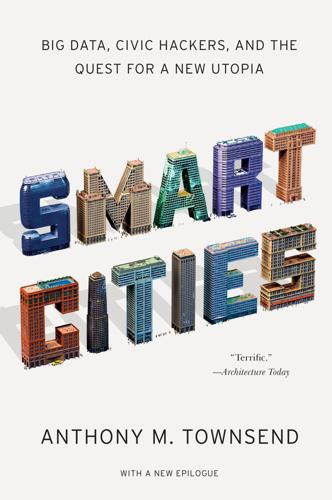
Smart Cities: Big Data, Civic Hackers, and the Quest for a New Utopia
by Anthony M. Townsend · 29 Sep 2013 · 464pp · 127,283 words
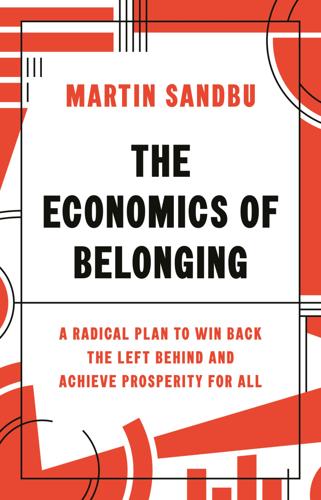
The Economics of Belonging: A Radical Plan to Win Back the Left Behind and Achieve Prosperity for All
by Martin Sandbu · 15 Jun 2020 · 322pp · 84,580 words
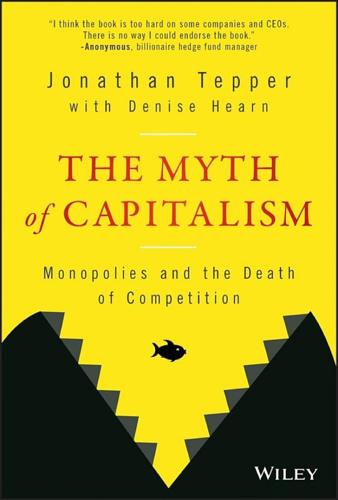
The Myth of Capitalism: Monopolies and the Death of Competition
by Jonathan Tepper · 20 Nov 2018 · 417pp · 97,577 words

The Digital Doctor: Hope, Hype, and Harm at the Dawn of Medicine’s Computer Age
by Robert Wachter · 7 Apr 2015 · 309pp · 114,984 words

The Automatic Customer: Creating a Subscription Business in Any Industry
by John Warrillow · 5 Feb 2015 · 186pp · 49,251 words
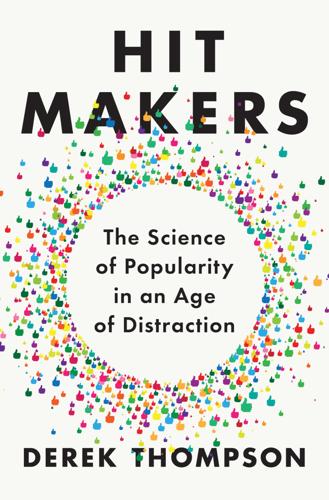
Hit Makers: The Science of Popularity in an Age of Distraction
by Derek Thompson · 7 Feb 2017 · 416pp · 108,370 words
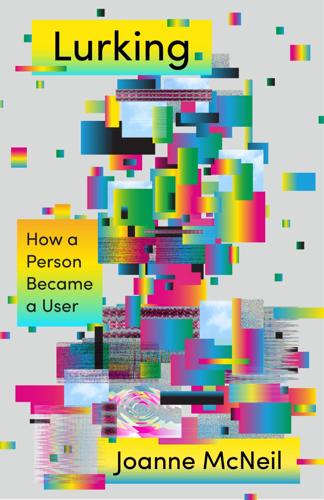
Lurking: How a Person Became a User
by Joanne McNeil · 25 Feb 2020 · 239pp · 80,319 words
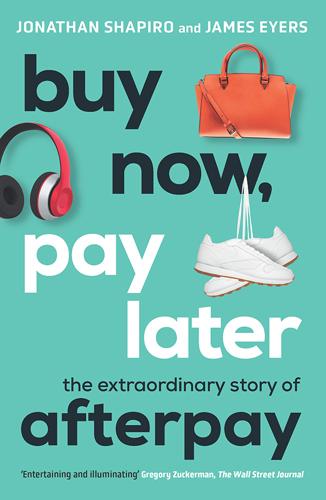
Buy Now, Pay Later: The Extraordinary Story of Afterpay
by Jonathan Shapiro and James Eyers · 2 Aug 2021 · 444pp · 124,631 words

Whistleblower: My Journey to Silicon Valley and Fight for Justice at Uber
by Susan Fowler · 18 Feb 2020 · 205pp · 71,872 words

User Friendly: How the Hidden Rules of Design Are Changing the Way We Live, Work & Play
by Cliff Kuang and Robert Fabricant · 7 Nov 2019

Immortality, Inc.
by Chip Walter · 7 Jan 2020 · 232pp · 72,483 words
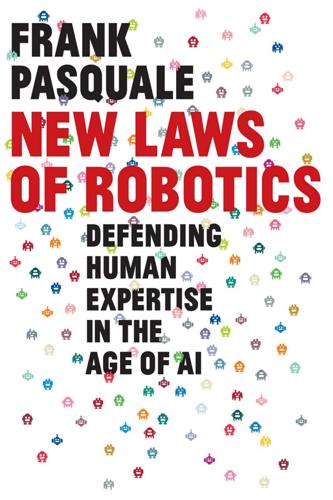
New Laws of Robotics: Defending Human Expertise in the Age of AI
by Frank Pasquale · 14 May 2020 · 1,172pp · 114,305 words

This Is Not Normal: The Collapse of Liberal Britain
by William Davies · 28 Sep 2020 · 210pp · 65,833 words
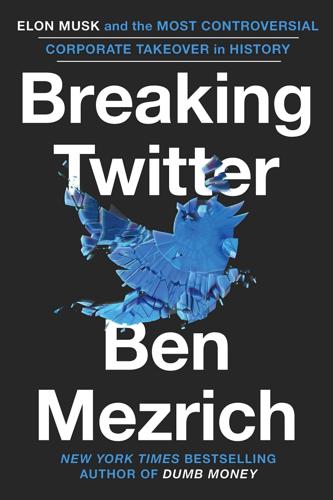
Breaking Twitter: Elon Musk and the Most Controversial Corporate Takeover in History
by Ben Mezrich · 6 Nov 2023 · 279pp · 85,453 words

Binge Times: Inside Hollywood's Furious Billion-Dollar Battle to Take Down Netflix
by Dade Hayes and Dawn Chmielewski · 18 Apr 2022 · 414pp · 117,581 words
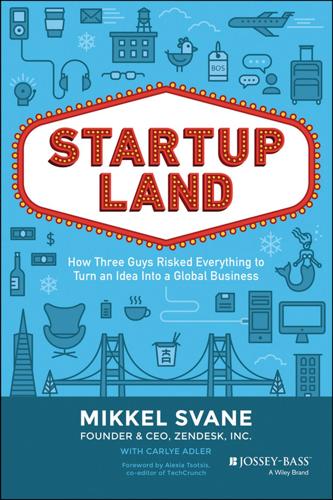
Startupland: How Three Guys Risked Everything to Turn an Idea Into a Global Business
by Mikkel Svane and Carlye Adler · 13 Nov 2014 · 220pp

Markets, State, and People: Economics for Public Policy
by Diane Coyle · 14 Jan 2020 · 384pp · 108,414 words

DK Eyewitness Top 10 Azores
by Dk Eyewitness · 22 Dec 2022 · 157pp · 39,207 words
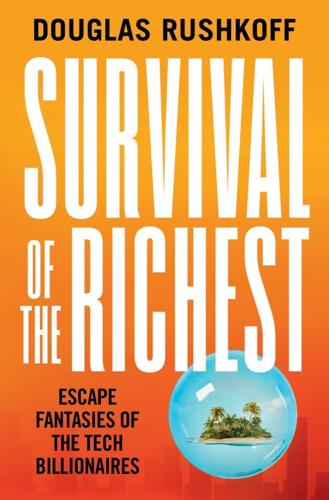
Survival of the Richest: Escape Fantasies of the Tech Billionaires
by Douglas Rushkoff · 7 Sep 2022 · 205pp · 61,903 words
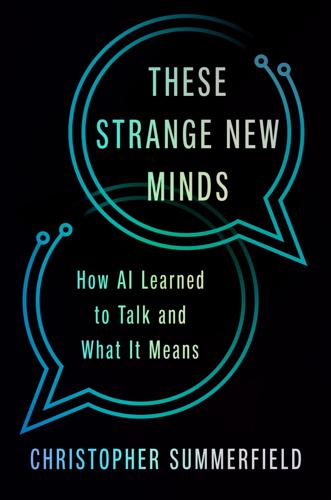
These Strange New Minds: How AI Learned to Talk and What It Means
by Christopher Summerfield · 11 Mar 2025 · 412pp · 122,298 words
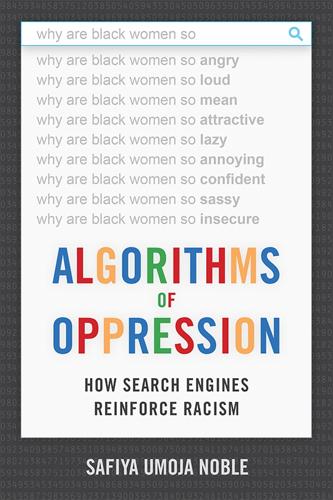
Algorithms of Oppression: How Search Engines Reinforce Racism
by Safiya Umoja Noble · 8 Jan 2018 · 290pp · 73,000 words

The Rough Guide to Paris
by Rough Guides · 1 May 2023 · 688pp · 190,793 words

The Rough Guide to New Zealand: Travel Guide eBook
by Rough Guides · 1 Jan 2024 · 1,383pp · 367,401 words
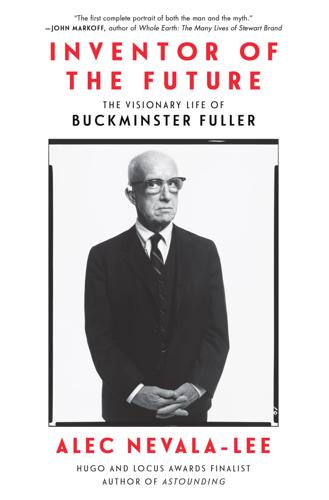
Inventor of the Future: The Visionary Life of Buckminster Fuller
by Alec Nevala-Lee · 1 Aug 2022 · 864pp · 222,565 words

Lonely Planet Malta & Gozo
by Lonely Planet · 233pp · 61,033 words

Bosnia and Herzegovina
by Tim. Clancy · 15 Mar 2022 · 716pp · 209,067 words

The Rough Guide to Portugal (Travel Guide eBook)
by Rough Guides · 1 Mar 2023 · 919pp · 252,171 words
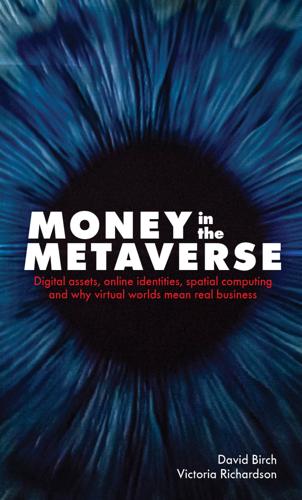
Money in the Metaverse: Digital Assets, Online Identities, Spatial Computing and Why Virtual Worlds Mean Real Business
by David G. W. Birch and Victoria Richardson · 28 Apr 2024 · 249pp · 74,201 words
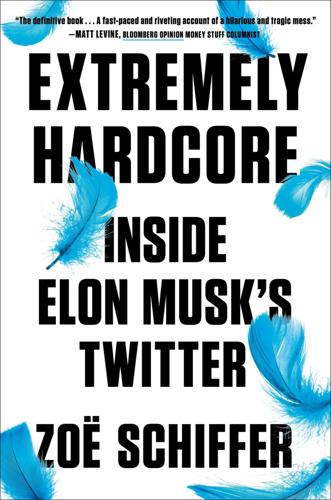
Extremely Hardcore: Inside Elon Musk's Twitter
by Zoë Schiffer · 13 Feb 2024 · 343pp · 92,693 words
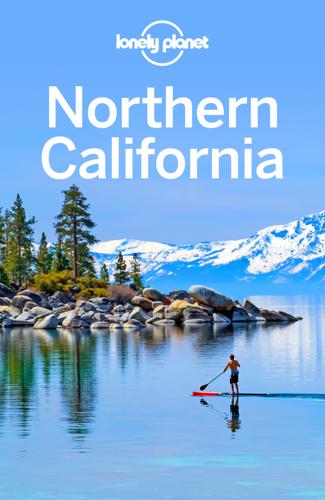
Northern California Travel Guide
by Lonely Planet

Gambling Man
by Lionel Barber · 3 Oct 2024 · 424pp · 123,730 words
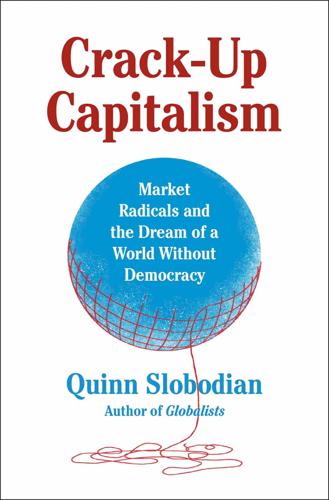
Crack-Up Capitalism: Market Radicals and the Dream of a World Without Democracy
by Quinn Slobodian · 4 Apr 2023 · 360pp · 107,124 words

The Quiet Damage: QAnon and the Destruction of the American Family
by Jesselyn Cook · 22 Jul 2024 · 321pp · 95,778 words
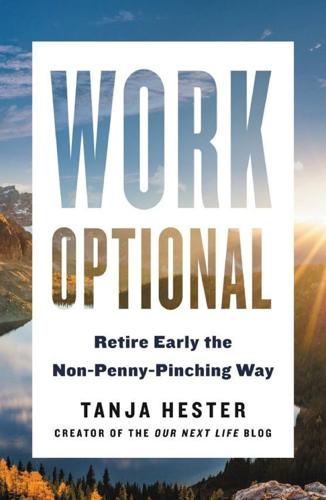
Work Optional: Retire Early the Non-Penny-Pinching Way
by Tanja Hester · 12 Feb 2019 · 231pp · 76,283 words

The Rough Guide to Devon & Cornwall
by Robert Andrews
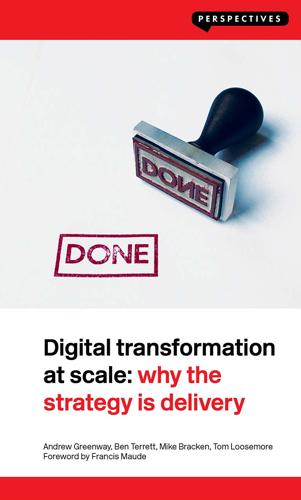
Digital Transformation at Scale: Why the Strategy Is Delivery
by Andrew Greenway,Ben Terrett,Mike Bracken,Tom Loosemore · 18 Jun 2018
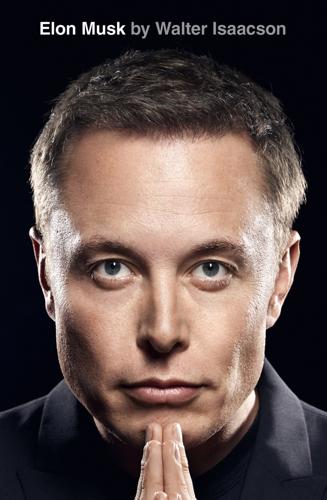
Elon Musk
by Walter Isaacson · 11 Sep 2023 · 562pp · 201,502 words

Health and Safety: A Breakdown
by Emily Witt · 16 Sep 2024 · 242pp · 85,783 words
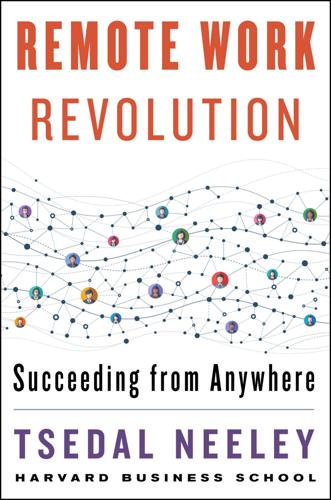
Remote Work Revolution: Succeeding From Anywhere
by Tsedal Neeley · 14 Oct 2021 · 223pp · 60,936 words
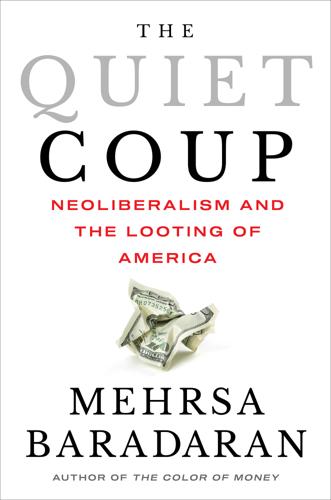
The Quiet Coup: Neoliberalism and the Looting of America
by Mehrsa Baradaran · 7 May 2024 · 470pp · 158,007 words

The Future of Money: How the Digital Revolution Is Transforming Currencies and Finance
by Eswar S. Prasad · 27 Sep 2021 · 661pp · 185,701 words

When the Heavens Went on Sale: The Misfits and Geniuses Racing to Put Space Within Reach
by Ashlee Vance · 8 May 2023 · 558pp · 175,965 words

The Rough Guide To Devon & Cornwall
by Rough Guides · 29 Apr 2024 · 558pp · 147,947 words

The Lords of Easy Money: How the Federal Reserve Broke the American Economy
by Christopher Leonard · 11 Jan 2022 · 416pp · 124,469 words

Lonely Planet Egypt
by Lonely Planet · 476pp · 132,840 words

Please Don't Sit on My Bed in Your Outside Clothes: Essays
by Phoebe Robinson · 14 Oct 2021 · 265pp · 93,354 words

The 4-Hour Chef: The Simple Path to Cooking Like a Pro, Learning Anything, and Living the Good Life
by Timothy Ferriss · 1 Jan 2012 · 1,007pp · 181,911 words
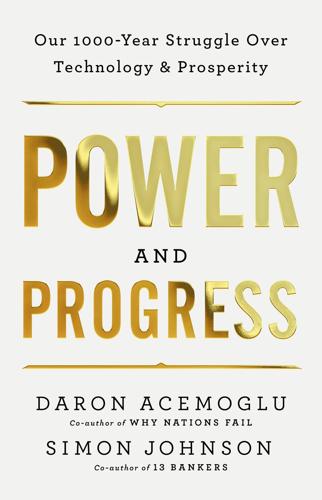
Power and Progress: Our Thousand-Year Struggle Over Technology and Prosperity
by Daron Acemoglu and Simon Johnson · 15 May 2023 · 619pp · 177,548 words

Transaction Man: The Rise of the Deal and the Decline of the American Dream
by Nicholas Lemann · 9 Sep 2019 · 354pp · 118,970 words

Mexico - Mexico City
by Rough Guides · 267pp · 74,238 words
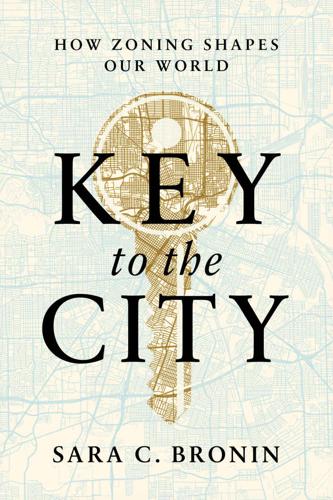
Key to the City: How Zoning Shapes Our World
by Sara C. Bronin · 30 Sep 2024 · 230pp · 74,949 words

Devil Take the Hindmost: A History of Financial Speculation
by Edward Chancellor · 31 May 2000 · 860pp · 227,491 words
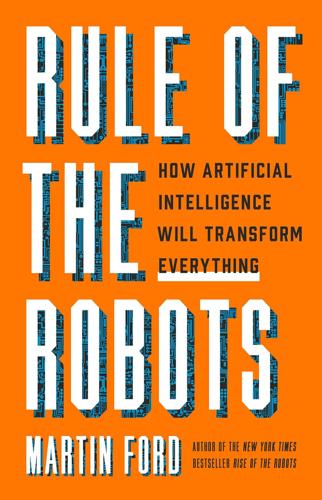
Rule of the Robots: How Artificial Intelligence Will Transform Everything
by Martin Ford · 13 Sep 2021 · 288pp · 86,995 words
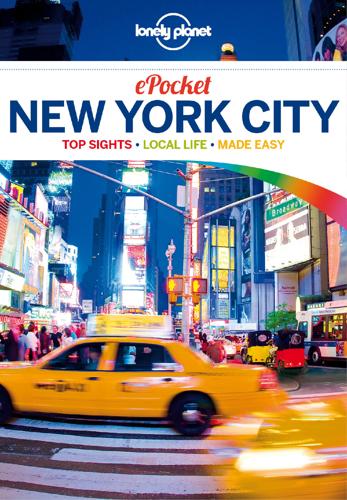
Pocket New York City Travel Guide
by Lonely Planet · 27 Sep 2012

Germany Travel Guide
by Lonely Planet

Home: Why Public Housing Is the Answer
by Eoin Ó Broin · 5 May 2019 · 301pp · 77,626 words
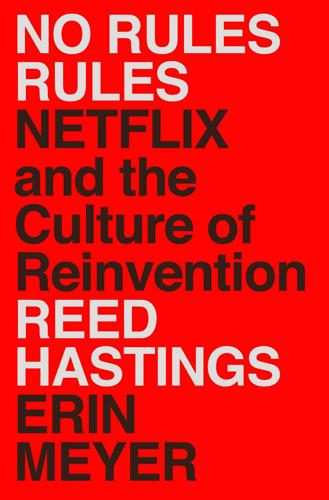
No Rules Rules: Netflix and the Culture of Reinvention
by Reed Hastings and Erin Meyer · 7 Sep 2020 · 317pp · 89,825 words
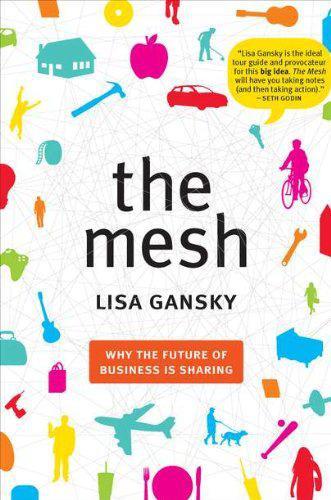
The Mesh: Why the Future of Business Is Sharing
by Lisa Gansky · 14 Oct 2010 · 215pp · 55,212 words
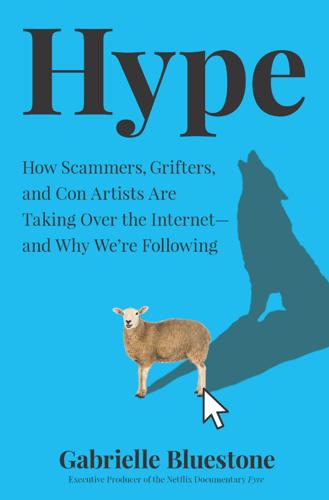
Hype: How Scammers, Grifters, and Con Artists Are Taking Over the Internet―and Why We're Following
by Gabrielle Bluestone · 5 Apr 2021 · 329pp · 100,162 words
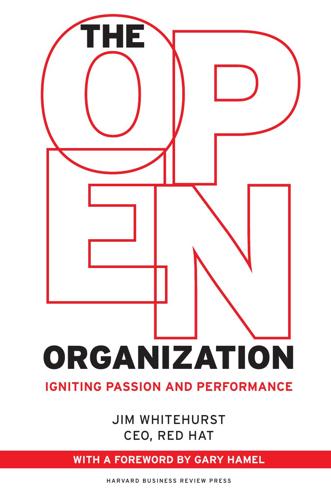
The Open Organization: Igniting Passion and Performance
by Jim Whitehurst · 1 Jun 2015 · 247pp · 63,208 words

Lonely Planet Morocco (Travel Guide)
by Lonely Planet, Paul Clammer and Paula Hardy · 1 Jul 2014 · 2,020pp · 267,411 words

The Happiness Industry: How the Government and Big Business Sold Us Well-Being
by William Davies · 11 May 2015 · 317pp · 87,566 words
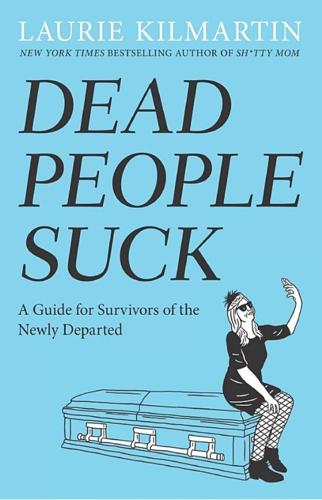
Dead People Suck: A Guide for Survivors of the Newly Departed
by Laurie Kilmartin · 13 Feb 2018 · 119pp · 36,128 words
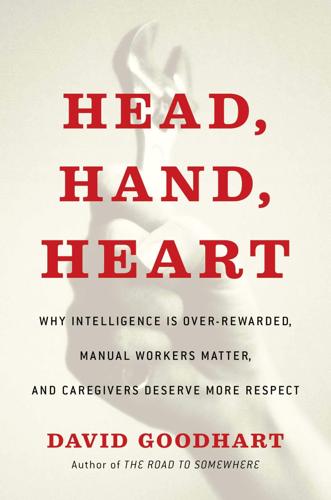
Head, Hand, Heart: Why Intelligence Is Over-Rewarded, Manual Workers Matter, and Caregivers Deserve More Respect
by David Goodhart · 7 Sep 2020 · 463pp · 115,103 words

Frommer's Paris 2013
by Kate van Der Boogert · 24 Sep 2012
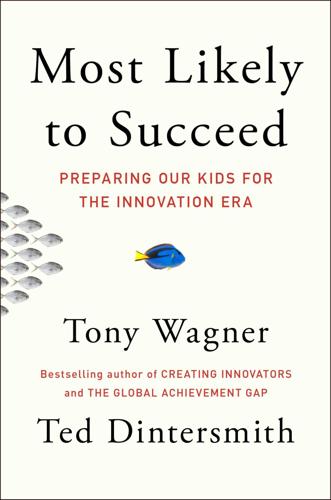
Most Likely to Succeed: Preparing Our Kids for the Innovation Era
by Tony Wagner and Ted Dintersmith · 17 Aug 2015 · 353pp · 91,520 words
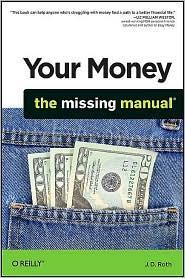
Your Money: The Missing Manual
by J.D. Roth · 18 Mar 2010 · 519pp · 118,095 words
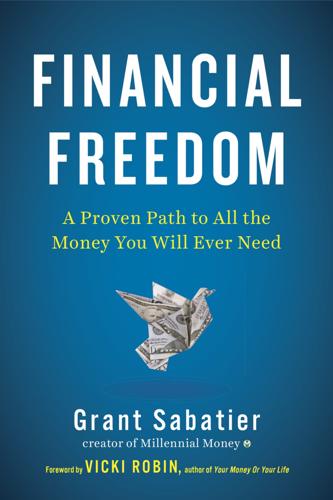
Financial Freedom: A Proven Path to All the Money You Will Ever Need
by Grant Sabatier · 5 Feb 2019 · 621pp · 123,678 words

Rick Steves Florence & Tuscany 2017
by Rick Steves · 8 Nov 2016 · 920pp · 237,085 words

The Big Nine: How the Tech Titans and Their Thinking Machines Could Warp Humanity
by Amy Webb · 5 Mar 2019 · 340pp · 97,723 words
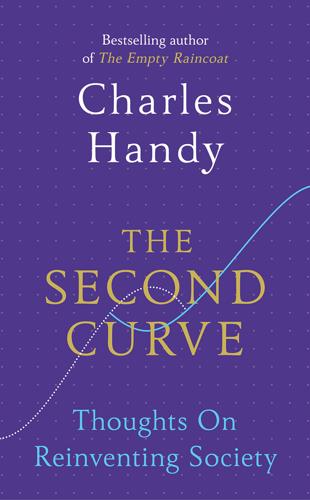
The Second Curve: Thoughts on Reinventing Society
by Charles Handy · 12 Mar 2015 · 164pp · 57,068 words
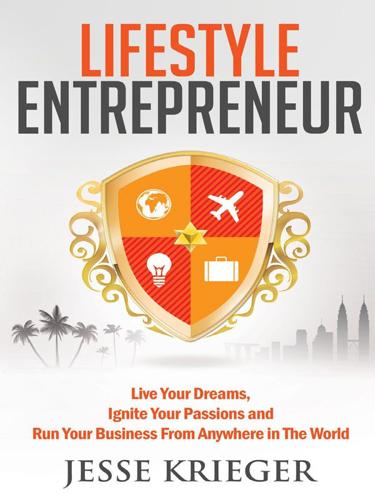
Lifestyle Entrepreneur: Live Your Dreams, Ignite Your Passions and Run Your Business From Anywhere in the World
by Jesse Krieger · 2 Jun 2014 · 189pp · 52,741 words
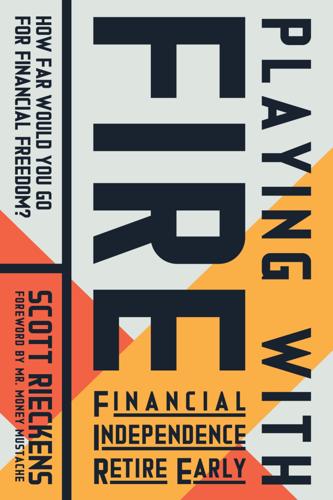
Playing With FIRE (Financial Independence Retire Early): How Far Would You Go for Financial Freedom?
by Scott Rieckens and Mr. Money Mustache · 1 Jan 2019
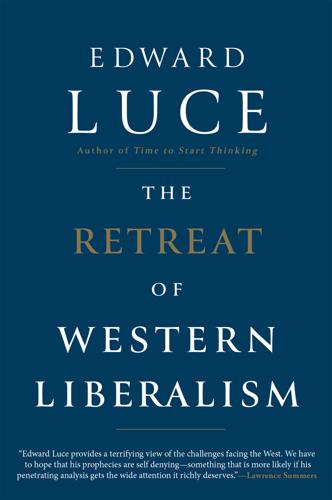
The Retreat of Western Liberalism
by Edward Luce · 20 Apr 2017 · 223pp · 58,732 words

Bali & Lombok Travel Guide
by Lonely Planet

Valley of Genius: The Uncensored History of Silicon Valley (As Told by the Hackers, Founders, and Freaks Who Made It Boom)
by Adam Fisher · 9 Jul 2018 · 611pp · 188,732 words
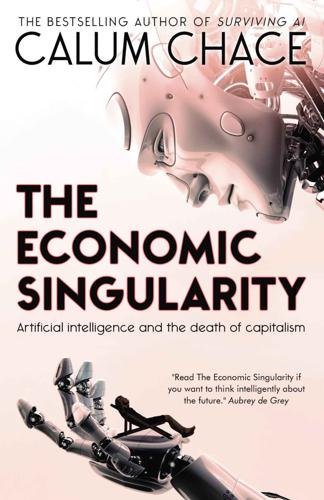
The Economic Singularity: Artificial Intelligence and the Death of Capitalism
by Calum Chace · 17 Jul 2016 · 477pp · 75,408 words

Four Futures: Life After Capitalism
by Peter Frase · 10 Mar 2015 · 121pp · 36,908 words
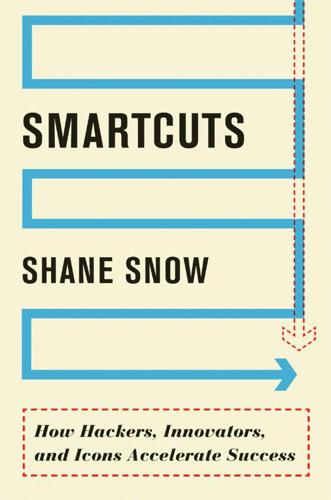
Smartcuts: How Hackers, Innovators, and Icons Accelerate Success
by Shane Snow · 8 Sep 2014 · 278pp · 70,416 words

The End of the Suburbs: Where the American Dream Is Moving
by Leigh Gallagher · 26 Jun 2013 · 296pp · 76,284 words
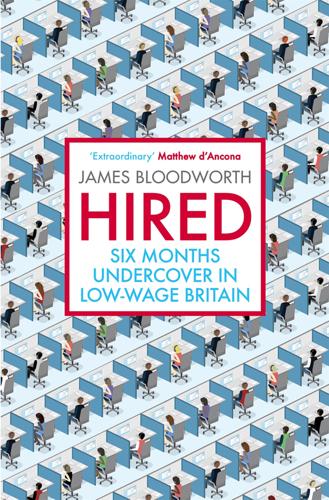
Hired: Six Months Undercover in Low-Wage Britain
by James Bloodworth · 1 Mar 2018 · 256pp · 79,075 words

Capitalism in America: A History
by Adrian Wooldridge and Alan Greenspan · 15 Oct 2018 · 585pp · 151,239 words
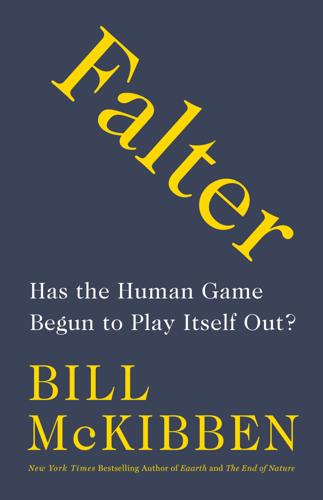
Falter: Has the Human Game Begun to Play Itself Out?
by Bill McKibben · 15 Apr 2019

Lonely Planet's Best of USA
by Lonely Planet

Come and Take It: The Gun Printer's Guide to Thinking Free
by Cody Wilson · 10 Oct 2016 · 246pp · 70,404 words
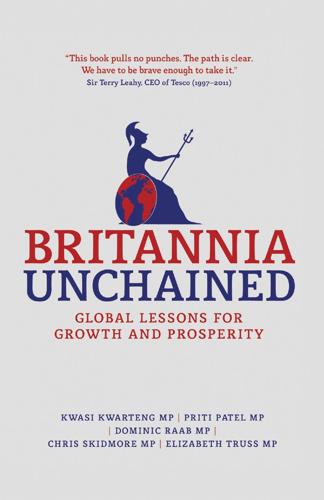
Britannia Unchained: Global Lessons for Growth and Prosperity
by Kwasi Kwarteng, Priti Patel, Dominic Raab, Chris Skidmore and Elizabeth Truss · 12 Sep 2012
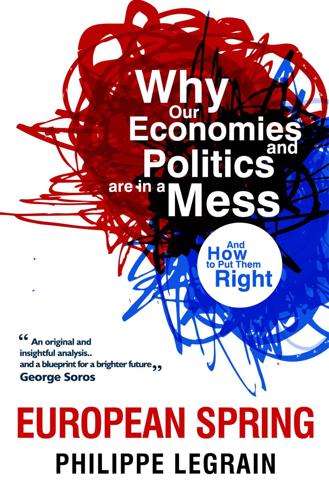
European Spring: Why Our Economies and Politics Are in a Mess - and How to Put Them Right
by Philippe Legrain · 22 Apr 2014 · 497pp · 150,205 words
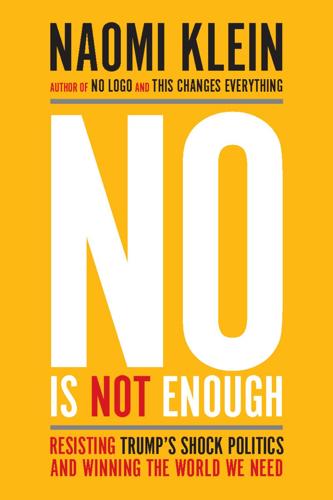
No Is Not Enough: Resisting Trump’s Shock Politics and Winning the World We Need
by Naomi Klein · 12 Jun 2017 · 357pp · 94,852 words

Unleashed
by Anne Morriss and Frances Frei · 1 Jun 2020 · 394pp · 57,287 words
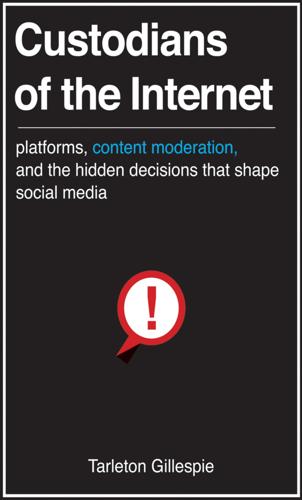
Custodians of the Internet: Platforms, Content Moderation, and the Hidden Decisions That Shape Social Media
by Tarleton Gillespie · 25 Jun 2018 · 390pp · 109,519 words

More: The 10,000-Year Rise of the World Economy
by Philip Coggan · 6 Feb 2020 · 524pp · 155,947 words

The Rough Guide to England
by Rough Guides · 29 Mar 2018
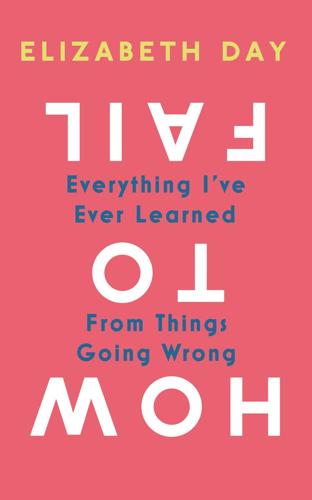
How to Fail: Everything I’ve Ever Learned From Things Going Wrong
by Elizabeth Day · 3 Apr 2019 · 284pp · 95,029 words
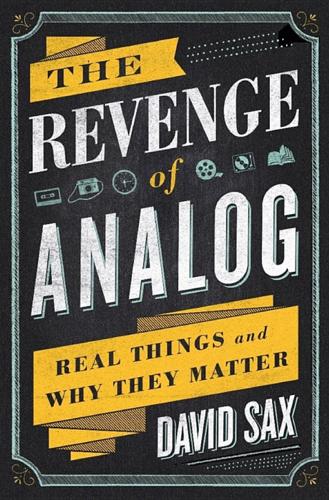
The Revenge of Analog: Real Things and Why They Matter
by David Sax · 8 Nov 2016 · 360pp · 101,038 words

Wanderland
by Jini Reddy · 29 Apr 2020 · 225pp · 74,210 words
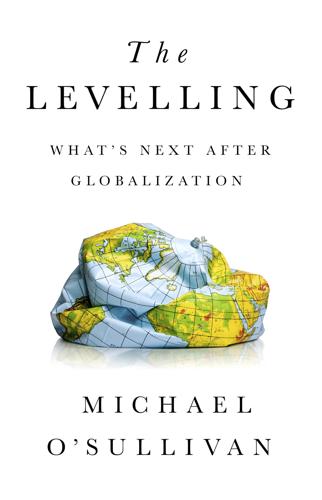
The Levelling: What’s Next After Globalization
by Michael O’sullivan · 28 May 2019 · 756pp · 120,818 words
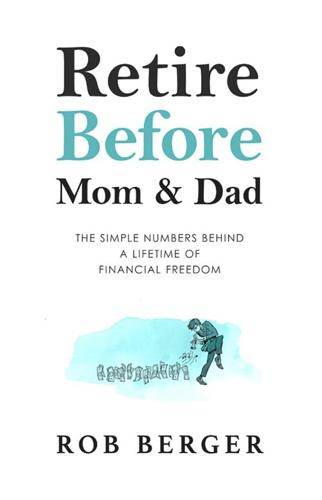
Retire Before Mom and Dad
by Rob Berger · 10 Aug 2019 · 239pp · 60,065 words
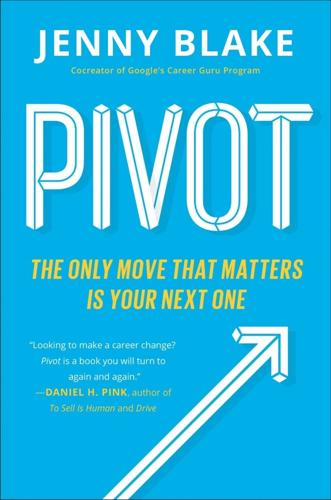
Pivot: The Only Move That Matters Is Your Next One
by Jenny Blake · 14 Jul 2016 · 292pp · 76,185 words
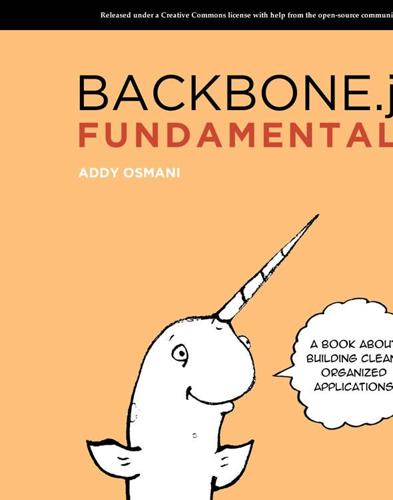
Developing Backbone.js Applications
by Addy Osmani · 21 Jul 2012 · 420pp · 79,867 words
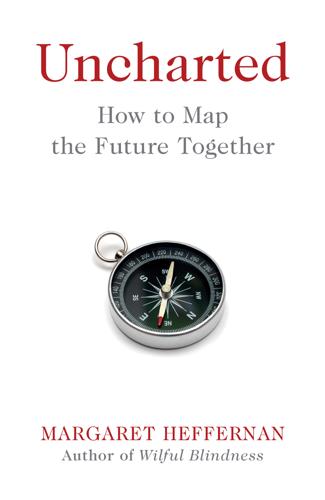
Uncharted: How to Map the Future
by Margaret Heffernan · 20 Feb 2020 · 335pp · 97,468 words
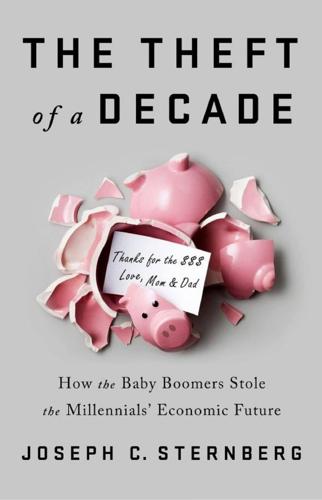
The Theft of a Decade: How the Baby Boomers Stole the Millennials' Economic Future
by Joseph C. Sternberg · 13 May 2019 · 336pp · 95,773 words

Greater: Britain After the Storm
by Penny Mordaunt and Chris Lewis · 19 May 2021 · 516pp · 116,875 words

Machine Learning Design Patterns: Solutions to Common Challenges in Data Preparation, Model Building, and MLOps
by Valliappa Lakshmanan, Sara Robinson and Michael Munn · 31 Oct 2020
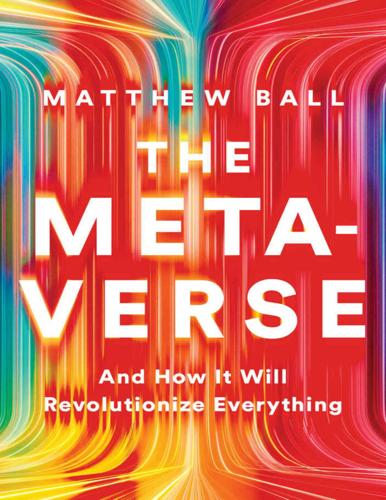
The Metaverse: And How It Will Revolutionize Everything
by Matthew Ball · 18 Jul 2022 · 412pp · 116,685 words
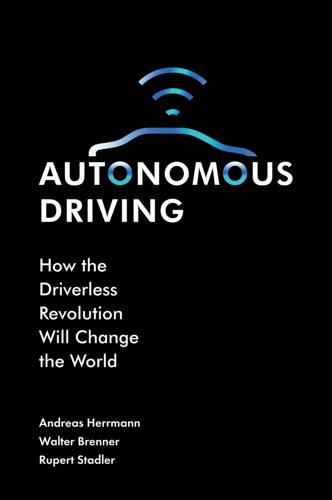
Autonomous Driving: How the Driverless Revolution Will Change the World
by Andreas Herrmann, Walter Brenner and Rupert Stadler · 25 Mar 2018
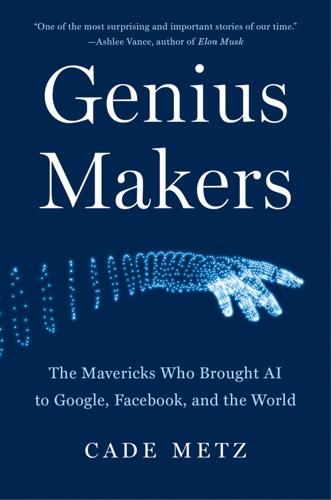
Genius Makers: The Mavericks Who Brought A. I. To Google, Facebook, and the World
by Cade Metz · 15 Mar 2021 · 414pp · 109,622 words
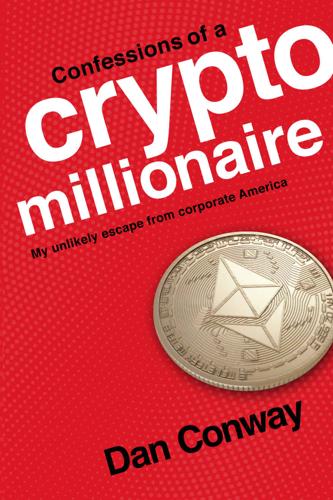
Confessions of a Crypto Millionaire: My Unlikely Escape From Corporate America
by Dan Conway · 8 Sep 2019 · 218pp · 68,648 words

Leave the World Behind
by Rumaan Alam · 15 Dec 2020 · 220pp · 66,323 words
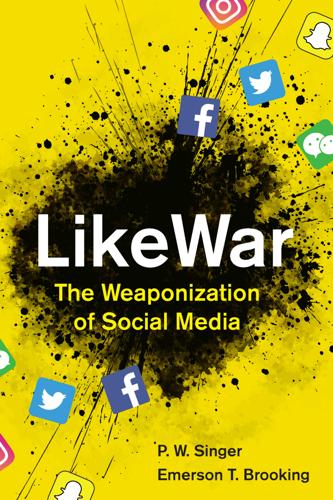
Likewar: The Weaponization of Social Media
by Peter Warren Singer and Emerson T. Brooking · 15 Mar 2018
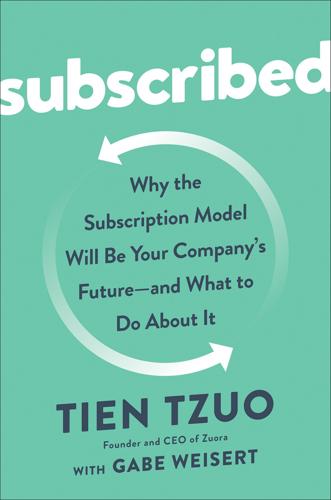
Subscribed: Why the Subscription Model Will Be Your Company's Future - and What to Do About It
by Tien Tzuo and Gabe Weisert · 4 Jun 2018 · 244pp · 66,977 words

The Rough Guide to Peru
by Rough Guides · 27 Apr 2024 · 960pp · 267,168 words
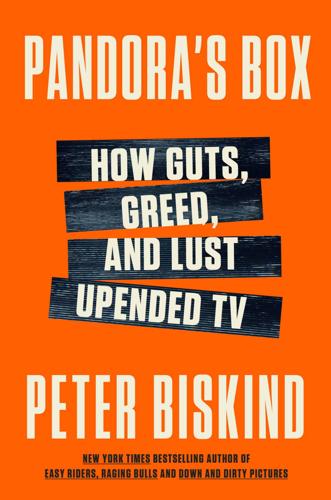
Pandora's Box: How Guts, Guile, and Greed Upended TV
by Peter Biskind · 6 Nov 2023 · 543pp · 143,084 words
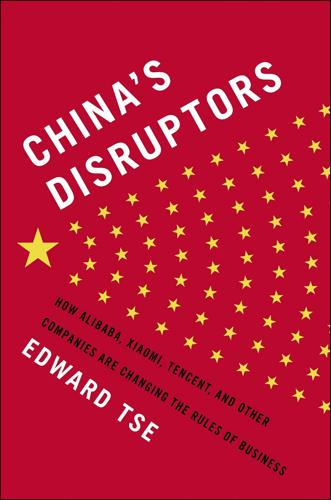
China's Disruptors: How Alibaba, Xiaomi, Tencent, and Other Companies Are Changing the Rules of Business
by Edward Tse · 13 Jul 2015 · 233pp · 64,702 words

How Money Became Dangerous
by Christopher Varelas · 15 Oct 2019 · 477pp · 144,329 words
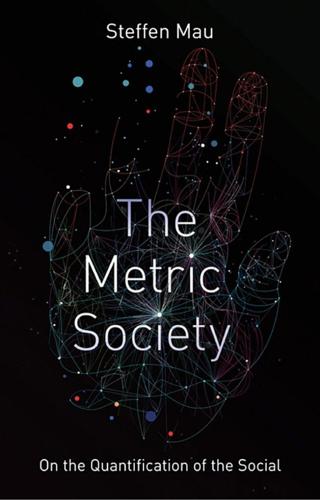
The Metric Society: On the Quantification of the Social
by Steffen Mau · 12 Jun 2017 · 254pp · 69,276 words
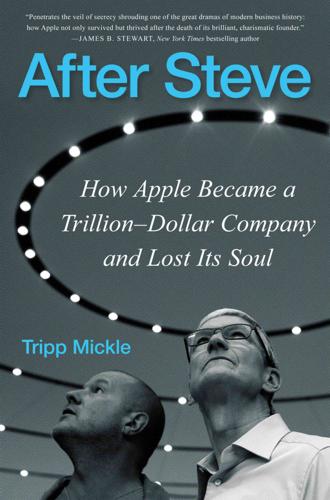
After Steve: How Apple Became a Trillion-Dollar Company and Lost Its Soul
by Tripp Mickle · 2 May 2022 · 535pp · 149,752 words

Private Equity: A Memoir
by Carrie Sun · 13 Feb 2024 · 267pp · 90,353 words

Jared Bibler
by Iceland's Secret The Untold Story of the World's Biggest Con-Harriman House (2021)

People Powered: How Communities Can Supercharge Your Business, Brand, and Teams
by Jono Bacon · 12 Nov 2019 · 302pp · 73,946 words
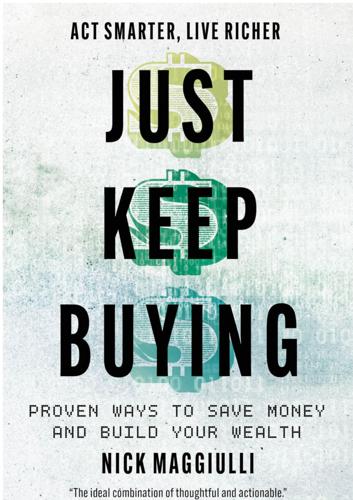
Just Keep Buying: Proven Ways to Save Money and Build Your Wealth
by Nick Maggiulli · 15 May 2022 · 287pp · 62,824 words
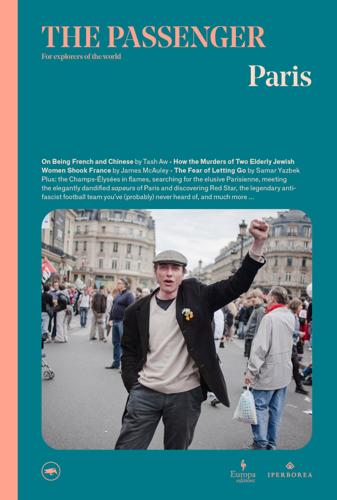
The Passenger: Paris
by AA.VV. · 26 Jun 2021 · 199pp · 62,204 words

Making It in America: The Almost Impossible Quest to Manufacture in the U.S.A. (And How It Got That Way)
by Rachel Slade · 9 Jan 2024 · 392pp · 106,044 words

Lonely Planet Cyprus
by Lonely Planet, Jessica Lee, Joe Bindloss and Josephine Quintero · 1 Feb 2018

The Rough Guide to Poland
by Rough Guides · 18 Sep 2018 · 976pp · 233,138 words

Lonely Planet Poland
by Lonely Planet · 892pp · 229,939 words
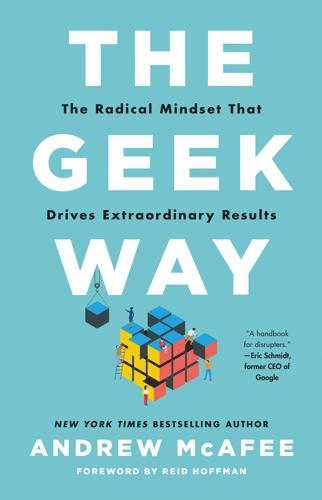
The Geek Way: The Radical Mindset That Drives Extraordinary Results
by Andrew McAfee · 14 Nov 2023 · 381pp · 113,173 words
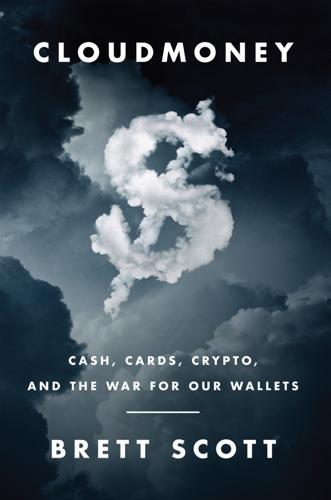
Cloudmoney: Cash, Cards, Crypto, and the War for Our Wallets
by Brett Scott · 4 Jul 2022 · 308pp · 85,850 words
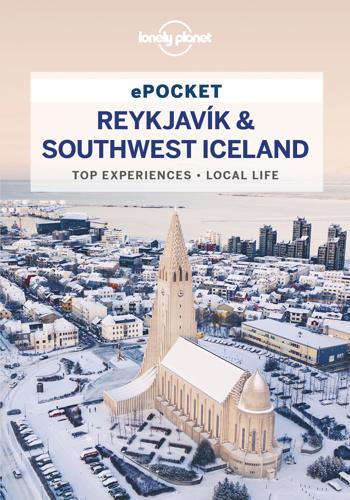
Lonely Planet Pocket Reykjavík & Southwest Iceland
by Lonely Planet · 135pp · 31,818 words

Lonely Planet Iceland
by Lonely Planet · 394pp · 104,952 words

The Rough Guide to Switzerland (Travel Guide eBook)
by Rough Guides · 24 May 2022

Lonely Planet Brazil
by Lonely Planet · 1,410pp · 363,093 words

Greece Travel Guide
by Lonely Planet

The War Came to Us: Life and Death in Ukraine
by Christopher Miller · 17 Jul 2023 · 469pp · 149,526 words

Lonely Planet Southern Italy
by Lonely Planet

Poland - Culture Smart!
by Allen, Gregory;Lipska, Magdalena;Culture Smart!; · 15 Jun 2023 · 125pp · 35,679 words

Into the Ice: The Northwest Passage, the Polar Sun, and a 175-Year-Old Mystery
by Mark Synnott · 14 Apr 2025 · 443pp · 140,219 words
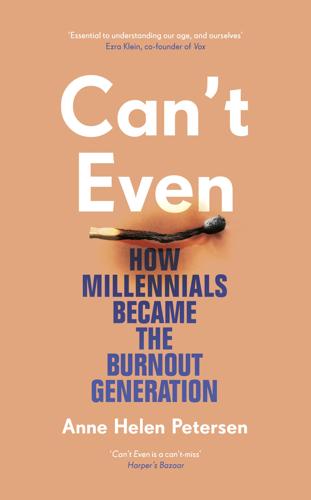
Can't Even: How Millennials Became the Burnout Generation
by Anne Helen Petersen · 14 Jan 2021 · 297pp · 88,890 words
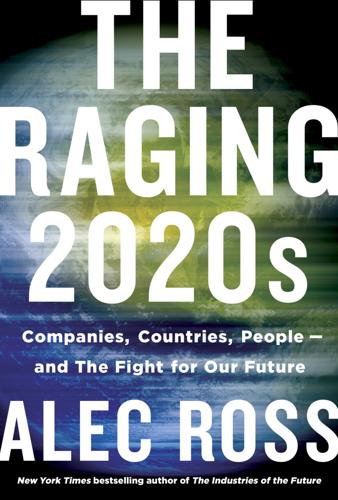
The Raging 2020s: Companies, Countries, People - and the Fight for Our Future
by Alec Ross · 13 Sep 2021 · 363pp · 109,077 words

Paper Girl: A Memoir of Home and Family in a Fractured America
by Beth Macy · 6 Oct 2025 · 373pp · 97,653 words

Enshittification: Why Everything Suddenly Got Worse and What to Do About It
by Cory Doctorow · 6 Oct 2025 · 313pp · 94,415 words

The Rough Guide to Chile & Easter Island (Travel Guide with Free eBook)
by Rough Guides · 15 Mar 2023 · 885pp · 238,165 words

The Mini Rough Guide to Budapest (Travel Guide eBook)
by Rough Guides · 1 Oct 2023 · 125pp · 32,332 words

Canary Islands Travel Guide
by Lonely Planet · 570pp · 145,712 words

Coastal California Travel Guide
by Lonely Planet

Perfection
by Vincenzo Latronico · 18 Mar 2025 · 88pp · 29,578 words

The Impossible City: A Hong Kong Memoir
by Karen Cheung · 15 Feb 2022 · 297pp · 96,945 words

The Age of Extraction: How Tech Platforms Conquered the Economy and Threaten Our Future Prosperity
by Tim Wu · 4 Nov 2025 · 246pp · 65,143 words

Arriving Today: From Factory to Front Door -- Why Everything Has Changed About How and What We Buy
by Christopher Mims · 13 Sep 2021 · 385pp · 112,842 words

Mexico City Street Food: A Travel Guide for the Curious Eater. How to Safely Enjoy the Delicious Foods From the Street Vendors of Mexico City.
by Ron Upshaw · 24 Nov 2015 · 37pp · 10,904 words

Mexico - Culture Smart!
by Maddicks, Russell;Culture Smart!; · 15 Nov 2023 · 133pp · 37,859 words

Tory Nation: The Dark Legacy of the World's Most Successful Political Party
by Samuel Earle · 3 May 2023 · 245pp · 88,158 words

A Time of Birds: Reflections on Cycling Across Europe
by Helen Moat · 26 Mar 2020 · 266pp · 85,223 words

Lonely Planet Kenya
by Lonely Planet

Nexus: A Brief History of Information Networks From the Stone Age to AI
by Yuval Noah Harari · 9 Sep 2024 · 566pp · 169,013 words
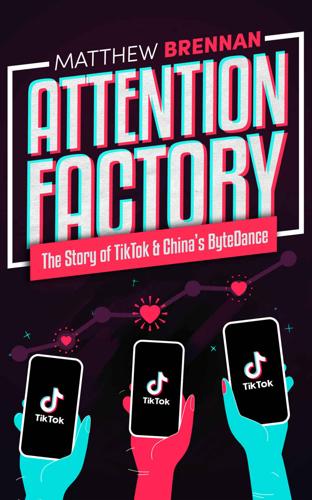
Attention Factory: The Story of TikTok and China's ByteDance
by Matthew Brennan · 9 Oct 2020 · 282pp · 63,385 words

Flying Blind: The 737 MAX Tragedy and the Fall of Boeing
by Peter Robison · 29 Nov 2021 · 382pp · 105,657 words

The Way That Leads Among the Lost: Life, Death, and Hope in Mexico City's Anexos
by Angela Garcia · 30 Apr 2024 · 271pp · 85,246 words

Tenants: The People on the Frontline of Britain's Housing Emergency
by Vicky Spratt · 18 May 2022 · 371pp · 122,273 words

Pegasus: How a Spy in Your Pocket Threatens the End of Privacy, Dignity, and Democracy
by Laurent Richard and Sandrine Rigaud · 17 Jan 2023 · 350pp · 115,802 words

Insight Guides South America (Travel Guide eBook)
by Insight Guides · 15 Dec 2022
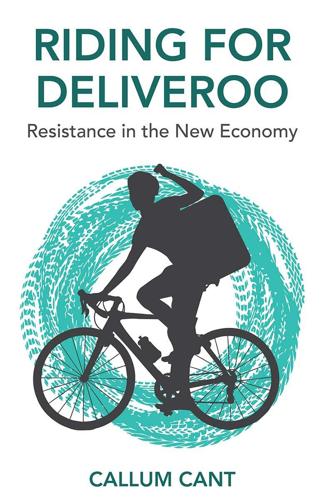
Riding for Deliveroo: Resistance in the New Economy
by Callum Cant · 11 Nov 2019 · 196pp · 55,862 words
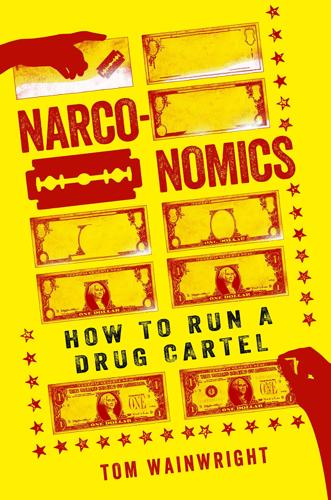
Narconomics: How to Run a Drug Cartel
by Tom Wainwright · 23 Feb 2016 · 325pp · 90,659 words

Green and Prosperous Land: A Blueprint for Rescuing the British Countryside
by Dieter Helm · 7 Mar 2019 · 348pp · 102,438 words
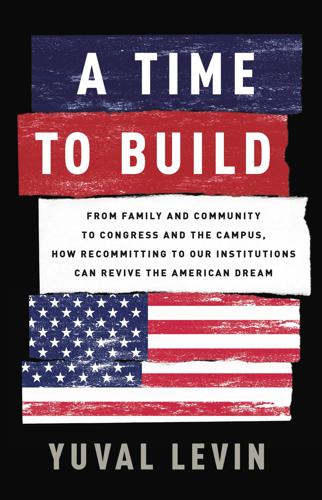
A Time to Build: From Family and Community to Congress and the Campus, How Recommitting to Our Institutions Can Revive the American Dream
by Yuval Levin · 21 Jan 2020 · 224pp · 71,060 words

Belgium - Culture Smart!: The Essential Guide to Customs & Culture
by Bernadett Varga · 14 Aug 2022
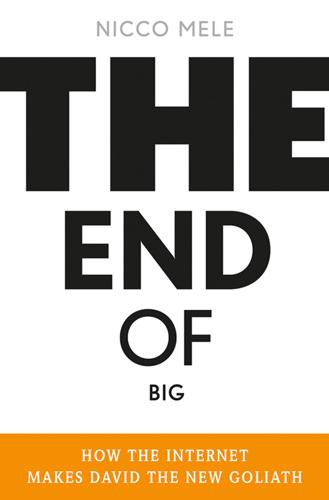
The End of Big: How the Internet Makes David the New Goliath
by Nicco Mele · 14 Apr 2013 · 270pp · 79,992 words

Makers
by Chris Anderson · 1 Oct 2012 · 238pp · 73,824 words

Madoff: The Final Word
by Richard Behar · 9 Jul 2024
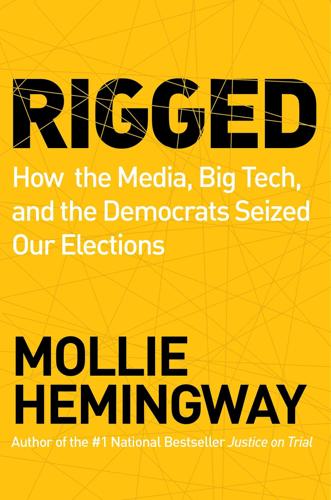
Rigged: How the Media, Big Tech, and the Democrats Seized Our Elections
by Mollie Hemingway · 11 Oct 2021 · 595pp · 143,394 words

Early Retirement Guide: 40 is the new 65
by Manish Thakur · 20 Dec 2015

Confessions of a Bookseller
by Shaun Bythell · 8 Aug 2019 · 335pp · 95,549 words

Lonely Planet Best of Hawaii
by Lonely Planet · 453pp · 79,218 words
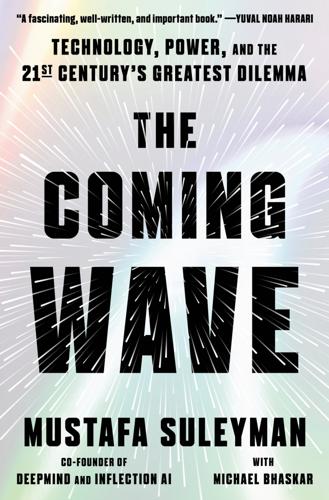
The Coming Wave: Technology, Power, and the Twenty-First Century's Greatest Dilemma
by Mustafa Suleyman · 4 Sep 2023 · 444pp · 117,770 words
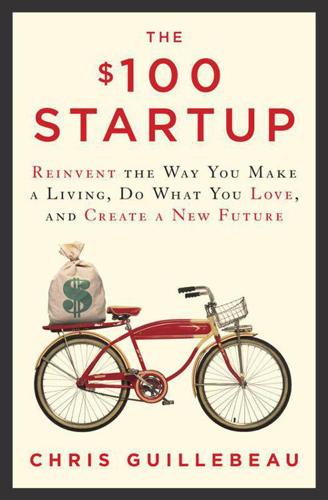
The $100 Startup: Reinvent the Way You Make a Living, Do What You Love, and Create a New Future
by Chris Guillebeau · 7 May 2012 · 248pp · 72,174 words

Lonely Planet Amsterdam
by Lonely Planet
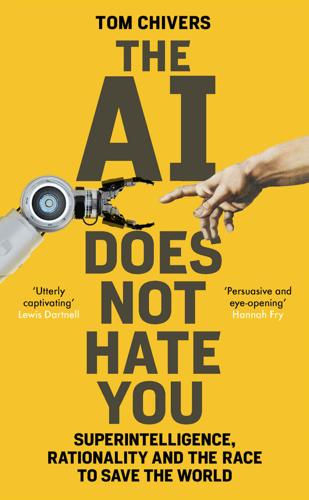
The Rationalist's Guide to the Galaxy: Superintelligent AI and the Geeks Who Are Trying to Save Humanity's Future
by Tom Chivers · 12 Jun 2019 · 289pp · 92,714 words

The Biggest Bluff: How I Learned to Pay Attention, Master Myself, and Win
by Maria Konnikova · 22 Jun 2020 · 377pp · 117,339 words
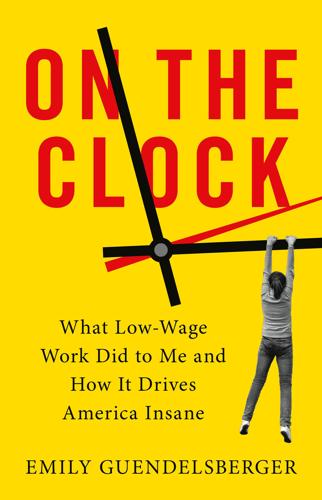
On the Clock: What Low-Wage Work Did to Me and How It Drives America Insane
by Emily Guendelsberger · 15 Jul 2019 · 382pp · 114,537 words

Fancy Bear Goes Phishing: The Dark History of the Information Age, in Five Extraordinary Hacks
by Scott J. Shapiro · 523pp · 154,042 words

Nobody's Fool: Why We Get Taken in and What We Can Do About It
by Daniel Simons and Christopher Chabris · 10 Jul 2023 · 338pp · 104,815 words

Late Bloomers: The Power of Patience in a World Obsessed With Early Achievement
by Rich Karlgaard · 15 Apr 2019 · 321pp · 92,828 words
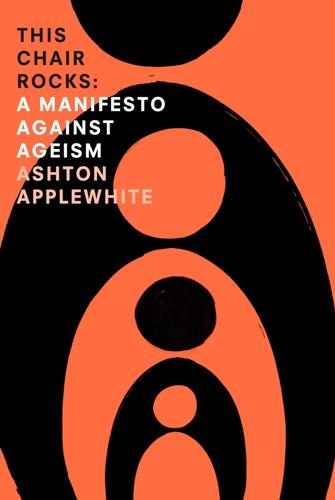
This Chair Rocks: A Manifiesto Against Ageism
by Ashton Applewhite · 10 Feb 2016 · 312pp · 84,421 words
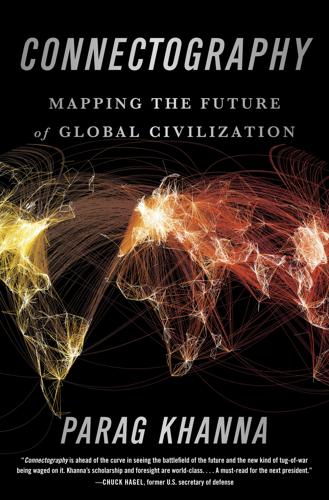
Connectography: Mapping the Future of Global Civilization
by Parag Khanna · 18 Apr 2016 · 497pp · 144,283 words

Driverless Cars: On a Road to Nowhere
by Christian Wolmar · 18 Jan 2018

The Breakup Monologues: The Unexpected Joy of Heartbreak
by Rosie Wilby · 26 May 2021 · 227pp · 67,264 words

Lonely Planet Washington, Oregon & the Pacific Northwest
by Lonely Planet · 1,006pp · 243,928 words

The Premonition: A Pandemic Story
by Michael Lewis · 3 May 2021 · 285pp · 98,832 words

Worn: A People's History of Clothing
by Sofi Thanhauser · 25 Jan 2022 · 592pp · 133,460 words
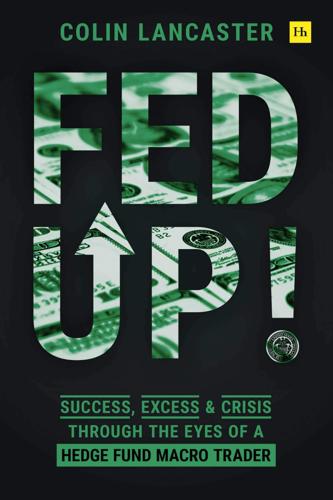
Fed Up!: Success, Excess and Crisis Through the Eyes of a Hedge Fund Macro Trader
by Colin Lancaster · 3 May 2021 · 245pp · 75,397 words
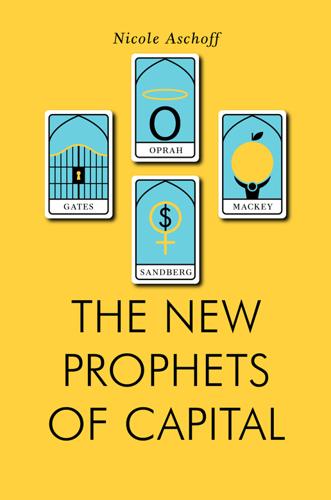
The New Prophets of Capital
by Nicole Aschoff · 10 Mar 2015 · 128pp · 38,187 words
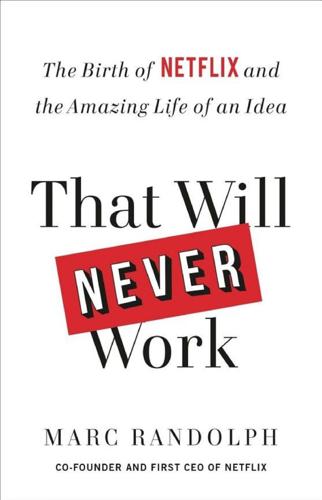
That Will Never Work: The Birth of Netflix and the Amazing Life of an Idea
by Marc Randolph · 16 Sep 2019 · 334pp · 102,899 words
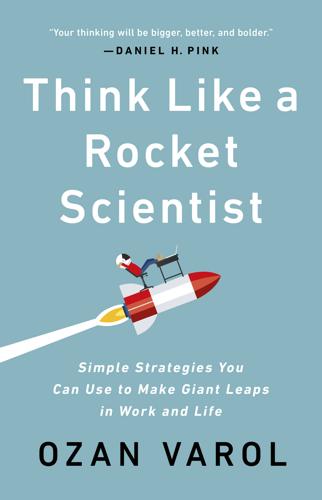
Think Like a Rocket Scientist: Simple Strategies You Can Use to Make Giant Leaps in Work and Life
by Ozan Varol · 13 Apr 2020 · 389pp · 112,319 words

Underwater: How Our American Dream of Homeownership Became a Nightmare
by Ryan Dezember · 13 Jul 2020 · 279pp · 87,875 words

Makers at Work: Folks Reinventing the World One Object or Idea at a Time
by Steven Osborn · 17 Sep 2013 · 310pp · 34,482 words

Socialism Sucks: Two Economists Drink Their Way Through the Unfree World
by Robert Lawson and Benjamin Powell · 29 Jul 2019 · 164pp · 44,947 words
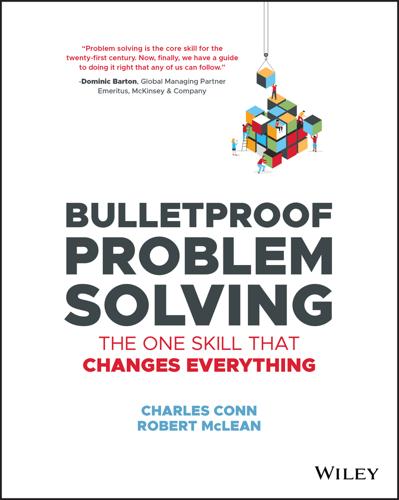
Bulletproof Problem Solving
by Charles Conn and Robert McLean · 6 Mar 2019

Monolith to Microservices: Evolutionary Patterns to Transform Your Monolith
by Sam Newman · 14 Nov 2019 · 355pp · 81,788 words
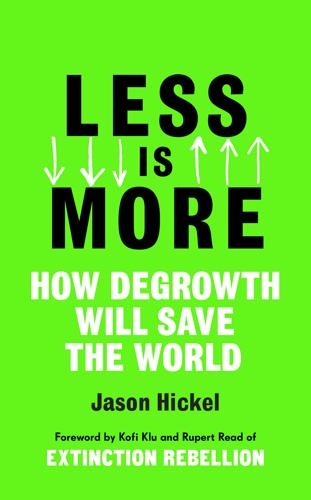
Less Is More: How Degrowth Will Save the World
by Jason Hickel · 12 Aug 2020 · 286pp · 87,168 words
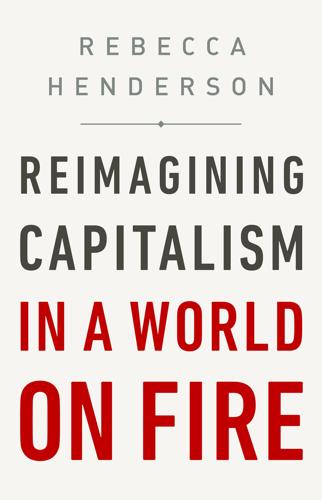
Reimagining Capitalism in a World on Fire
by Rebecca Henderson · 27 Apr 2020 · 330pp · 99,044 words

Meet the Frugalwoods: Achieving Financial Independence Through Simple Living
by Elizabeth Willard Thames · 6 Mar 2018 · 179pp · 59,704 words
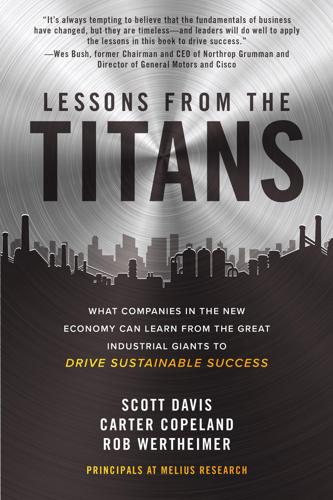
Lessons from the Titans: What Companies in the New Economy Can Learn from the Great Industrial Giants to Drive Sustainable Success
by Scott Davis, Carter Copeland and Rob Wertheimer · 13 Jul 2020 · 372pp · 101,678 words
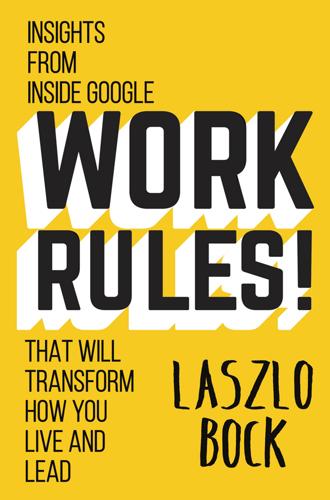
Work Rules!: Insights From Inside Google That Will Transform How You Live and Lead
by Laszlo Bock · 31 Mar 2015 · 387pp · 119,409 words

This Is How They Tell Me the World Ends: The Cyberweapons Arms Race
by Nicole Perlroth · 9 Feb 2021 · 651pp · 186,130 words
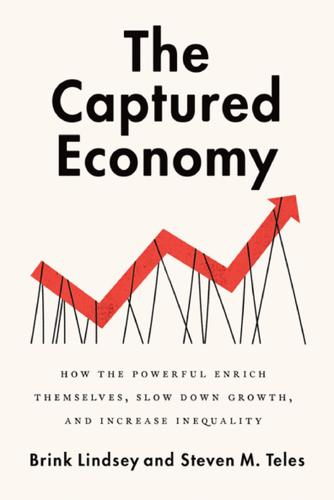
The Captured Economy: How the Powerful Enrich Themselves, Slow Down Growth, and Increase Inequality
by Brink Lindsey · 12 Oct 2017 · 288pp · 64,771 words
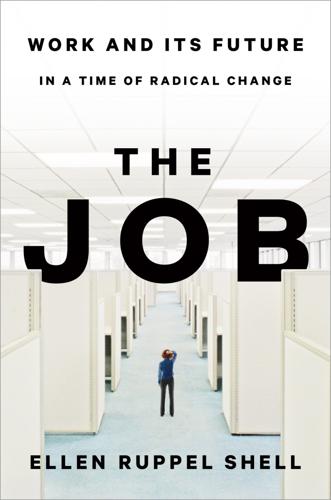
The Job: The Future of Work in the Modern Era
by Ellen Ruppel Shell · 22 Oct 2018 · 402pp · 126,835 words

Information Doesn't Want to Be Free: Laws for the Internet Age
by Cory Doctorow, Amanda Palmer and Neil Gaiman · 18 Nov 2014 · 170pp · 51,205 words
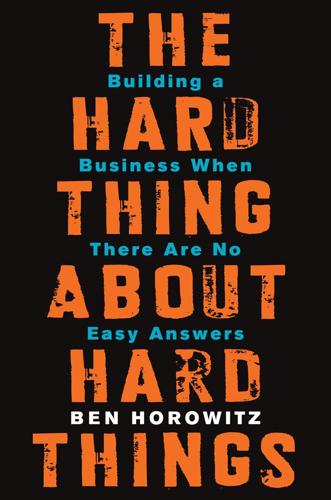
The Hard Thing About Hard Things: Building a Business When There Are No Easy Answers
by Ben Horowitz · 4 Mar 2014 · 270pp · 79,068 words
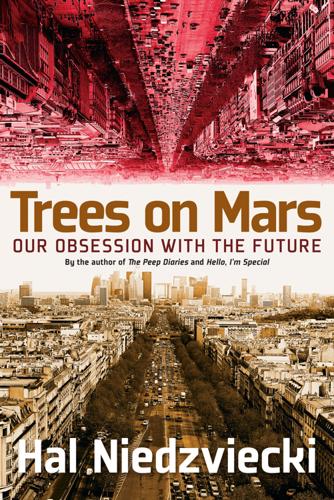
Trees on Mars: Our Obsession With the Future
by Hal Niedzviecki · 15 Mar 2015 · 343pp · 102,846 words

You'll Grow Out of It
by Jessi Klein · 11 Jul 2016 · 219pp · 73,623 words

Bitcoin for the Befuddled
by Conrad Barski · 13 Nov 2014 · 273pp · 72,024 words
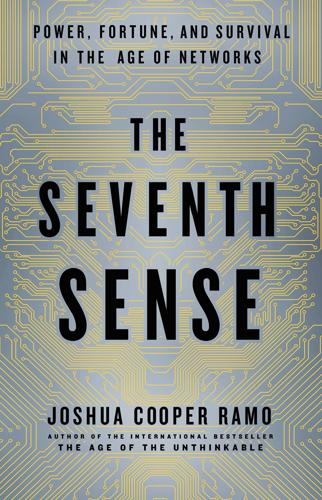
The Seventh Sense: Power, Fortune, and Survival in the Age of Networks
by Joshua Cooper Ramo · 16 May 2016 · 326pp · 103,170 words

Surveillance Valley: The Rise of the Military-Digital Complex
by Yasha Levine · 6 Feb 2018 · 474pp · 130,575 words

The Best Interface Is No Interface: The Simple Path to Brilliant Technology (Voices That Matter)
by Golden Krishna · 10 Feb 2015 · 271pp · 62,538 words

A Curious Mind: The Secret to a Bigger Life
by Brian Grazer and Charles Fishman · 6 Apr 2014 · 302pp · 74,878 words
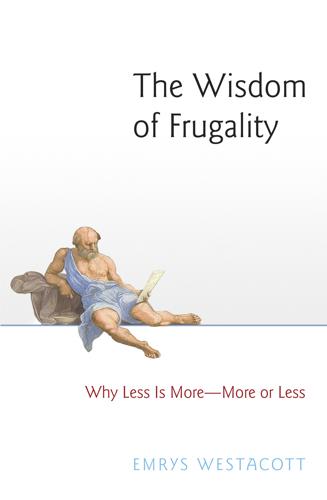
The Wisdom of Frugality: Why Less Is More - More or Less
by Emrys Westacott · 14 Apr 2016 · 287pp · 80,050 words
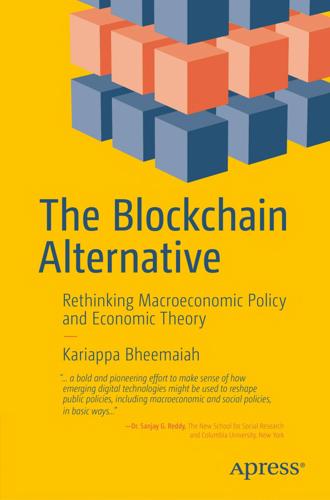
The Blockchain Alternative: Rethinking Macroeconomic Policy and Economic Theory
by Kariappa Bheemaiah · 26 Feb 2017 · 492pp · 118,882 words
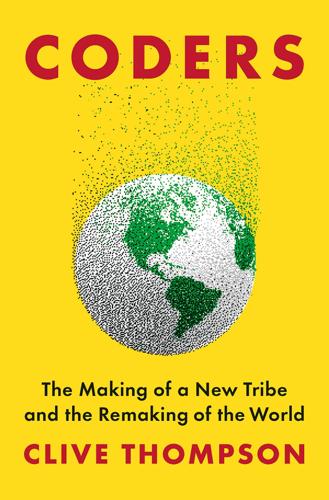
Coders: The Making of a New Tribe and the Remaking of the World
by Clive Thompson · 26 Mar 2019 · 499pp · 144,278 words
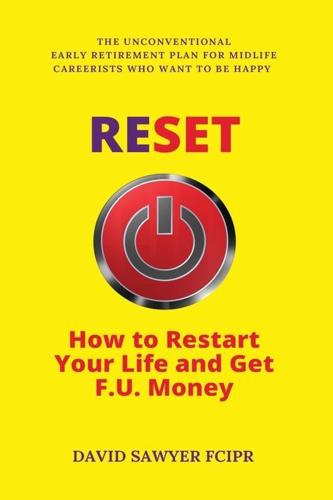
Reset: How to Restart Your Life and Get F.U. Money: The Unconventional Early Retirement Plan for Midlife Careerists Who Want to Be Happy
by David Sawyer · 17 Aug 2018 · 572pp · 94,002 words
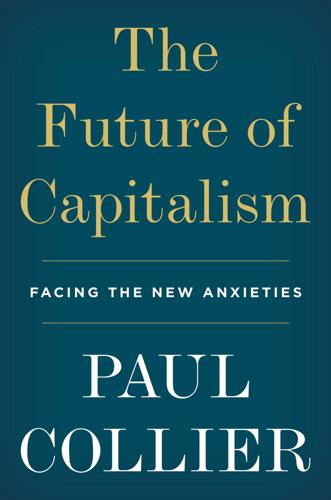
The Future of Capitalism: Facing the New Anxieties
by Paul Collier · 4 Dec 2018 · 310pp · 85,995 words
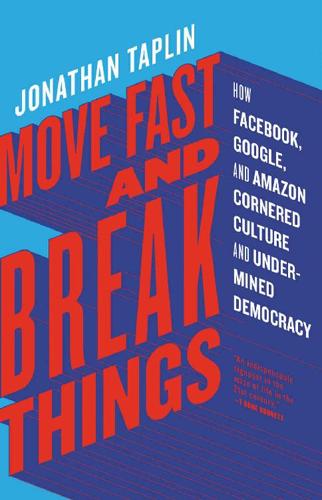
Move Fast and Break Things: How Facebook, Google, and Amazon Cornered Culture and Undermined Democracy
by Jonathan Taplin · 17 Apr 2017 · 222pp · 70,132 words

Insane Mode: How Elon Musk's Tesla Sparked an Electric Revolution to End the Age of Oil
by Hamish McKenzie · 30 Sep 2017 · 307pp · 90,634 words
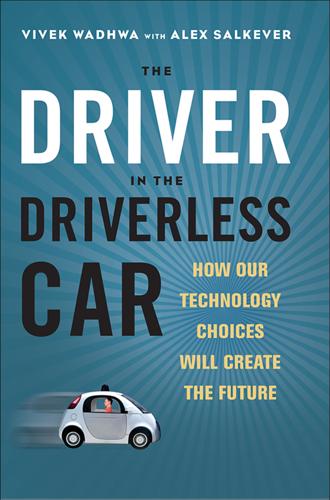
The Driver in the Driverless Car: How Our Technology Choices Will Create the Future
by Vivek Wadhwa and Alex Salkever · 2 Apr 2017 · 181pp · 52,147 words
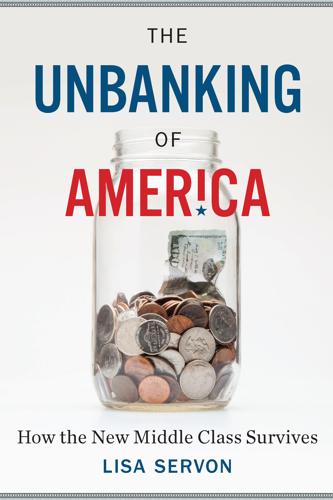
The Unbanking of America: How the New Middle Class Survives
by Lisa Servon · 10 Jan 2017 · 279pp · 76,796 words
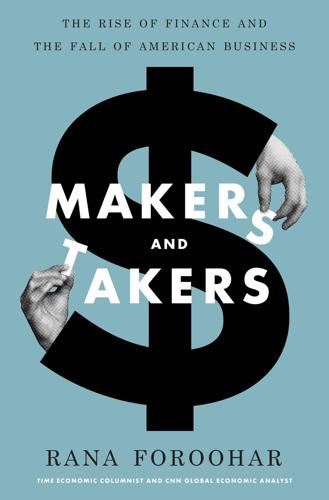
Makers and Takers: The Rise of Finance and the Fall of American Business
by Rana Foroohar · 16 May 2016 · 515pp · 132,295 words
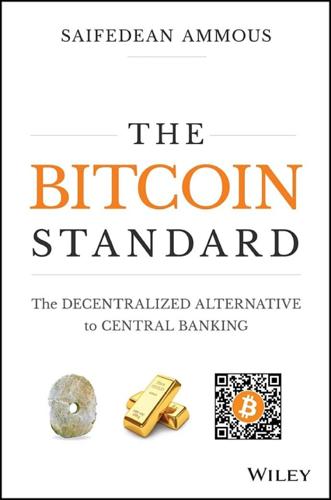
The Bitcoin Standard: The Decentralized Alternative to Central Banking
by Saifedean Ammous · 23 Mar 2018 · 571pp · 106,255 words
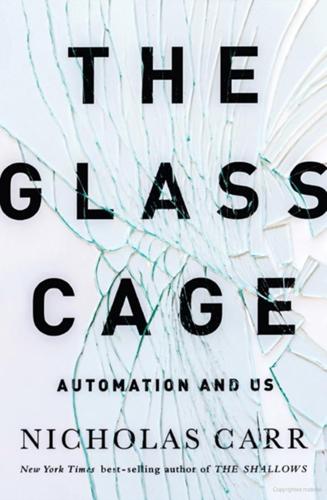
The Glass Cage: Automation and Us
by Nicholas Carr · 28 Sep 2014 · 308pp · 84,713 words
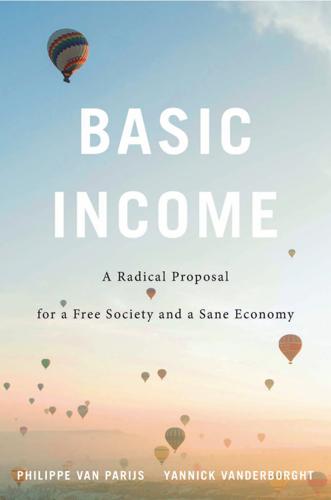
Basic Income: A Radical Proposal for a Free Society and a Sane Economy
by Philippe van Parijs and Yannick Vanderborght · 20 Mar 2017
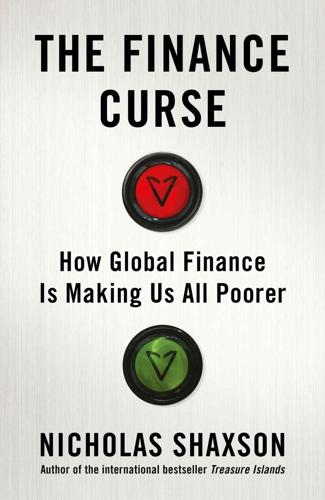
The Finance Curse: How Global Finance Is Making Us All Poorer
by Nicholas Shaxson · 10 Oct 2018 · 482pp · 149,351 words
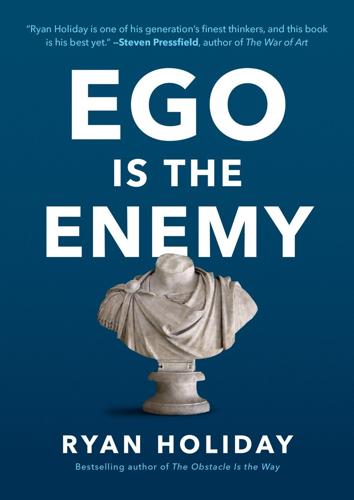
Ego Is the Enemy
by Ryan Holiday · 13 Jun 2016 · 177pp · 54,421 words

Vue.js
by Callum Macrae · 23 Feb 2018 · 296pp · 41,381 words
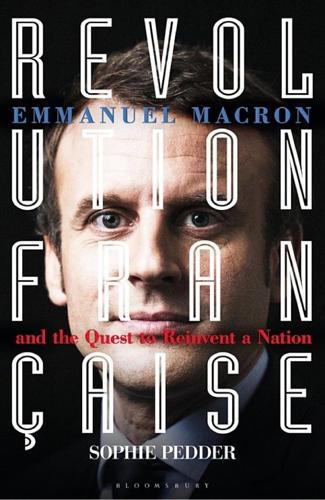
Revolution Française: Emmanuel Macron and the Quest to Reinvent a Nation
by Sophie Pedder · 20 Jun 2018 · 337pp · 101,440 words
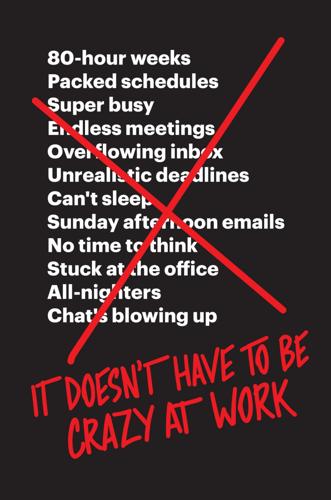
It Doesn't Have to Be Crazy at Work
by Jason Fried and David Heinemeier Hansson · 1 Oct 2018 · 117pp · 30,538 words

Messy: The Power of Disorder to Transform Our Lives
by Tim Harford · 3 Oct 2016 · 349pp · 95,972 words
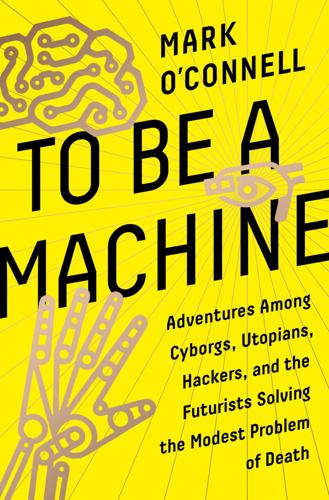
To Be a Machine: Adventures Among Cyborgs, Utopians, Hackers, and the Futurists Solving the Modest Problem of Death
by Mark O'Connell · 28 Feb 2017 · 252pp · 79,452 words

Powerhouse: The Untold Story of Hollywood's Creative Artists Agency
by James Andrew Miller · 8 Aug 2016 · 790pp · 253,035 words
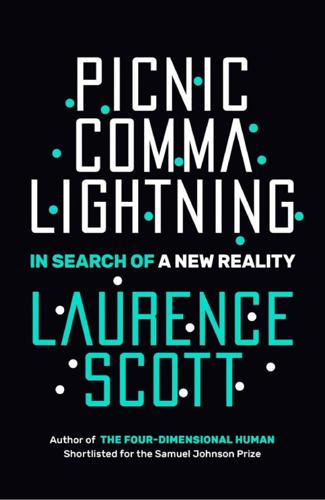
Picnic Comma Lightning: In Search of a New Reality
by Laurence Scott · 11 Jul 2018 · 244pp · 81,334 words
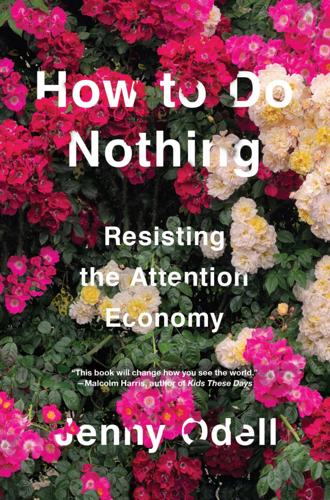
How to Do Nothing
by Jenny Odell · 8 Apr 2019 · 243pp · 76,686 words
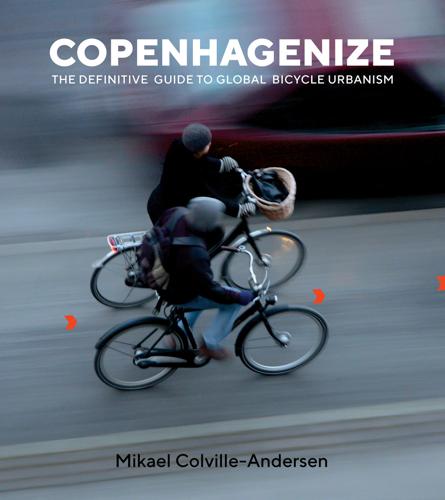
Copenhagenize: The Definitive Guide to Global Bicycle Urbanism
by Mikael Colville-Andersen · 28 Mar 2018 · 293pp · 90,714 words
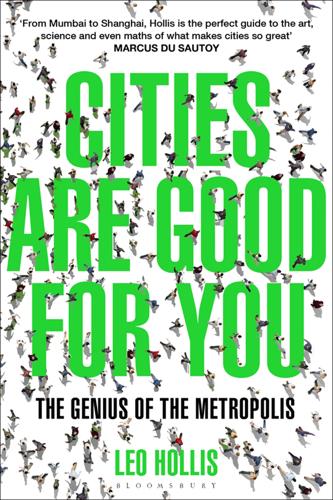
Cities Are Good for You: The Genius of the Metropolis
by Leo Hollis · 31 Mar 2013 · 385pp · 118,314 words
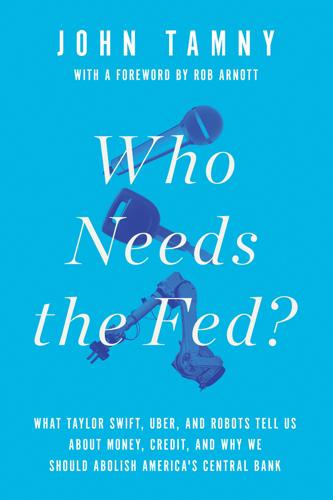
Who Needs the Fed?: What Taylor Swift, Uber, and Robots Tell Us About Money, Credit, and Why We Should Abolish America's Central Bank
by John Tamny · 30 Apr 2016 · 268pp · 74,724 words

The Other Americans
by Laila Lalami · 26 Mar 2019 · 324pp · 104,934 words
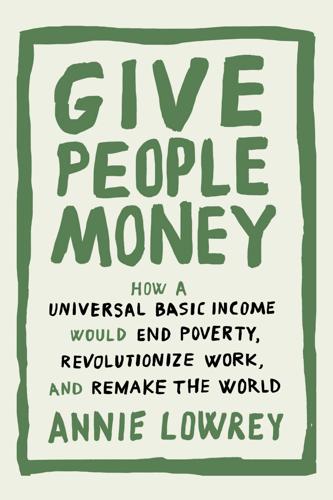
Give People Money
by Annie Lowrey · 10 Jul 2018 · 242pp · 73,728 words

Utopia Is Creepy: And Other Provocations
by Nicholas Carr · 5 Sep 2016 · 391pp · 105,382 words
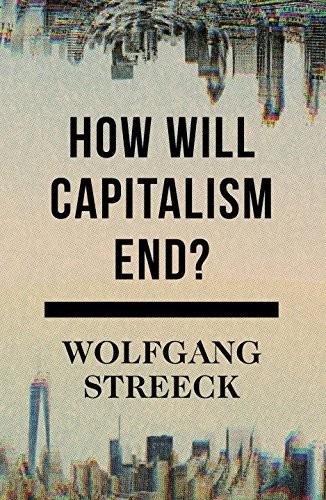
How Will Capitalism End?
by Wolfgang Streeck · 8 Nov 2016 · 424pp · 115,035 words
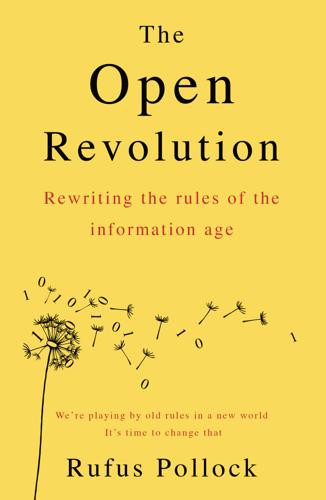
The Open Revolution: New Rules for a New World
by Rufus Pollock · 29 May 2018 · 105pp · 34,444 words
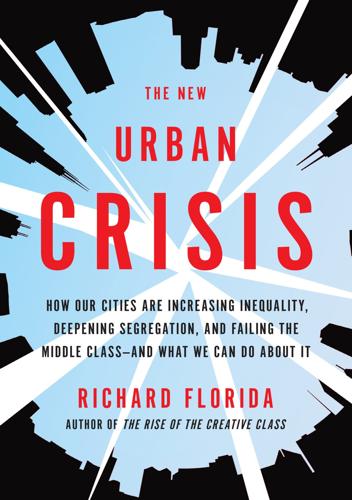
The New Urban Crisis: How Our Cities Are Increasing Inequality, Deepening Segregation, and Failing the Middle Class?and What We Can Do About It
by Richard Florida · 9 May 2016 · 356pp · 91,157 words
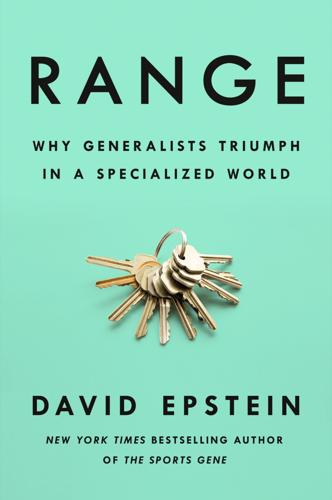
Range: Why Generalists Triumph in a Specialized World
by David Epstein · 1 Mar 2019 · 406pp · 109,794 words

Before Babylon, Beyond Bitcoin: From Money That We Understand to Money That Understands Us (Perspectives)
by David Birch · 14 Jun 2017 · 275pp · 84,980 words
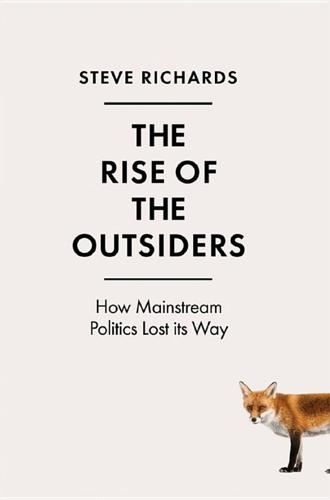
The Rise of the Outsiders: How Mainstream Politics Lost Its Way
by Steve Richards · 14 Jun 2017 · 323pp · 95,492 words

Bourgeois Dignity: Why Economics Can't Explain the Modern World
by Deirdre N. McCloskey · 15 Nov 2011 · 1,205pp · 308,891 words
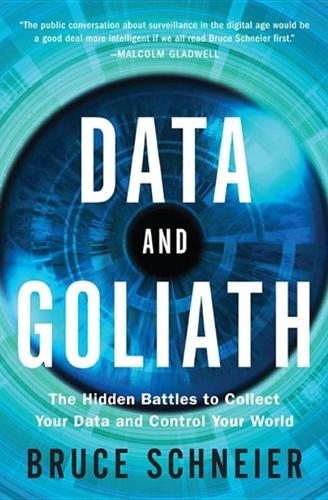
Data and Goliath: The Hidden Battles to Collect Your Data and Control Your World
by Bruce Schneier · 2 Mar 2015 · 598pp · 134,339 words
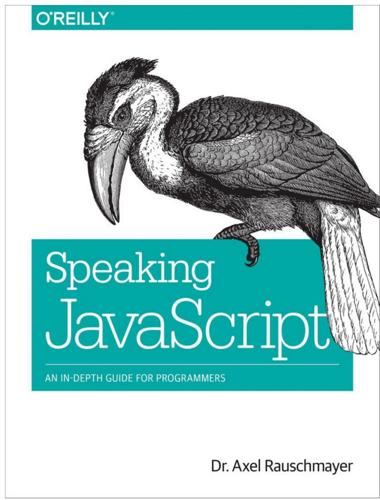
Speaking JavaScript: An In-Depth Guide for Programmers
by Axel Rauschmayer · 25 Feb 2014 · 692pp · 95,244 words
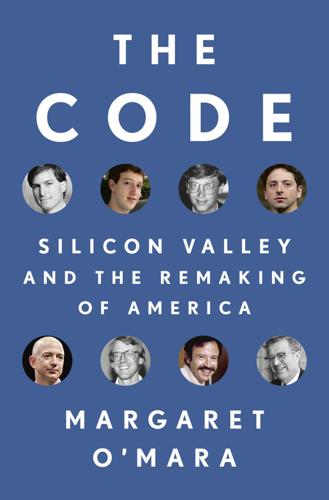
The Code: Silicon Valley and the Remaking of America
by Margaret O'Mara · 8 Jul 2019

Breathtaking: Inside the NHS in a Time of Pandemic
by Rachel Clarke · 26 Jan 2021 · 199pp · 63,844 words

Goodbye, Things: The New Japanese Minimalism
by Fumio Sasaki · 10 Apr 2017 · 167pp · 49,719 words
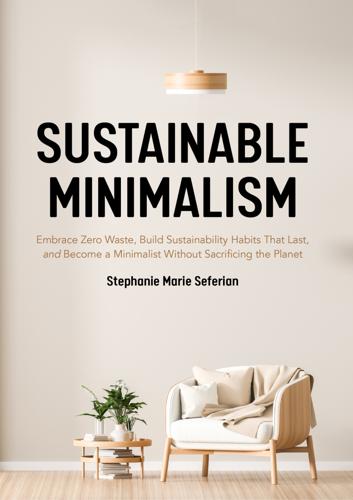
Sustainable Minimalism: Embrace Zero Waste, Build Sustainability Habits That Last, and Become a Minimalist Without Sacrificing the Planet (Green Housecleaning, Zero Waste Living)
by Stephanie Marie Seferian · 19 Jan 2021

Minimal: How to Simplify Your Life and Live Sustainably
by Madeleine Olivia · 9 Jan 2020 · 306pp · 71,100 words
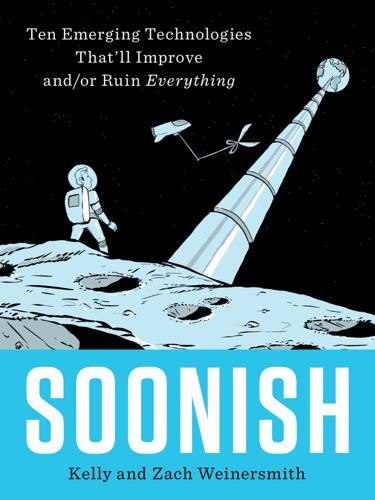
Soonish: Ten Emerging Technologies That'll Improve And/or Ruin Everything
by Kelly Weinersmith and Zach Weinersmith · 16 Oct 2017 · 398pp · 105,032 words
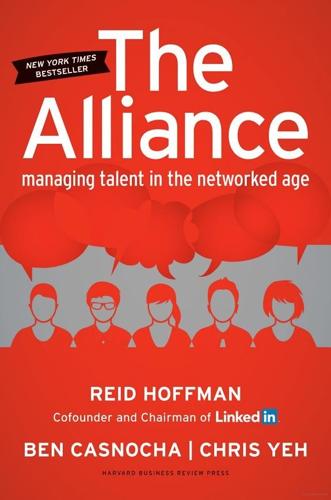
The Alliance: Managing Talent in the Networked Age
by Reid Hoffman, Ben Casnocha and Chris Yeh · 15 Jan 2014 · 102pp · 29,596 words

Chasing the Scream: The First and Last Days of the War on Drugs
by Johann Hari · 20 Jan 2015 · 513pp · 141,963 words
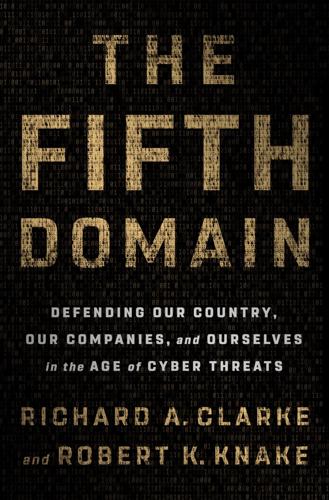
The Fifth Domain: Defending Our Country, Our Companies, and Ourselves in the Age of Cyber Threats
by Richard A. Clarke and Robert K. Knake · 15 Jul 2019 · 409pp · 112,055 words
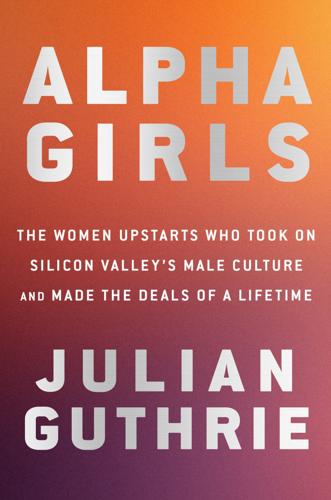
Alpha Girls: The Women Upstarts Who Took on Silicon Valley's Male Culture and Made the Deals of a Lifetime
by Julian Guthrie · 15 Nov 2019
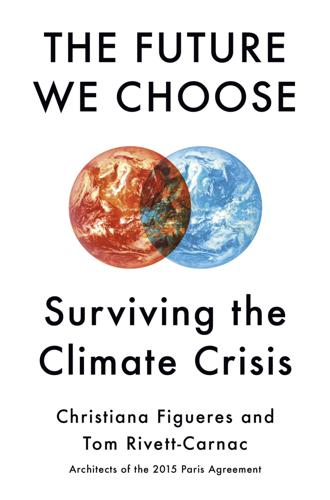
The Future We Choose: Surviving the Climate Crisis
by Christiana Figueres and Tom Rivett-Carnac · 25 Feb 2020 · 197pp · 49,296 words

Slow
by Brooke McAlary · 22 Aug 2017 · 149pp · 44,375 words
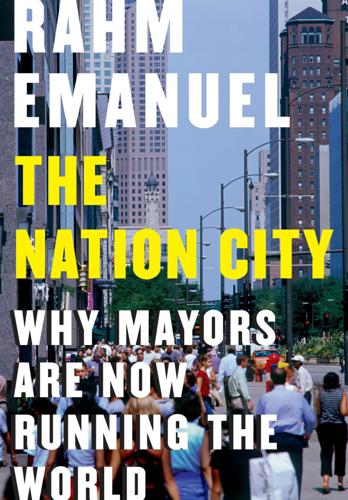
The Nation City: Why Mayors Are Now Running the World
by Rahm Emanuel · 25 Feb 2020 · 212pp · 69,846 words
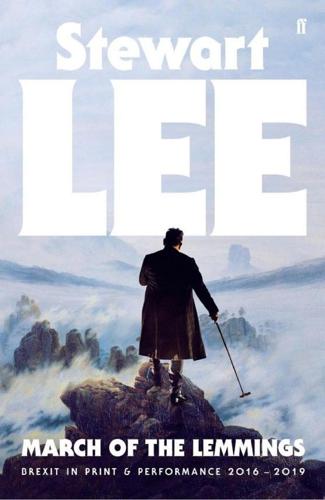
March of the Lemmings: Brexit in Print and Performance 2016–2019
by Stewart Lee · 2 Sep 2019 · 382pp · 117,536 words

API Marketplace Engineering: Design, Build, and Run a Platform for External Developers
by Rennay Dorasamy · 2 Dec 2021 · 328pp · 77,877 words
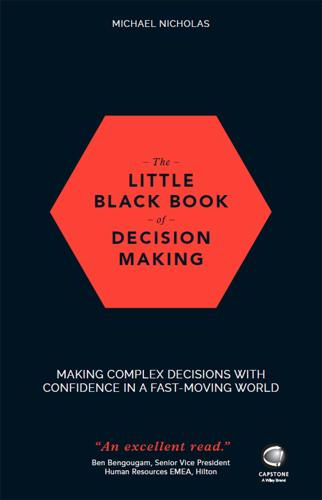
The Little Black Book of Decision Making
by Michael Nicholas · 21 Jun 2017
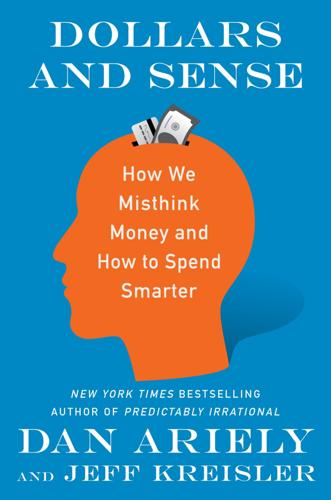
Dollars and Sense: How We Misthink Money and How to Spend Smarter
by Dr. Dan Ariely and Jeff Kreisler · 7 Nov 2017 · 302pp · 87,776 words

Fodor's Big Island of Hawaii
by Fodor’s Travel Guides · 1 Aug 2022
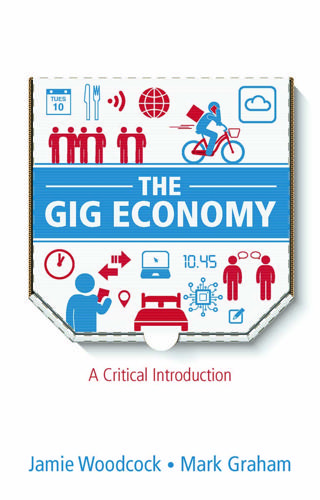
The Gig Economy: A Critical Introduction
by Jamie Woodcock and Mark Graham · 17 Jan 2020 · 207pp · 59,298 words

The Docker Book
by James Turnbull · 13 Jul 2014 · 265pp · 60,880 words
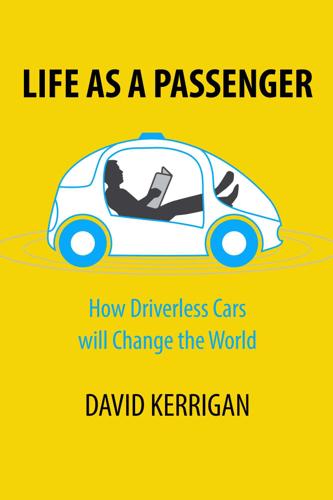
Life as a Passenger: How Driverless Cars Will Change the World
by David Kerrigan · 18 Jun 2017 · 472pp · 80,835 words
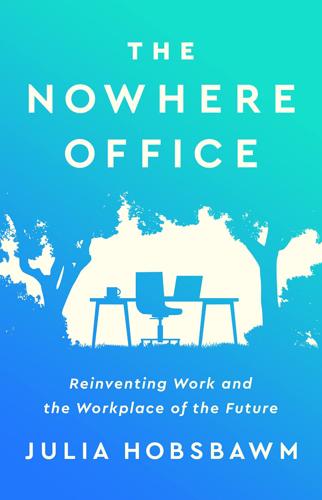
The Nowhere Office: Reinventing Work and the Workplace of the Future
by Julia Hobsbawm · 11 Apr 2022 · 172pp · 50,777 words

Lonely Planet Pocket Vienna
by Lonely Planet · 135pp · 33,344 words
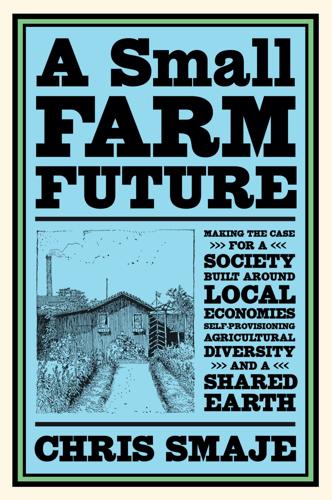
A Small Farm Future: Making the Case for a Society Built Around Local Economies, Self-Provisioning, Agricultural Diversity and a Shared Earth
by Chris Smaje · 14 Aug 2020 · 375pp · 105,586 words

Applied Artificial Intelligence: A Handbook for Business Leaders
by Mariya Yao, Adelyn Zhou and Marlene Jia · 1 Jun 2018 · 161pp · 39,526 words

Imaginable: How to See the Future Coming and Feel Ready for Anything―Even Things That Seem Impossible Today
by Jane McGonigal · 22 Mar 2022 · 420pp · 135,569 words

The Future Is Asian
by Parag Khanna · 5 Feb 2019 · 496pp · 131,938 words

Good Economics for Hard Times: Better Answers to Our Biggest Problems
by Abhijit V. Banerjee and Esther Duflo · 12 Nov 2019 · 470pp · 148,730 words
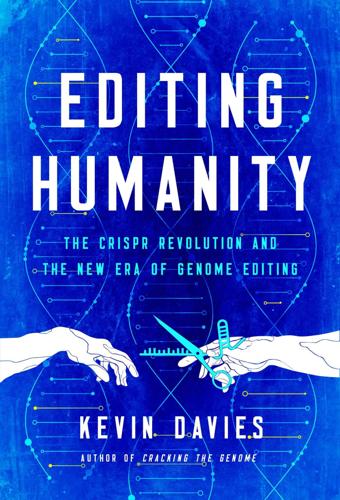
Editing Humanity: The CRISPR Revolution and the New Era of Genome Editing
by Kevin Davies · 5 Oct 2020 · 741pp · 164,057 words

Mortimer & Whitehouse: Gone Fishing: Life, Death and the Thrill of the Catch
by Bob Mortimer and Paul Whitehouse · 29 May 2019 · 209pp · 66,756 words

Pocket Rough Guide Berlin (Travel Guide eBook)
by Rough Guides · 16 Oct 2019 · 212pp · 49,082 words
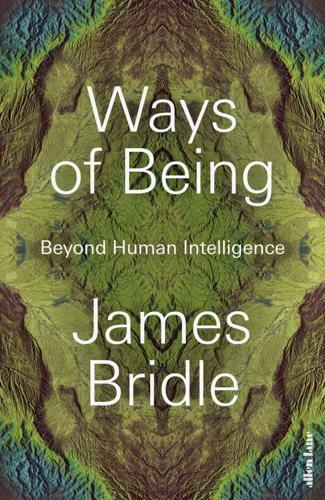
Ways of Being: Beyond Human Intelligence
by James Bridle · 6 Apr 2022 · 502pp · 132,062 words

The Rough Guide to Berlin
by Rough Guides · 550pp · 151,946 words

The Heat Will Kill You First: Life and Death on a Scorched Planet
by Jeff Goodell · 10 Jul 2023 · 347pp · 108,323 words
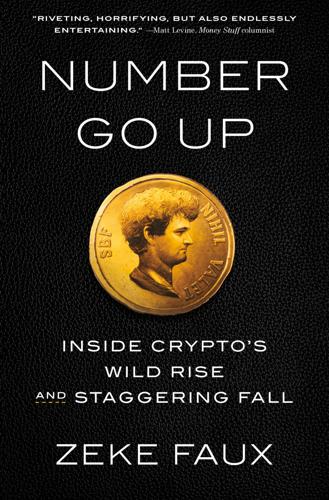
Number Go Up: Inside Crypto's Wild Rise and Staggering Fall
by Zeke Faux · 11 Sep 2023 · 385pp · 106,848 words

Uprooting: From the Caribbean to the Countryside - Finding Home in an English Country Garden
by Marchelle Farrell · 2 Aug 2023 · 217pp · 76,056 words

Catch and Kill: Lies, Spies, and a Conspiracy to Protect Predators
by Ronan Farrow · 14 Oct 2019 · 390pp · 115,303 words

Soulful Simplicity: How Living With Less Can Lead to So Much More
by Courtney Carver · 26 Dec 2017 · 183pp · 60,223 words

15-Minute German: Learn in Just 12 Weeks
by Dorling Kindersley · 5 Dec 2023 · 152pp · 63,847 words
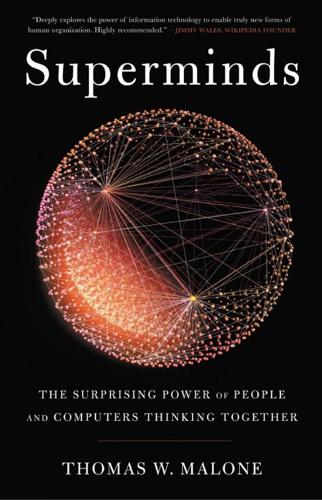
Superminds: The Surprising Power of People and Computers Thinking Together
by Thomas W. Malone · 14 May 2018 · 344pp · 104,077 words
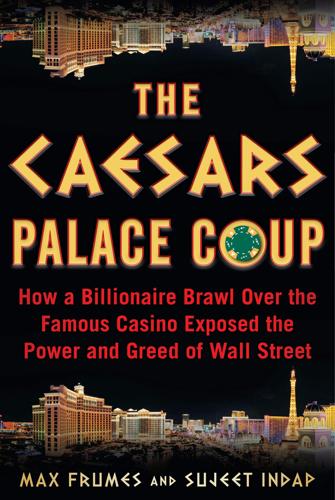
Palace Coup: The Billionaire Brawl Over the Bankrupt Caesars Gaming Empire
by Sujeet Indap and Max Frumes · 16 Mar 2021 · 362pp · 116,497 words
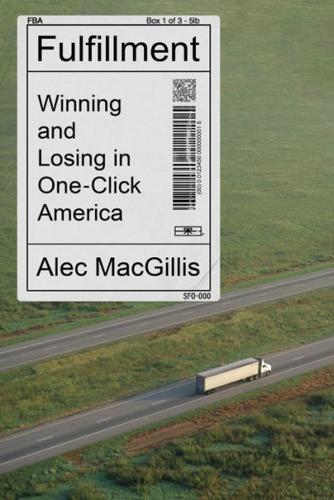
Fulfillment: Winning and Losing in One-Click America
by Alec MacGillis · 16 Mar 2021 · 426pp · 136,925 words

Tracers in the Dark: The Global Hunt for the Crime Lords of Cryptocurrency
by Andy Greenberg · 15 Nov 2022 · 494pp · 121,217 words

Lonely Planet Pocket Hong Kong
by Lonely Planet

Longshot
by David Heath · 18 Jan 2022

Heaven Is a Place on Earth: Searching for an American Utopia
by Adrian Shirk · 15 Mar 2022 · 358pp · 118,810 words
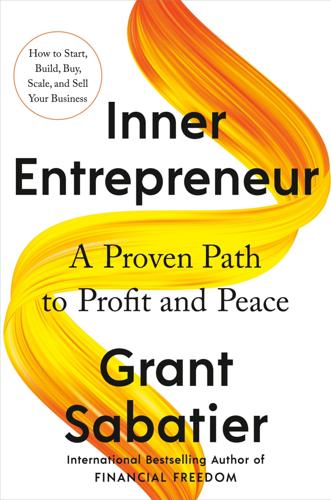
Inner Entrepreneur: A Proven Path to Profit and Peace
by Grant Sabatier · 10 Mar 2025 · 442pp · 126,902 words
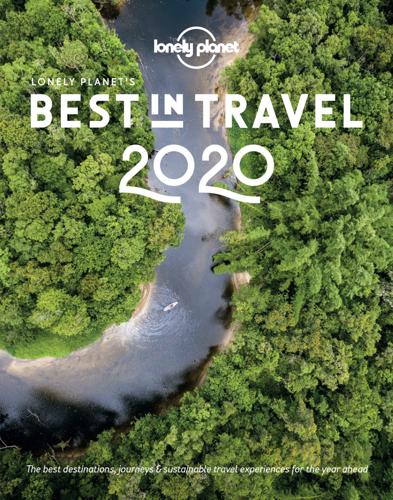
Lonely Planet's Best in Travel 2020
by Lonely Planet · 21 Oct 2019 · 201pp · 33,620 words

Our Enemies Will Vanish: The Russian Invasion and Ukraine's War of Independence
by Yaroslav Trofimov · 9 Jan 2024 · 399pp · 112,620 words

Recoding America: Why Government Is Failing in the Digital Age and How We Can Do Better
by Jennifer Pahlka · 12 Jun 2023 · 288pp · 96,204 words

Pocket Rough Guide Istanbul (Travel Guide eBook)
by Rough Guides · 24 May 2019

Lonely Planet Turkey
by Lonely Planet · 1,236pp · 320,184 words

Enemies and Neighbours: Arabs and Jews in Palestine and Israel, 1917-2017
by Ian Black · 2 Nov 2017 · 674pp · 201,633 words

The Rough Guide to Cyprus (Travel Guide eBook)
by Rough Guides · 30 Apr 2019

The Rough Guide to Cyprus
by Rough Guides · 2 Feb 2025

More Everything Forever: AI Overlords, Space Empires, and Silicon Valley's Crusade to Control the Fate of Humanity
by Adam Becker · 14 Jun 2025 · 381pp · 119,533 words

How to Own the World: A Plain English Guide to Thinking Globally and Investing Wisely
by Andrew Craig · 6 Sep 2015 · 305pp · 98,072 words

The Outlaw Ocean: Journeys Across the Last Untamed Frontier
by Ian Urbina · 19 Aug 2019
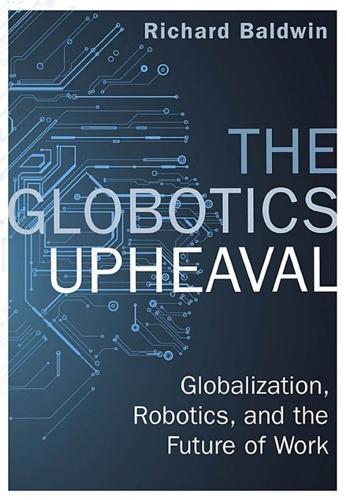
The Globotics Upheaval: Globalisation, Robotics and the Future of Work
by Richard Baldwin · 10 Jan 2019 · 301pp · 89,076 words
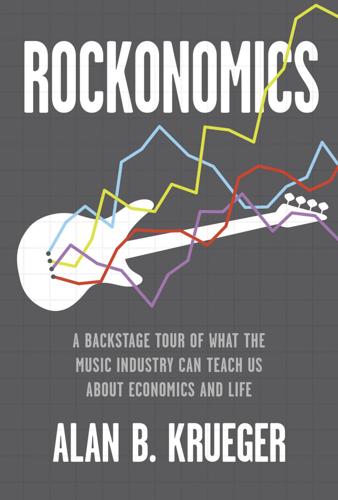
Rockonomics: A Backstage Tour of What the Music Industry Can Teach Us About Economics and Life
by Alan B. Krueger · 3 Jun 2019

Sandworm: A New Era of Cyberwar and the Hunt for the Kremlin's Most Dangerous Hackers
by Andy Greenberg · 5 Nov 2019 · 363pp · 105,039 words
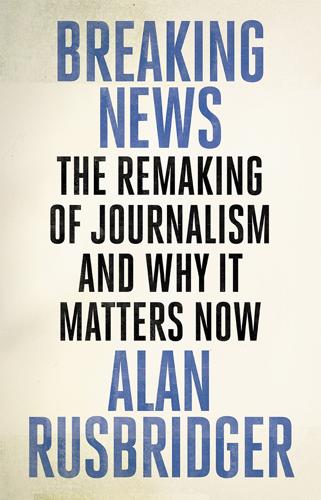
Breaking News: The Remaking of Journalism and Why It Matters Now
by Alan Rusbridger · 14 Oct 2018 · 579pp · 160,351 words
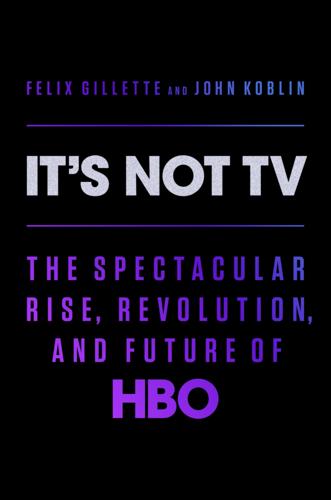
It's Not TV: The Spectacular Rise, Revolution, and Future of HBO
by Felix Gillette and John Koblin · 1 Nov 2022 · 575pp · 140,384 words

Discover Caribbean Islands
by Lonely Planet

The Price of Time: The Real Story of Interest
by Edward Chancellor · 15 Aug 2022 · 829pp · 187,394 words

My Friend Anna: The True Story of a Fake Heiress
by Rachel Deloache Williams · 15 Jul 2019 · 297pp · 92,083 words
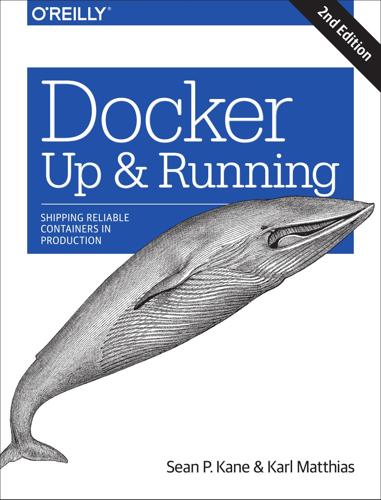
Docker: Up & Running: Shipping Reliable Containers in Production
by Sean P. Kane and Karl Matthias · 15 Mar 2018 · 350pp · 114,454 words
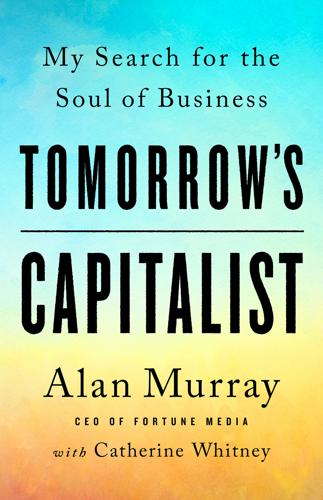
Tomorrow's Capitalist: My Search for the Soul of Business
by Alan Murray · 15 Dec 2022 · 263pp · 77,786 words

The Undertow: Scenes From a Slow Civil War
by Jeff Sharlet · 21 Mar 2023 · 308pp · 97,480 words

Fodor's Seoul
by Fodor's Travel Guides · 29 Nov 2022 · 373pp · 107,111 words

For Profit: A History of Corporations
by William Magnuson · 8 Nov 2022 · 356pp · 116,083 words

Sandy Hook: An American Tragedy and the Battle for Truth
by Elizabeth Williamson · 8 Mar 2022 · 574pp · 148,233 words

Among the Braves: Hope, Struggle, and Exile in the Battle for Hong Kong and the Future of Global Democracy
by Shibani Mahtani and Timothy McLaughlin · 7 Nov 2023 · 348pp · 110,533 words
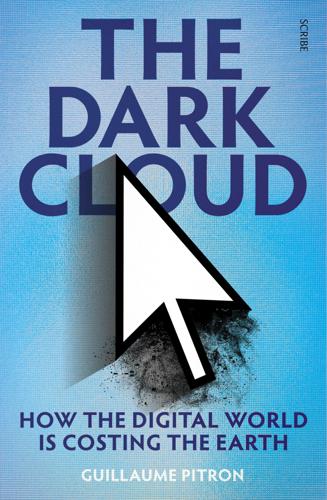
The Dark Cloud: How the Digital World Is Costing the Earth
by Guillaume Pitron · 14 Jun 2023 · 271pp · 79,355 words
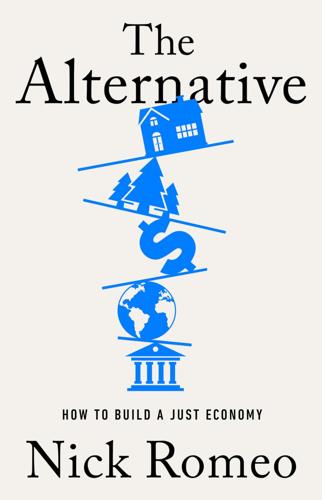
The Alternative: How to Build a Just Economy
by Nick Romeo · 15 Jan 2024 · 343pp · 103,376 words

Pocket Rough Guide Malta & Gozo (Travel Guide eBook)
by Rough Guides · 17 Dec 2019 · 183pp · 47,035 words

Practical Anarchism: A Guide for Daily Life
by Scott. Branson · 14 Jun 2022 · 198pp · 63,612 words
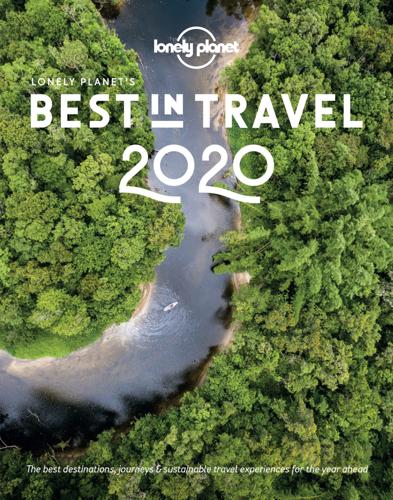
Lonely Planet Lonely Planet's Best in Travel 2022
by Lonely Planet · 26 Oct 2021 · 147pp · 33,578 words

A Map of Future Ruins: On Borders and Belonging
by Lauren Markham · 13 Feb 2024 · 234pp · 74,626 words

The Rough Guide to Seoul
by Rough Guides · 26 Sep 2018 · 305pp · 87,259 words
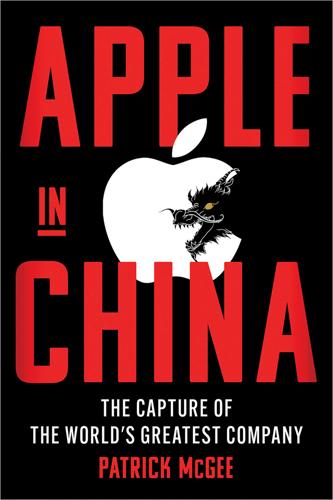
Apple in China: The Capture of the World's Greatest Company
by Patrick McGee · 13 May 2025 · 377pp · 138,306 words

Lonely Planet Western Balkans
by Lonely Planet, Peter Dragicevich, Mark Baker, Stuart Butler, Anthony Ham, Jessica Lee, Vesna Maric, Kevin Raub and Brana Vladisavljevic · 1 Oct 2019 · 990pp · 250,044 words

Moon Prague, Vienna & Budapest: Palaces & Castles, Art & Music, Coffeehouses & Beer Gardens
by Jennifer D Walker, Auburn Scallon and Moon Travel Guides · 15 Oct 2024 · 806pp · 221,571 words

Pocket Rough Guide Lisbon (Travel Guide eBook)
by Rough Guides · 1 Mar 2019 · 180pp · 43,243 words